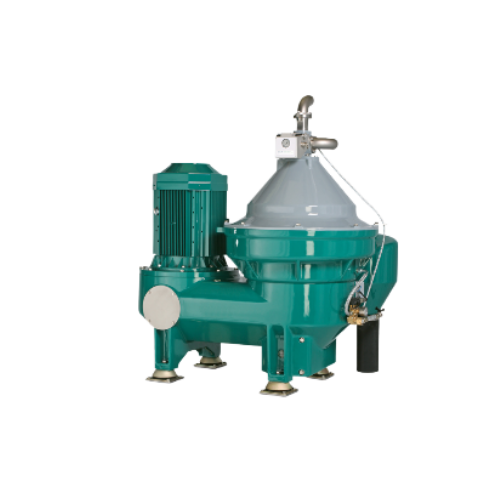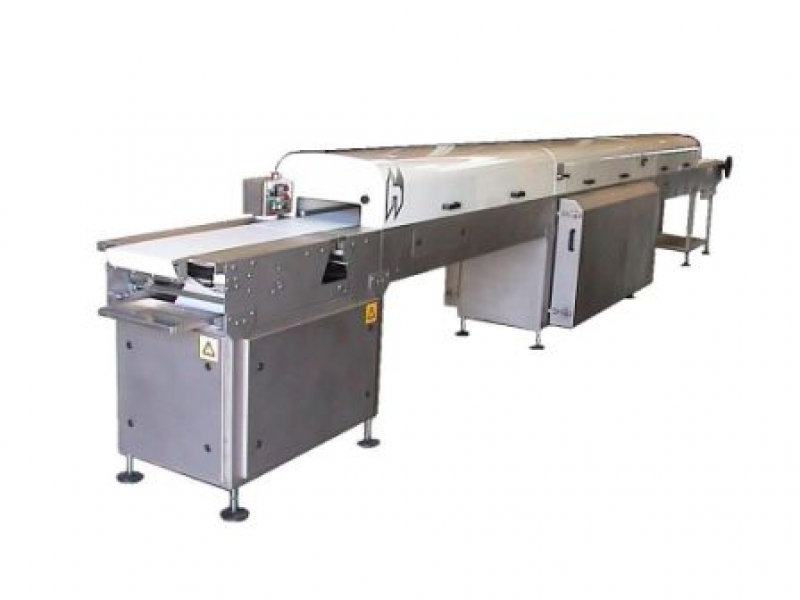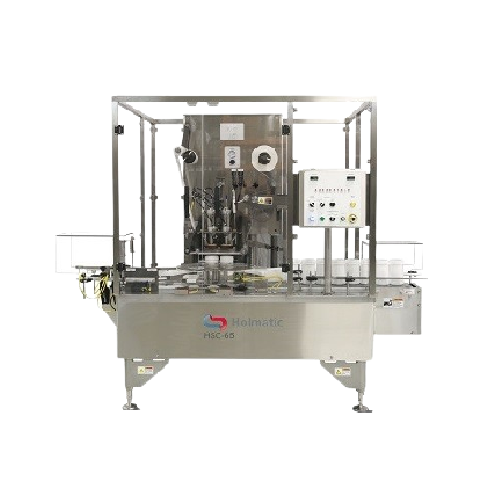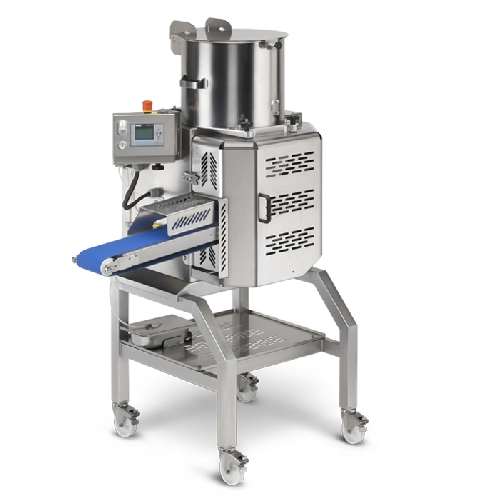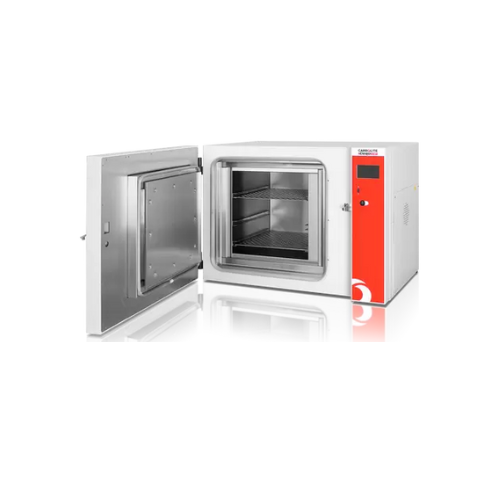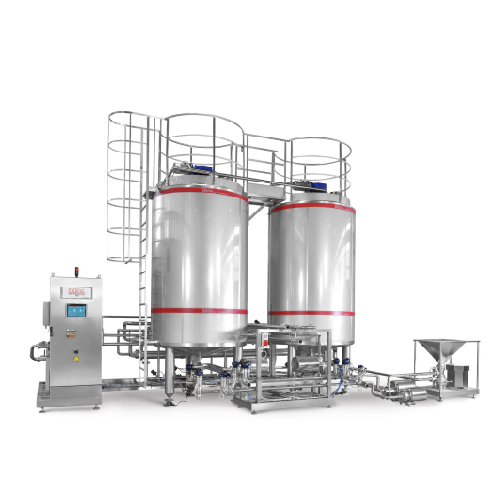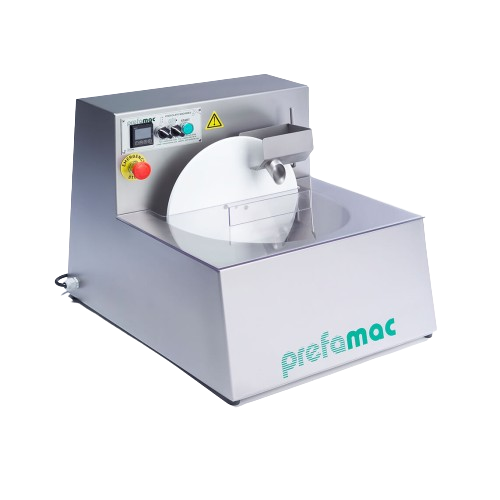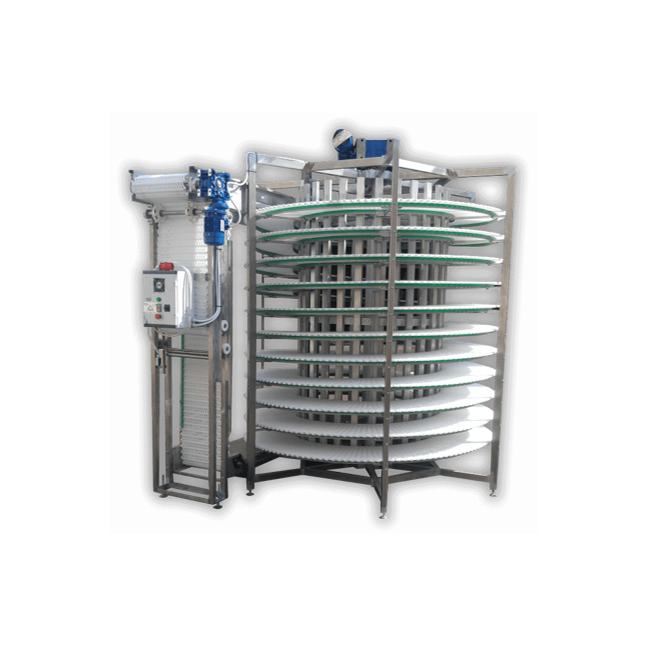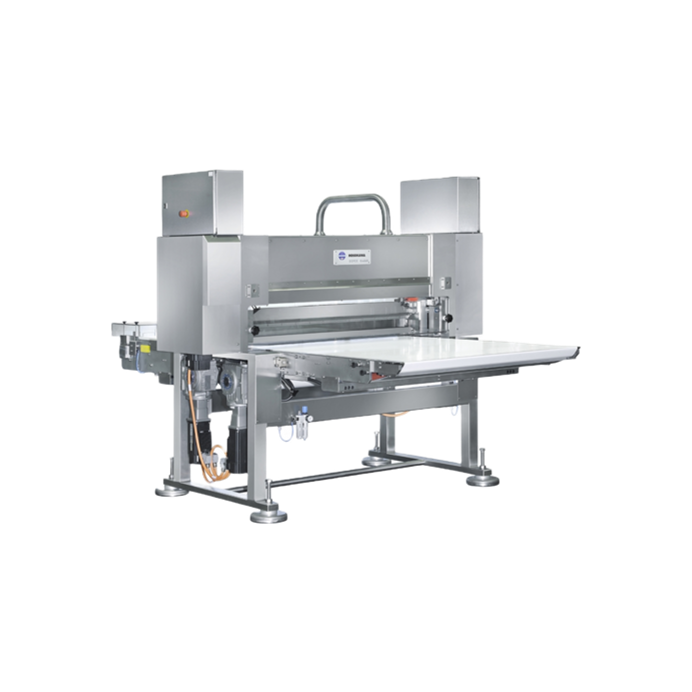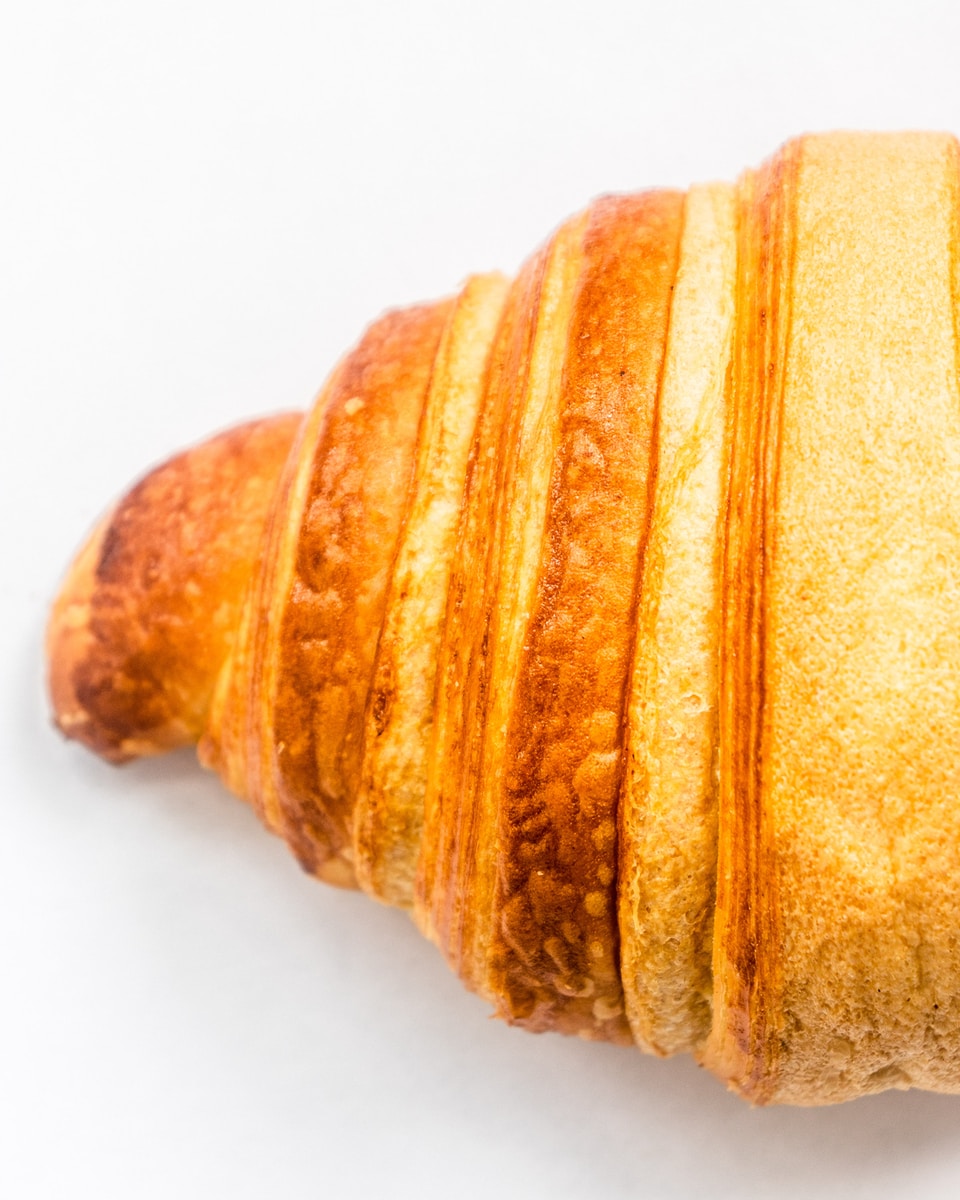
Croissant Making Equipment
Find innovative production technology for making croissants and connect directly with world-leading specialists
Croissants have crossed global barriers to become a widely consumed pastry, unique for its rich buttery taste and crispy exterior. Regardless of location, the croissant production process involves creating laminated dough by repeatedly folding and rolling butter into dough. Temperature regulation is crucial to the croissant making process as too warm temperatures negatively affect the overall outcome.
Stories about croissants
Tell us about your production challenge
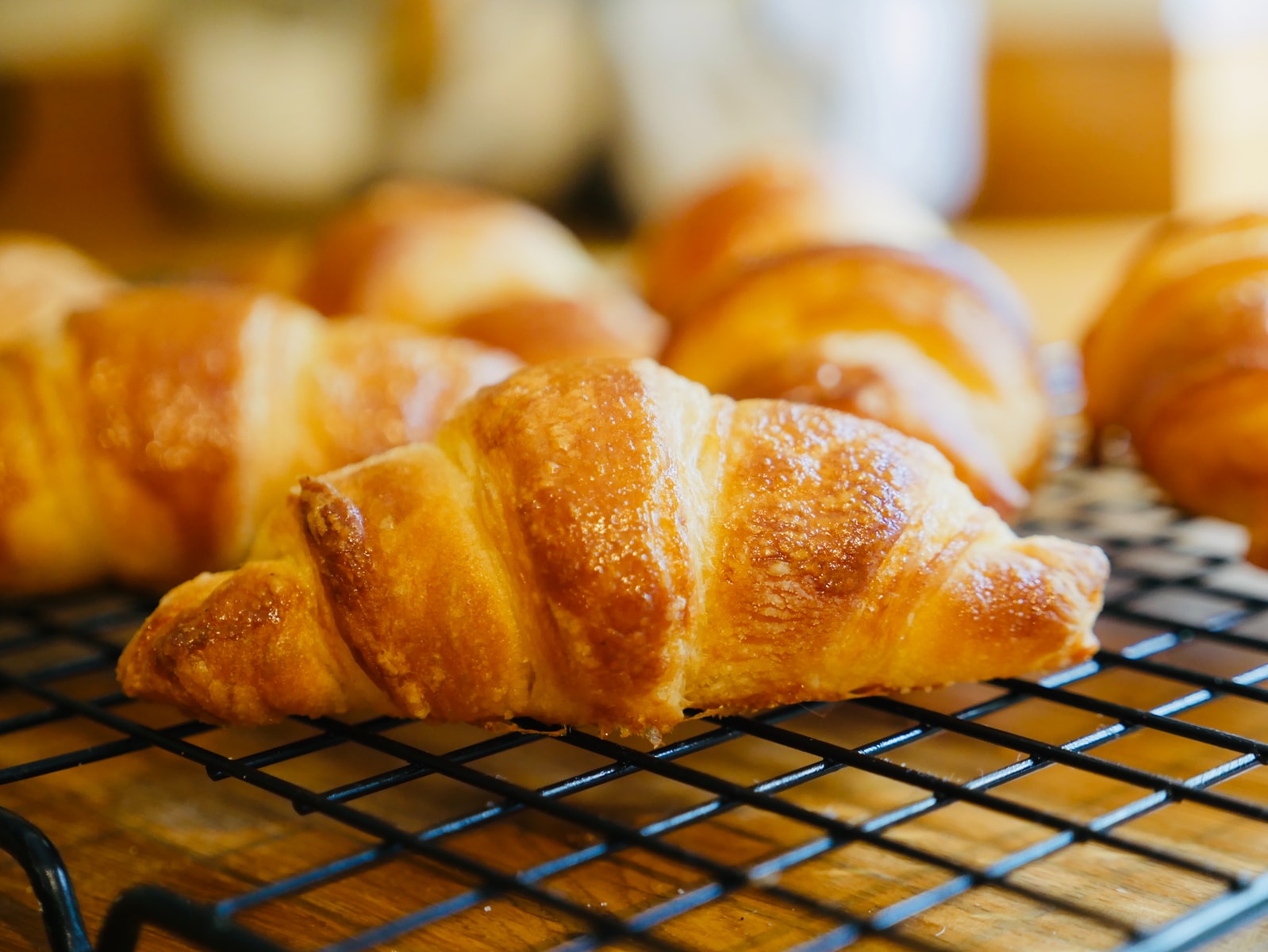
Why is lamination important in the croissant making process?
An ideal croissant has a flaky exterior and a delicate honeycomb appearance on the inside. These are direct outcomes of the process of laminating. During lamination, producers fold and roll butter into the dough to create multiple super-thin layers of dough. The fold pattern could be an envelope fold, single, letter, or book-fold. They can achieve this on a large scale production line with the help of bakery equipment such as a professional dough sheeter. Dough laminating ensures that open pockets form in the interior as the croissant bakes while the exterior develops uniform flaky stripes.
Varieties of croissants made from a croissant making equipment
Croissants come in two major forms; the straight croissants and the c-shaped or crescent-shaped ones. Although these shapes appear to reflect a baker’s choice and creativity, they actually represent the key ingredients in the croissant.
Generally, straight croissants contain 100% butter, while curved ones contain other fats such as oil or margarine. To create these varieties, bakers alter the cutting and rolling pattern of the dough. They could cut them into triangles or rectangles and might either roll or leave the edges straight. It’s important to ensure the dough is protected from heat during this process because too much heat will melt the butter and ultimately affect the texture of the croissant.
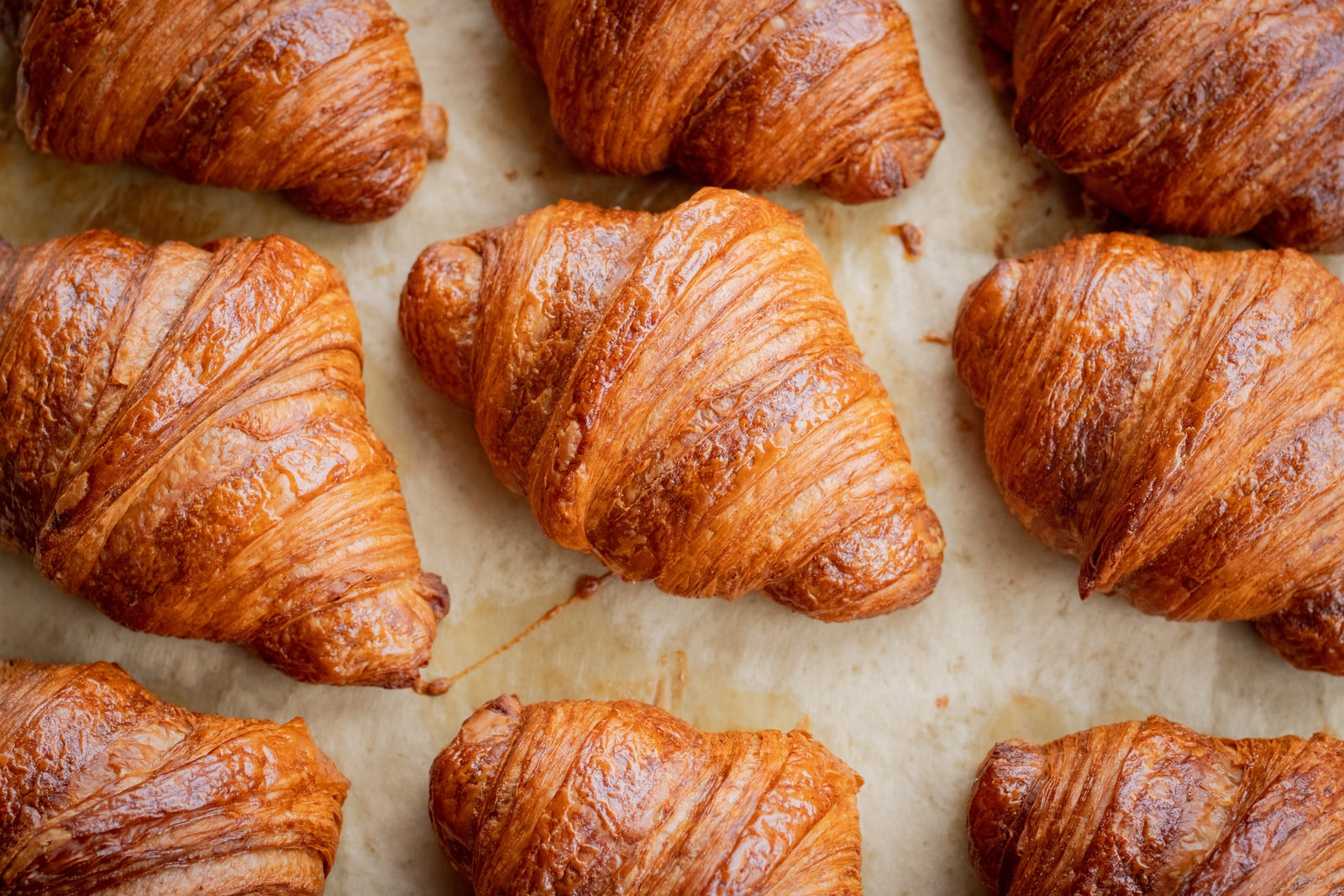
Croissants for vegans
Even though croissant making equipment will generally include ingredients like butter, milk, and eggs to create the ideal croissant, vegans can still enjoy this product by using plant-based alternatives to butter, eggs, and milk. Vegan butter, which is a combination of water and a plant-derived oil like olive or avocado, can help to achieve a buttery and chewy croissant. Olive oil and coconut oil are good substitutes for egg wash because they provide uniform browning. Dairy-free milk from almonds and oats does the job of providing a gorgeous sheen to the croissants.

The role of proofing when making croissant
Proofing is a crucial step in baking food items like croissants, which require incorporating air pockets into the mixture. During this stage, which is usually after cutting the doughs into shapes, the yeast cells release carbon dioxide gas after consuming sugar. This step is vital to achieving the optimal texture of the croissant. If it is over-proofed, the laminated layers will separate and cause the butter to leak out. On the other hand, under proofing creates a very dense croissant. Generally, achieving ideal proofing in frozen croissants is challenging because ice crystals form in the dough and affect yeast viability. However, a freezing rate of ≥ −3.19 °C min−1 is suitable to achieve the desired texture.
Processing steps involved in croissants making
Which croissants technology do you need?
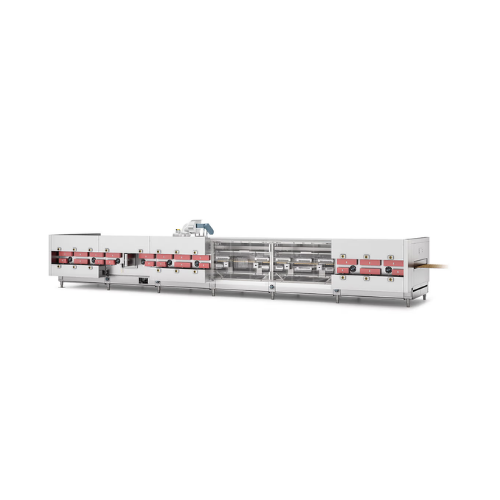
Industrial tunnel ovens for bakery products
Achieve precise control over baking processes with these industrial tunnel ove...
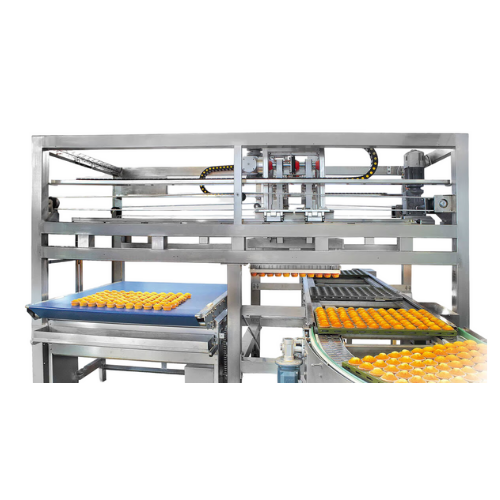
Cake and pastry depanner
Optimize your bakery’s output with this solution that seamlessly integrates into your production lin...
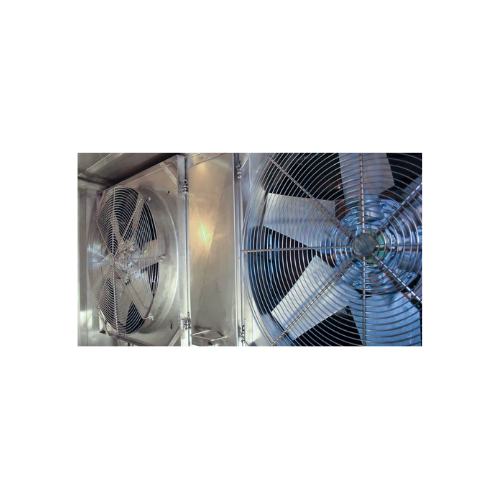
Freezing and cooling systems for bakery products
Enhance your bakery production line with advanced freezing and cooling sy...
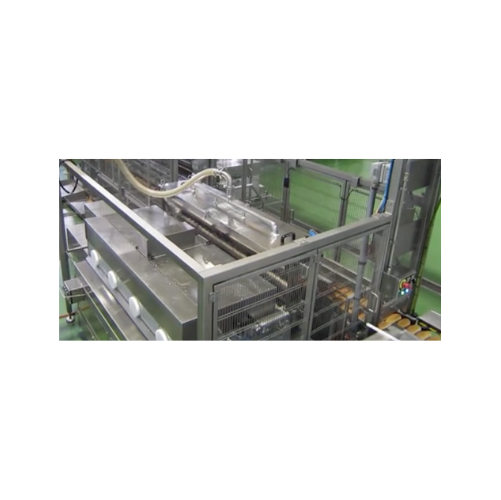
Cakes and pastry side injector
Enhance your bakery production with precision side injection technology that efficiently fill...
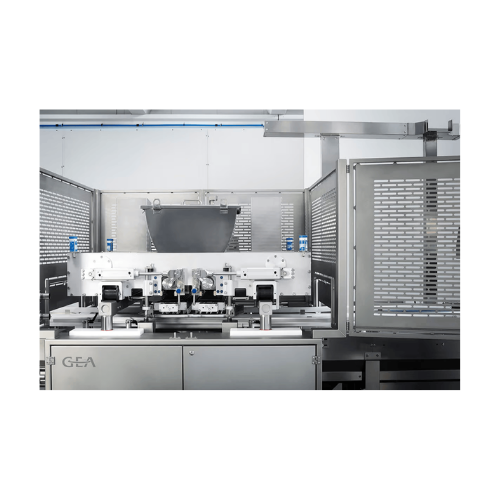
Cakes and pastry fill injector
Achieve precise and efficient filling of a variety of bakery products, minimizing waste and d...
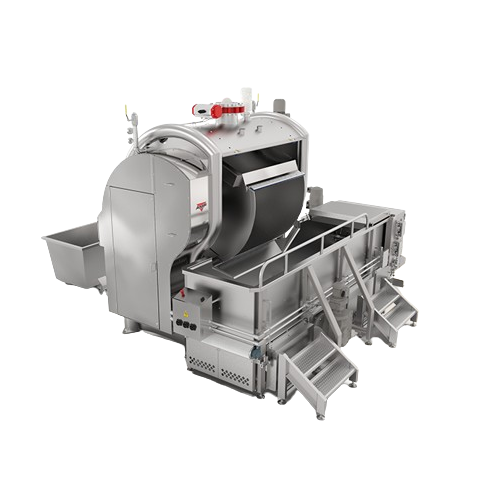
Industrial mixer for various dough types
Efficiently mix a wide range of doughs with precise temperature control to achieve...
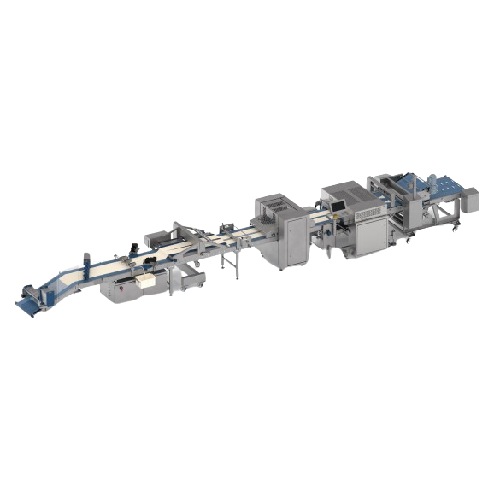
Croissant production module for pastry make-up lines
Enhance your bakery’s product range with a versatile module de...
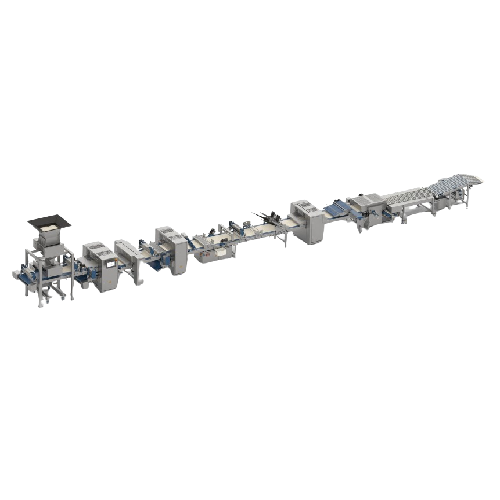
Donut production line for various shapes and sizes
Optimize your bakery’s output with precision-engineered dough pr...
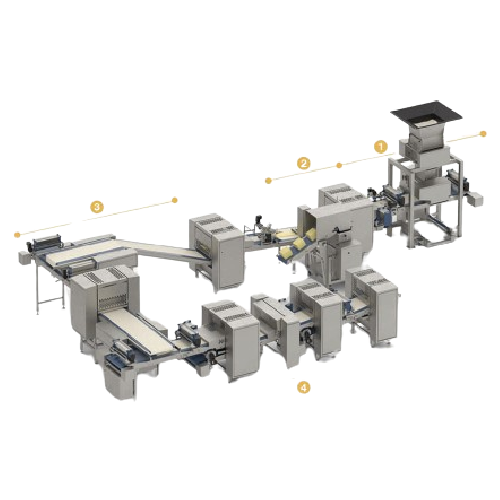
Industrial dough laminator for croissants and pastries
Achieve consistently light and flaky products with precision lamin...
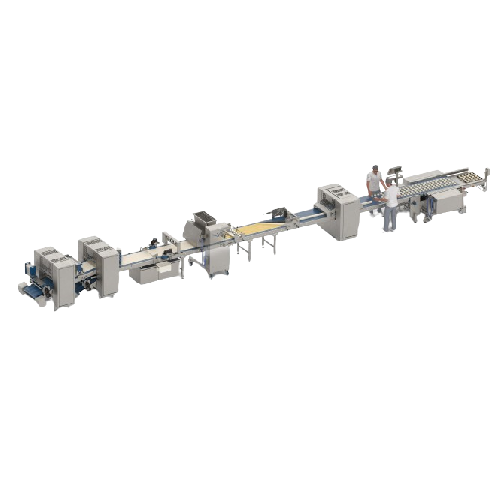
Pastry production line for large-scale bakeries
Streamline your bakery production with a versatile line designed to effici...
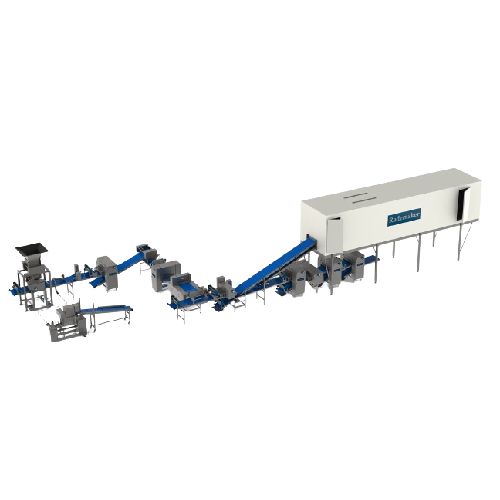
Dough laminating equipment for croissants and pastries
Optimize your bakery’s output with our advanced laminating e...

Industrial bread process line
Optimize your bakery operations with a versatile bread processing line, designed to handle a v...
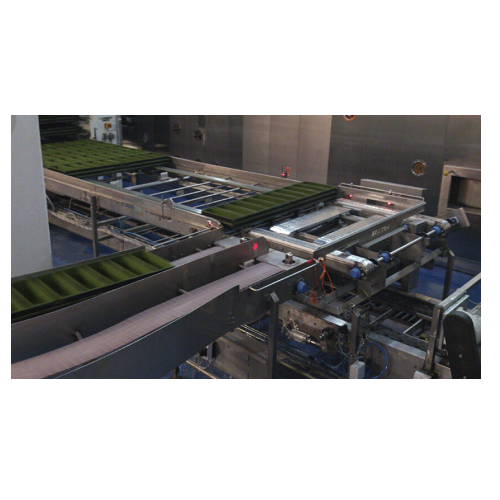
Industrial bakery conveying solutions
Ensure seamless, hygienic transport of bakery goods with precision-engineered conveyi...

Industrial croissant production line
Streamline your bakery’s operations with a versatile solution capable of produci...
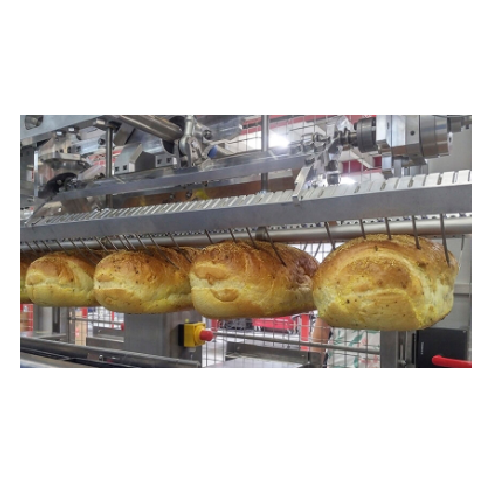
Advanced bakery depanning solutions
Streamline your bakery production with cutting-edge depanning technologies designed to ...
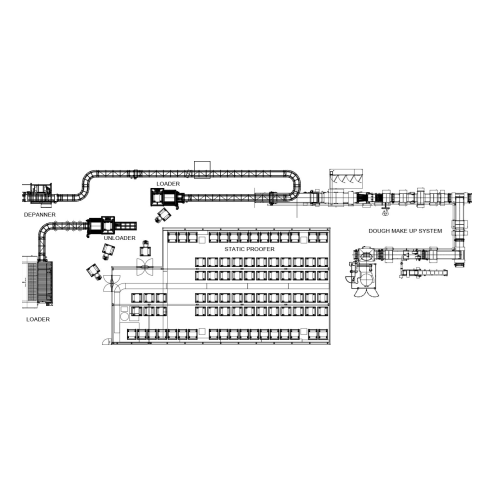
Automated bread production line
Optimize your bakery operations with precision-engineered systems that streamline every stag...
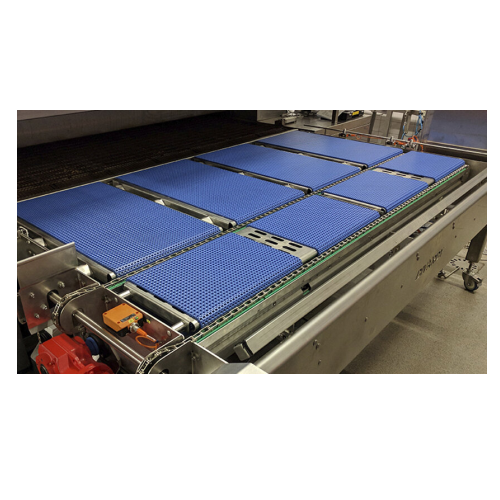
Automatic oven loading and unloading system
Streamline your bakery’s production efficiency with precise and synchron...
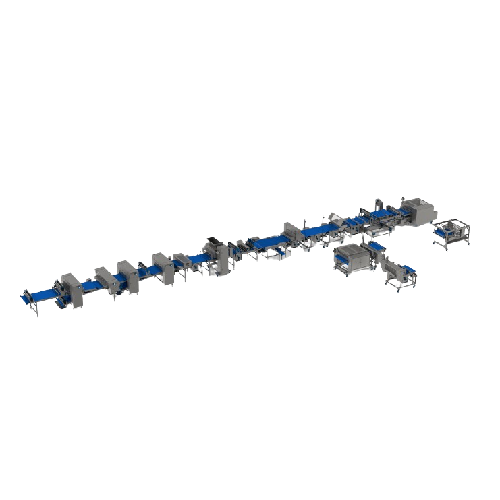
Universal pastry production line for industrial baking
Optimize your bakery operations with a versatile line capable of p...
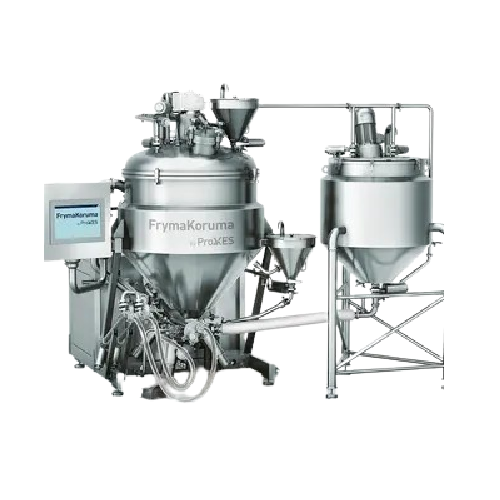
High shear emulsifier for mayonnaise production
Streamline your production of high-quality emulsions with this high-capaci...
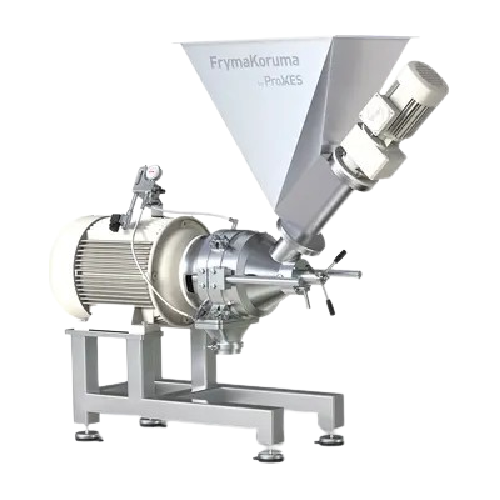
High shear emulsifier for food and pharmaceutical products
Optimize your production line with precise emulsification, ho...
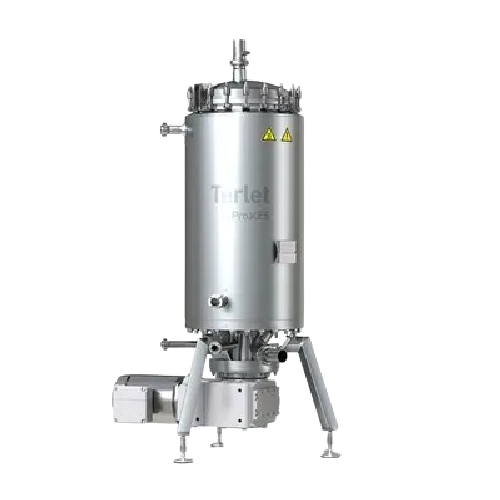
Heat exchangers for efficient heat transfer in industry
Achieve precise temperature control across diverse viscosities wi...
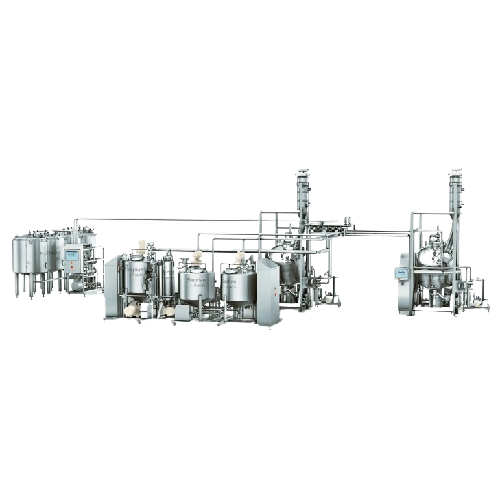
Continuous nut paste production line
Elevate your production efficiency with a versatile preparation line designed to seaml...
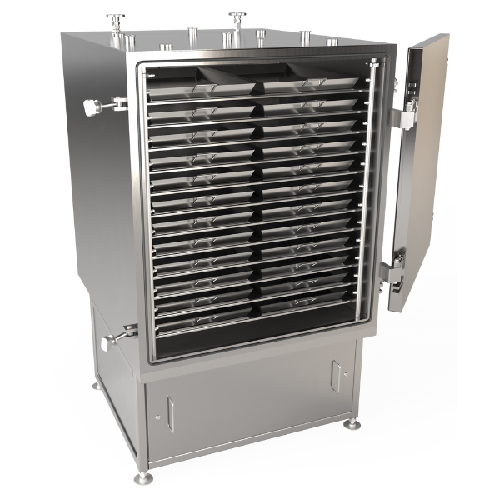
Continuous heat exchanger for soups and sauces
Optimize your soup and sauce production with a continuous heat exchanger th...
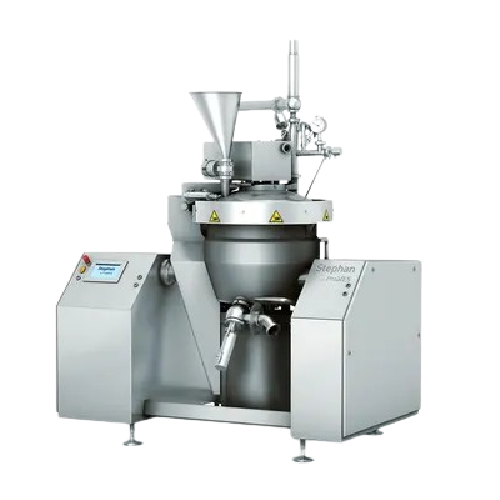
Industrial cutting system for fine emulsions
Optimize your production line with precision cutting and emulsifying, ensurin...
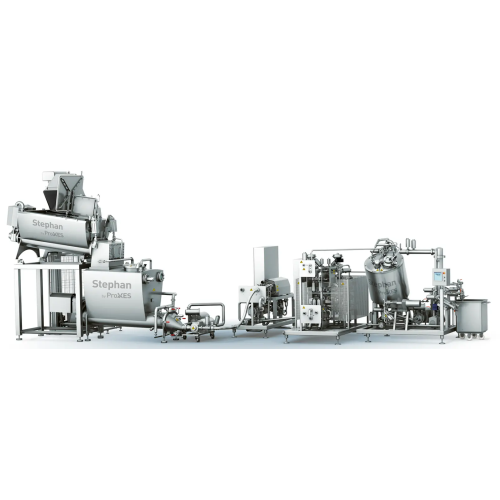
Continuous caramel process line
Optimize your continuous food processing with an engineered-to-order line tailored for preci...
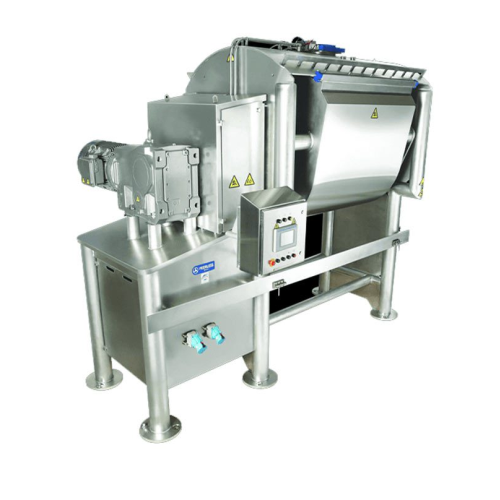
Open frame mixer for bread and pastry dough
Enhance your dough consistency and reduce production downtime with a robust, h...
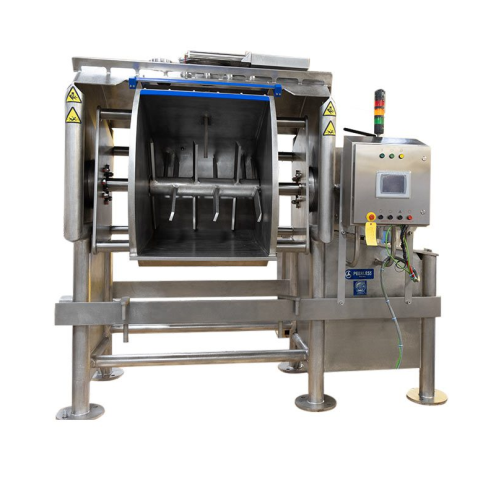
Open frame mixer for bread and dough applications
Enhance baking productivity with a versatile mixer designed for efficie...
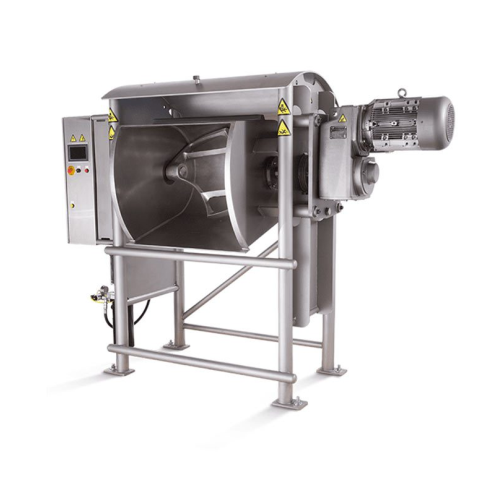
Medium duty mixer for breads and pastries
Achieve consistent dough development and uniform mixing for a wide variety of ba...
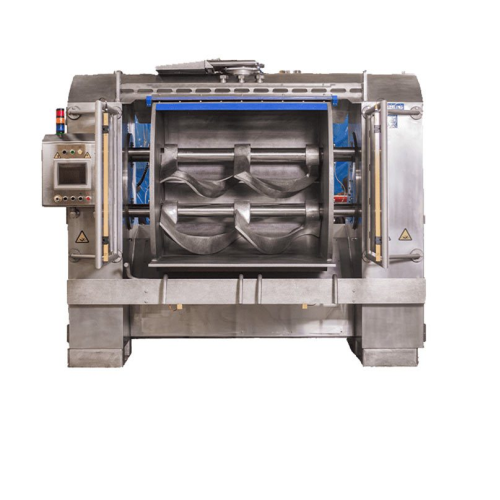
Traditional enclosed frame mixer for dough and batter preparation
Optimize your production with high-capacity mixing, e...
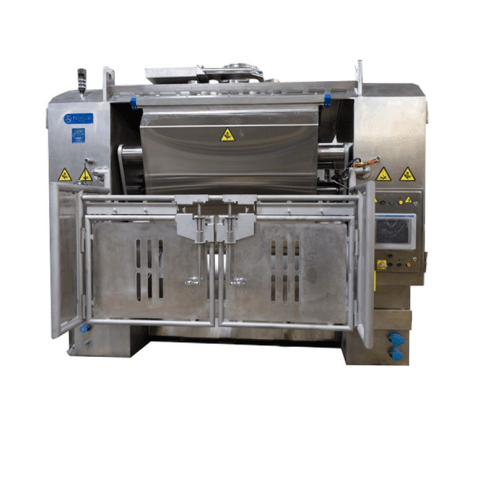
Industrial enclosed frame mixer for high-capacity dough mixing
Optimize your bakery’s output with a mixer designed...
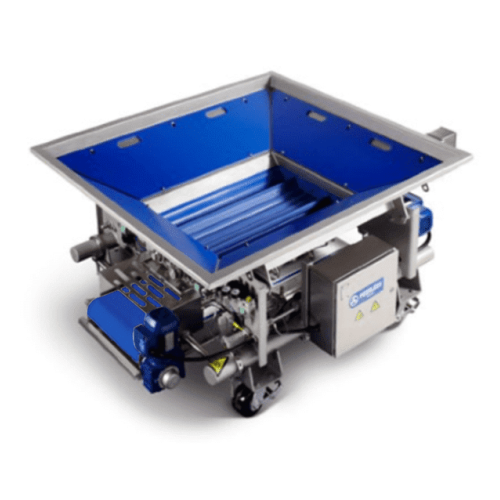
Rotary dough feeder for bread and tortilla production
Optimize your dough processing by maintaining dough integrity and e...
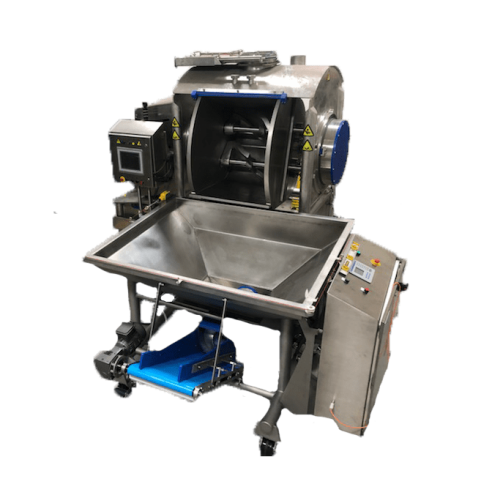
Rotary dough feeder for uniform dough blocks
Efficiently feed consistent blocks of dough into your processing line without...
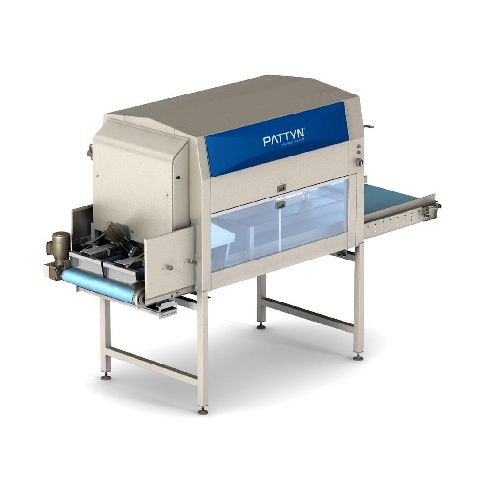
Vision counting system for bakery products
Achieve precise and consistent product counting with this advanced system, desi...
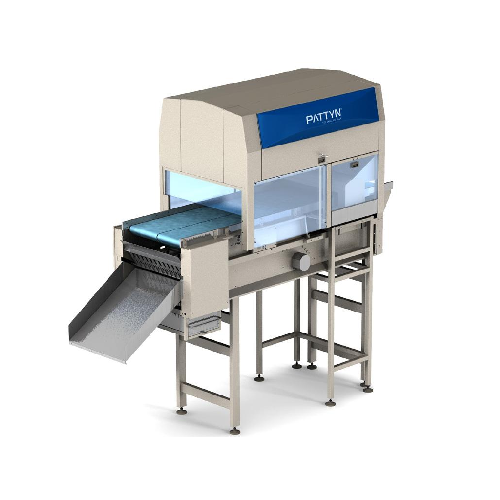
3d vision quality inspection system for bakery products
Streamline your bakery production with high-speed 3D vision inspe...
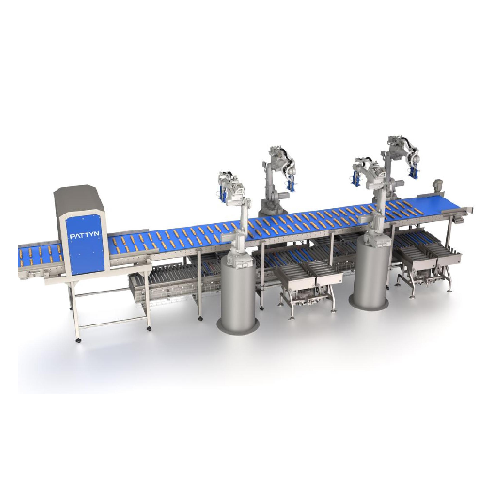
Industrial vision robot for optimized packing
Optimize your bakery production line with a system designed to efficiently p...
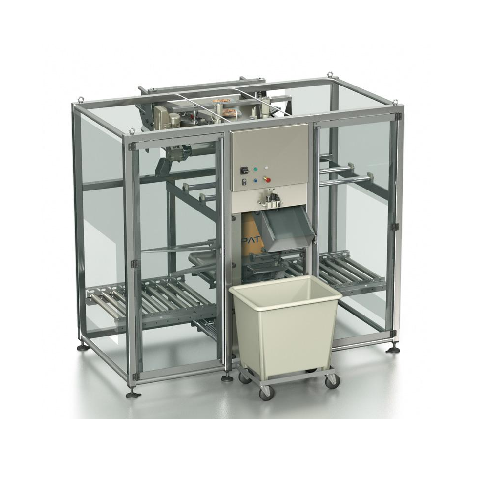
Bulk box filler for bakery and pastry products
Efficiently pack fragile bakery and pastry products with gentle handling an...
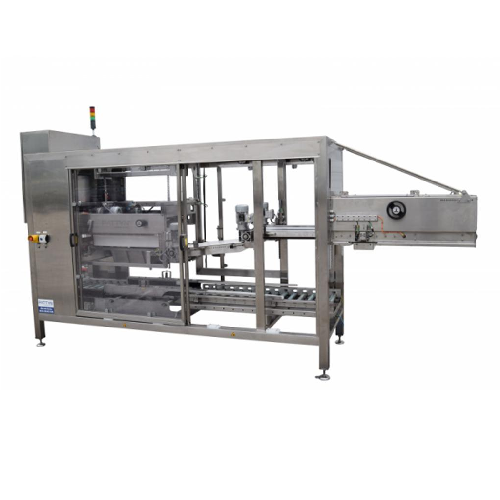
Industrial bakery bag dropper for boxes or trays
Enhance your bakery line with precision-based bag dropping solutions that...
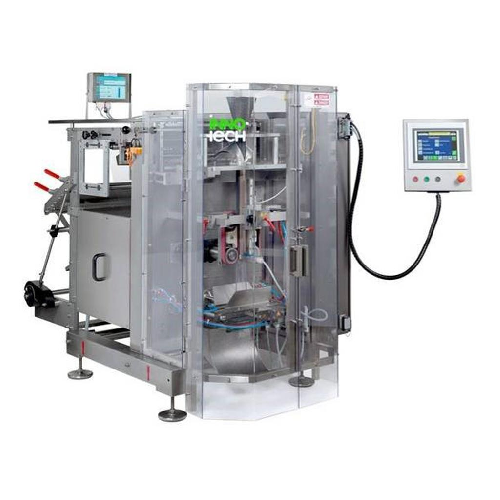
Vertical fill and seal bagging machine for bakery products
Streamline your bakery product packaging with this versatile ...
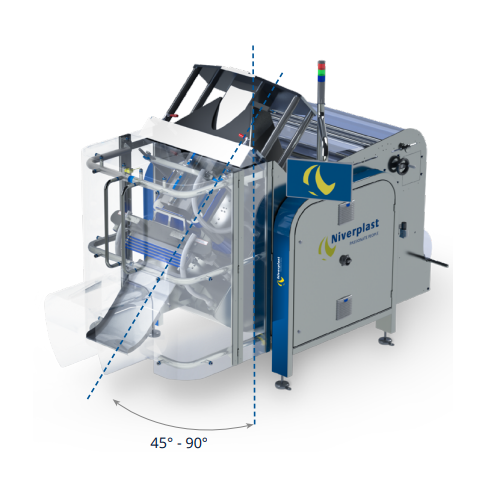
Vertical form fill seal packaging system
Enhance your packaging line with precision sealing and efficient throughput, ideal...
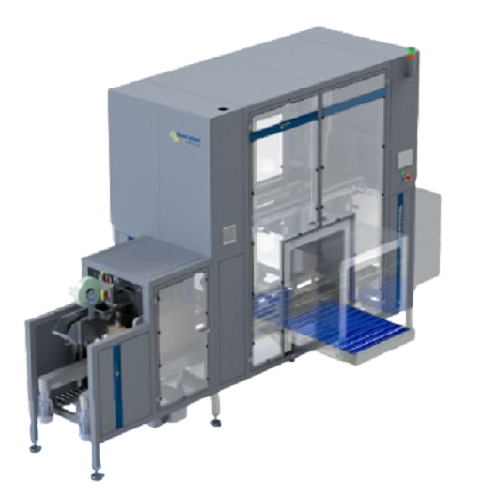
Automated bag sealing for packaging lines
Enhance your packaging efficiency by seamlessly integrating an automated bag sea...
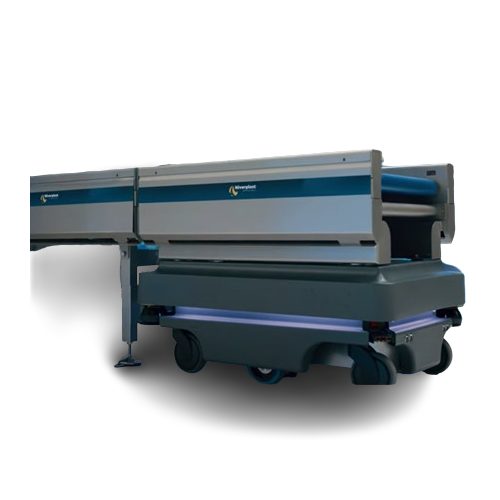
Self-driving transport system for industrial packaging
Streamline internal logistics with a self-navigating vehicle desig...
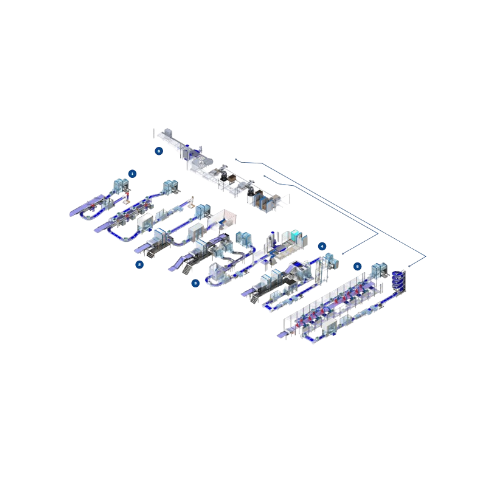
Automatic box loader for fragile products
Ensure precise and gentle handling of delicate bakery goods with a compact case ...
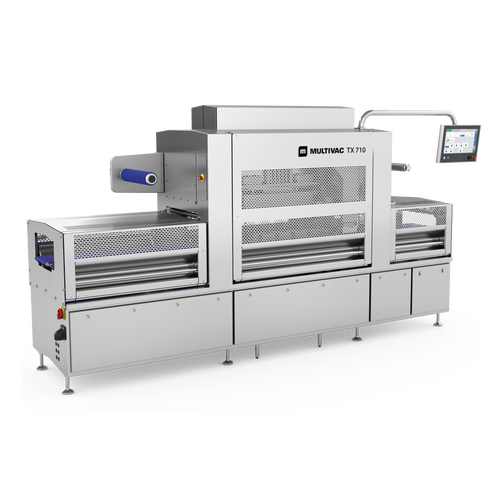
Automatic traysealer for food packaging
Optimize your packaging efficiency with this advanced traysealer, designed to enhan...
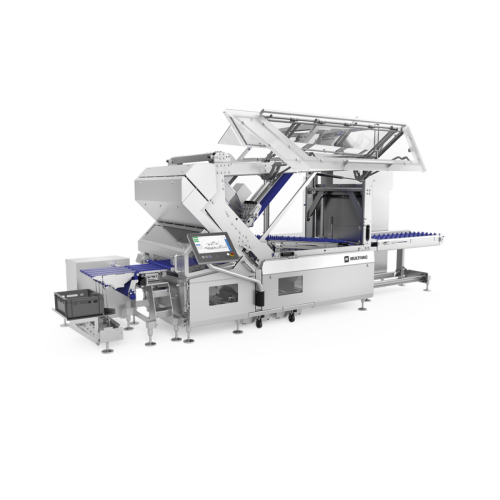
High-precision slicing for cheese and sausage products
Experience unparalleled slicing precision and efficiency with high...
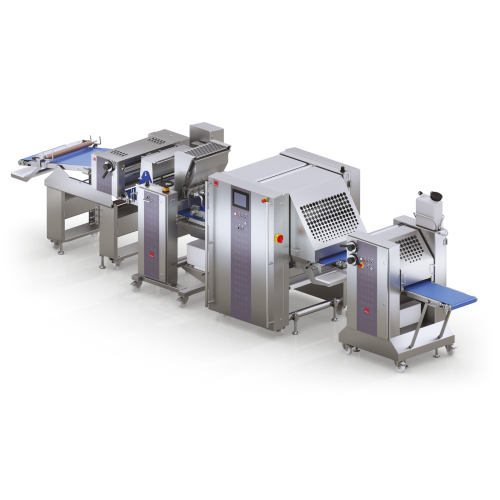
Production line for coiled bakery products
Enhance your bakery’s efficiency with a versatile system designed to crea...
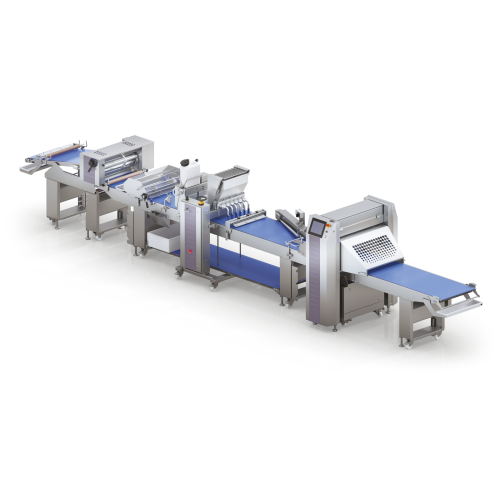
Flexible pastry production line
Maximize your bakery’s output with a versatile pastry line that handles everything fro...
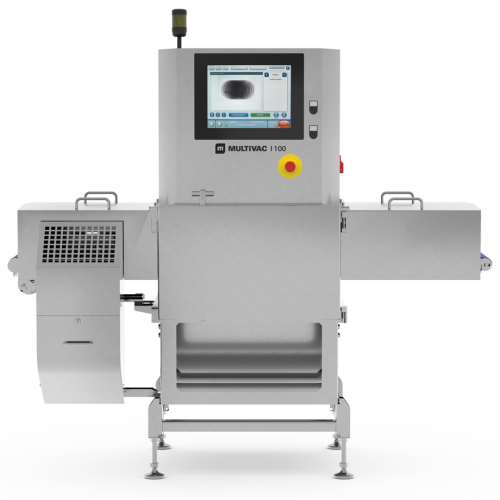
X-ray inspection system for food packaging
Ensure product integrity and safety with advanced detection of foreign bodies i...
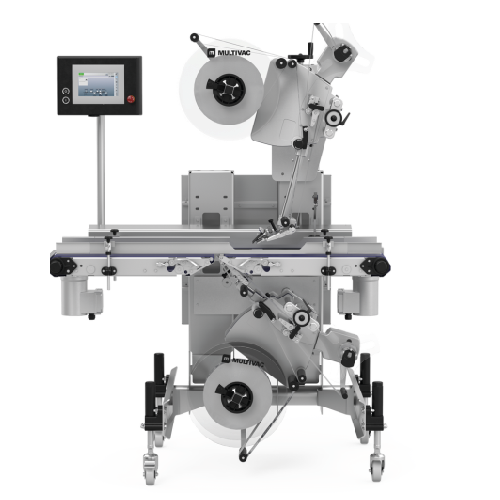
Labelling solution for thermoformed packaging
Ensure flawless labeling integration with high-speed, continuous production....
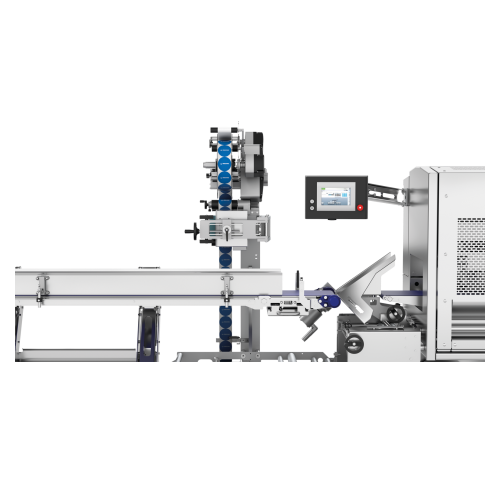
Label dispenser integration for packaging lines
Streamline labeling operations with precision and flexibility, ensuring yo...
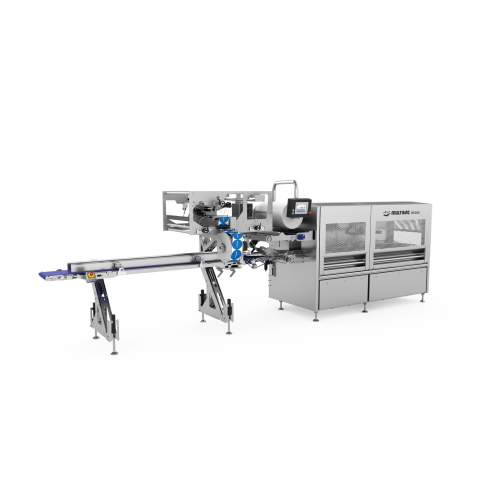
Labelling and marking solutions on flowpackers
Achieve unmatched precision and flexibility in packaging with labelling and...
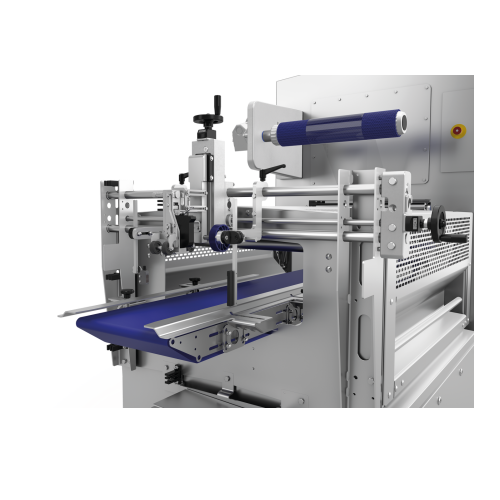
Marking solutions for traysealers
Ensure precise labeling and data printing on tray-sealed packages with integrated solutio...
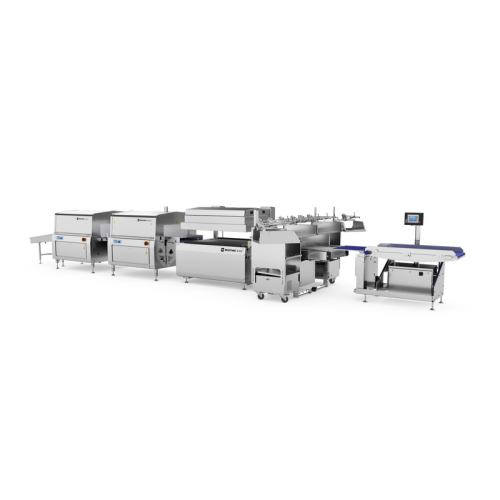
Vacuum packaging chamber for industrial products
Achieve consistent sealing precision and extended shelf life for diverse ...
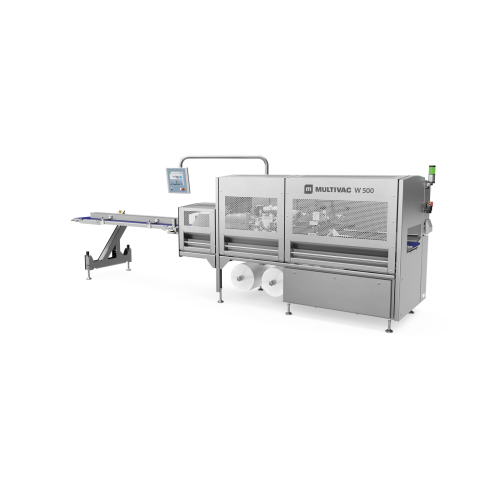
Flowpackers for efficient food packaging
Achieve seamless packaging with flowpackers designed for high-speed, sustainable o...
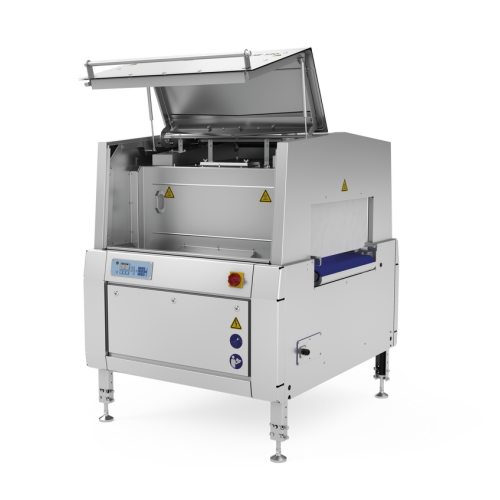
Industrial shrink and drying units for food products
Ensure optimal product integrity and extended shelf life by seamless...
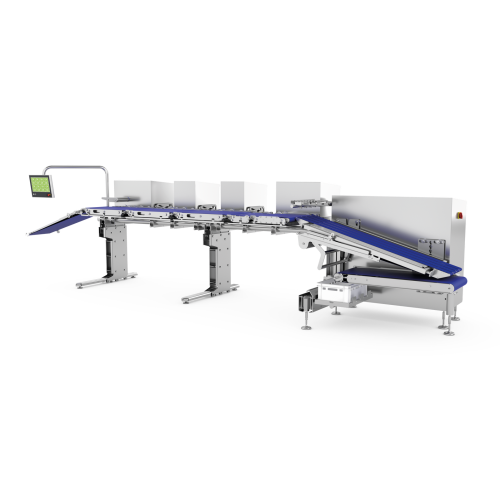
Belt loaders for automated food packaging
Streamline your packaging line with precision-engineered belt loaders, designed ...
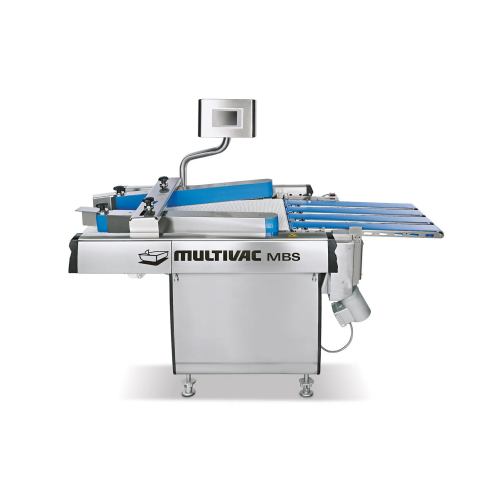
Mbs belt systems for seamless packaging integration
Optimize your packaging line with a system that seamlessly merges mul...
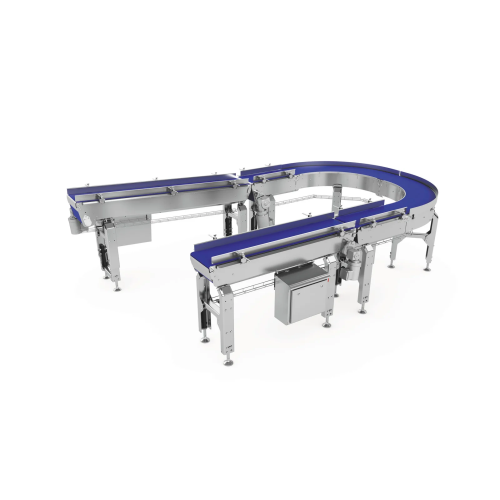
Automated conveyor systems for food packaging lines
Seamlessly integrate high-speed product transport and handling into y...
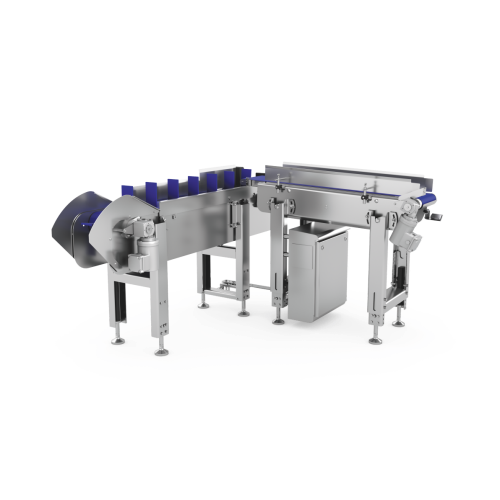
Automated pack stacker for packaging lines
Streamline your packaging line with a compact solution that stacks and organize...
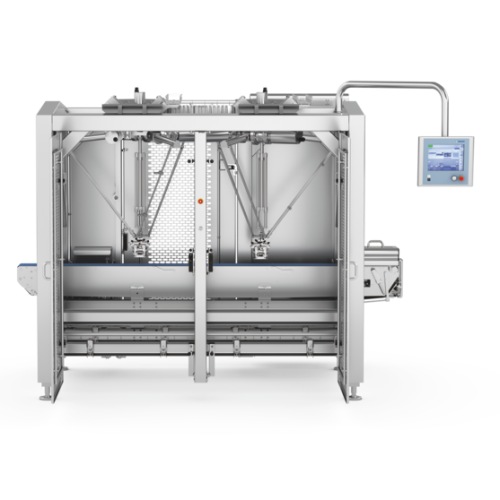
Robotic loading systems for packaging applications
Enhance your production line with versatile robotic loading systems, d...
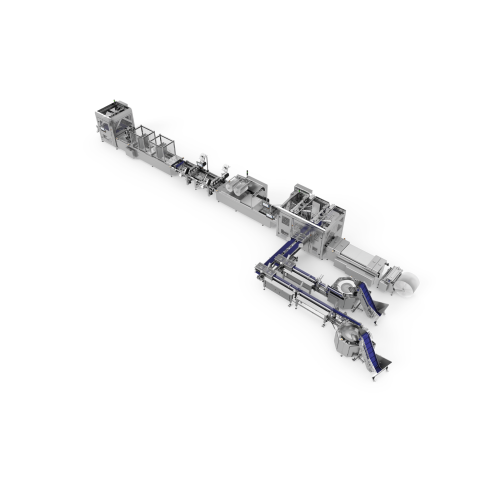
Automatic checkweighers for precise weight control
Ensure accurate weight compliance and enhance quality control with adv...
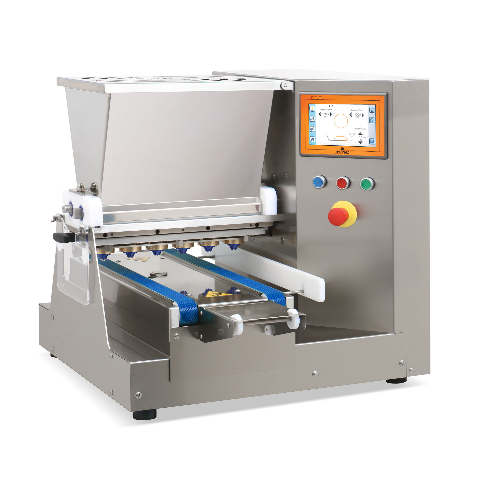
Compact dough depositor for artisan confectioneries
Ideal for crafting intricate and uniform pastries, this machine enhan...
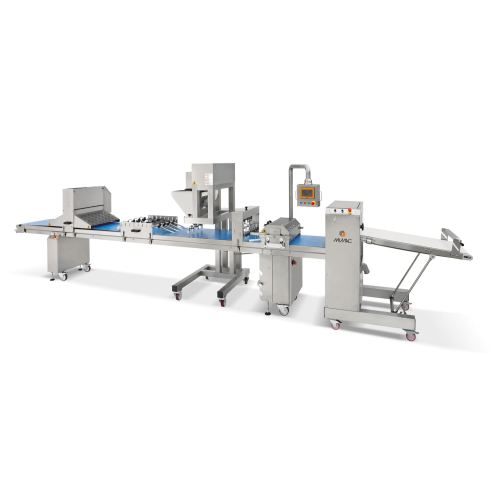
Compact pastry kneading line
Optimize your pastry production with a flexible system designed to knead, cut, fill, roll, and ...
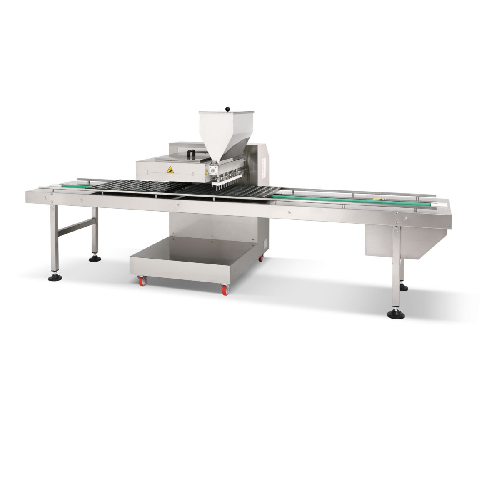
Industrial muffin production line
Maximize your bakery’s efficiency with a high-performance line engineered for preci...
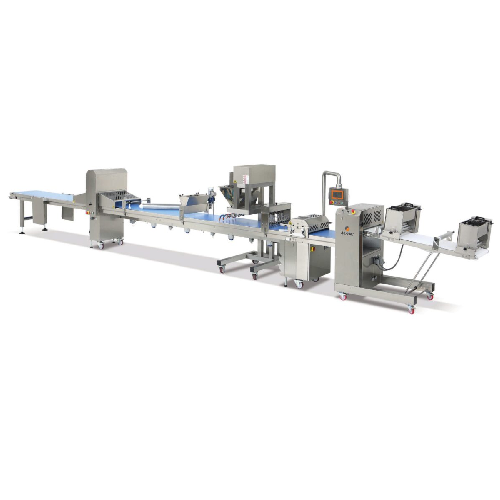
Semi-automatic pastry production line
Elevate your pastry production with a solution that seamlessly combines cutting, fill...
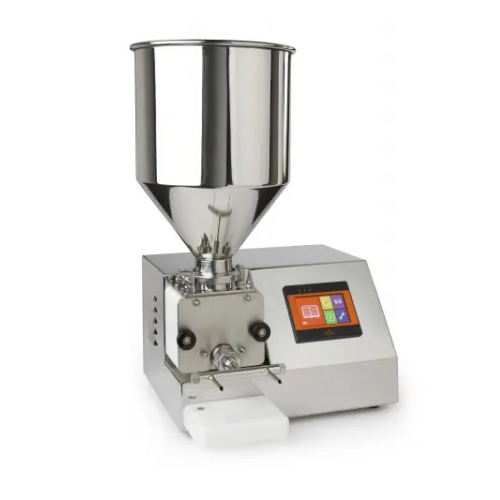
Professional dosing system for creams and sauces
Streamline your production with precise dosing of creams and sauces, tail...
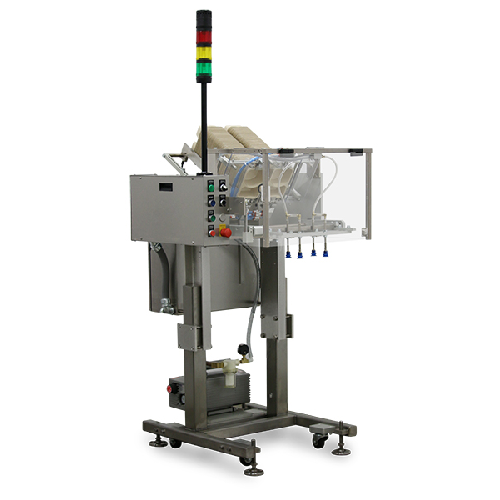
Intermittent pick and place solution for stackable items
Optimize your production line with high-speed, intermittent oper...
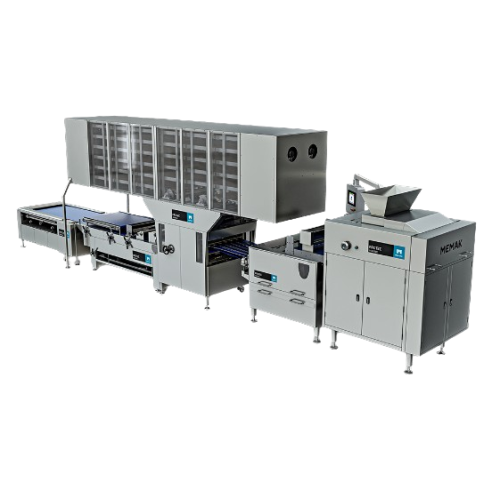
Dough divider for high-efficiency bakery production
Achieve precise dough division and high-speed production efficiency w...
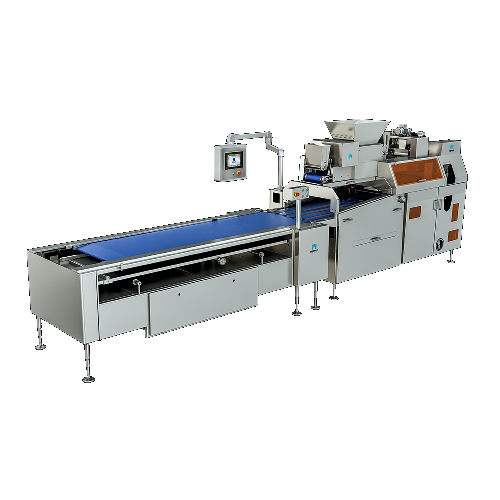
Dough divider for high water absorption and fermented dough
Achieve uniform dough consistency and precise shaping with a...
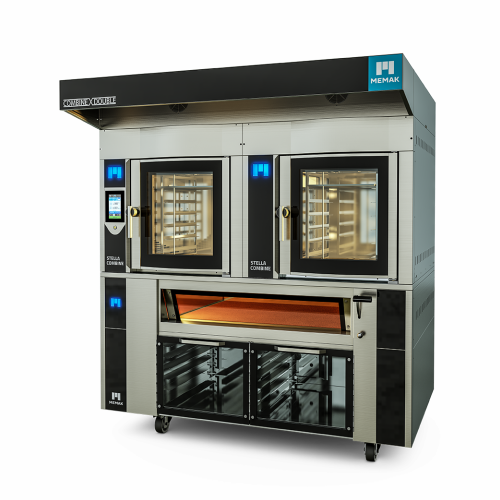
Convection oven for bakery production
Optimize your baking with precise temperature and humidity control, ensuring perfect ...
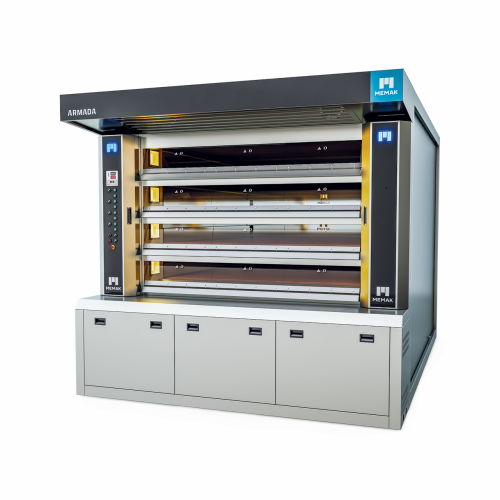
Steam pipe oven for industrial bakeries
Achieve consistent baking results with efficient heat distribution and steam genera...
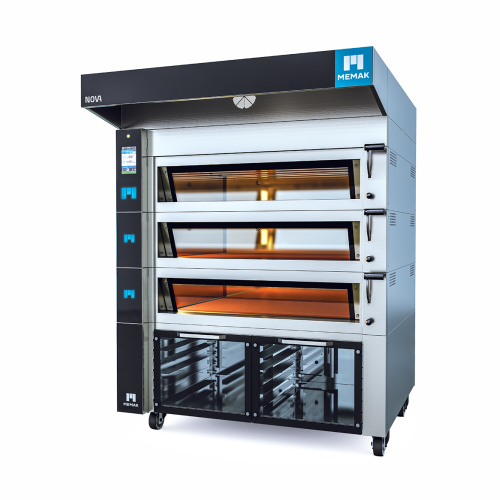
Electrical deck oven for bakery applications
For bakery operations seeking precise control, our deck ovens deliver optimal...
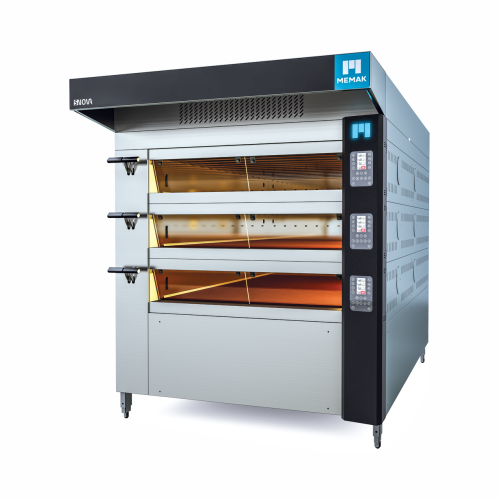
Electrical deck oven for high-efficiency industrial baking
Achieve precise temperature control and energy efficiency in ...
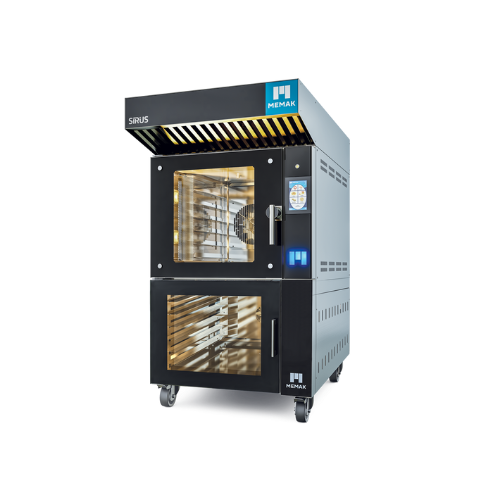
Advanced convection oven for bakery applications
Enhance your bakery’s production efficiency and product quality with a ve...
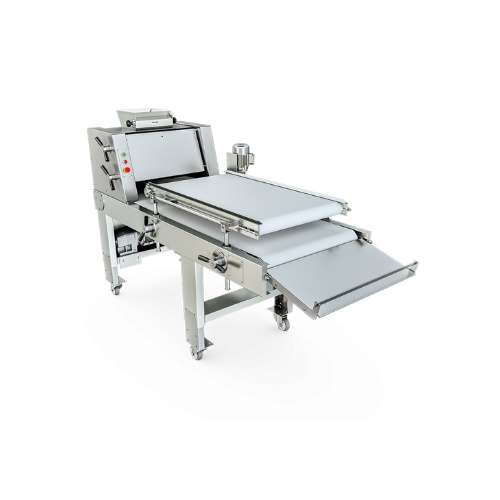
Industrial chocolate and dough sheeter
Streamline your chocolate and pastry production with robust dough sheeting and rolli...
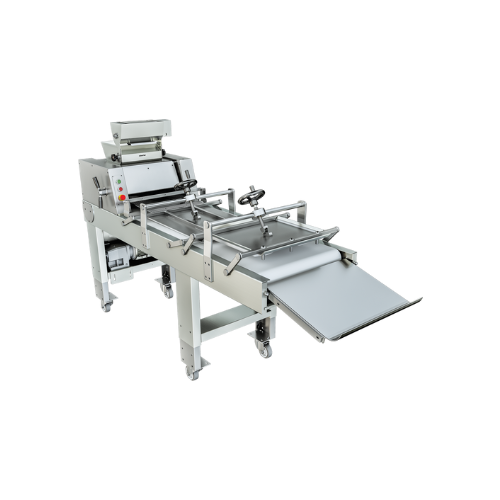
Industrial long moulder for bakery production
Enhance your bakery’s efficiency with a high-speed long moulder ideal ...
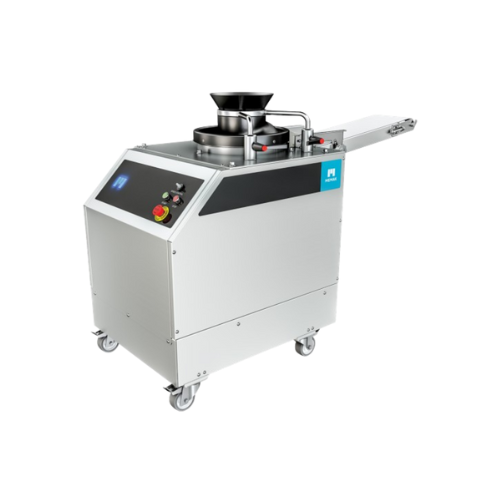
Conical dough rounder for bakeries
Achieve consistent dough rounding with precision and efficiency, enhancing your bakery’s...
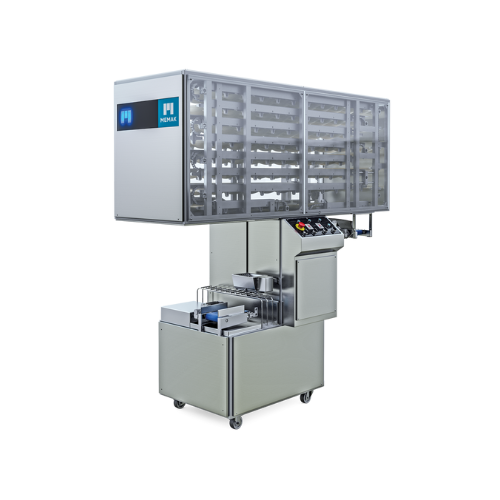
Dough proofing solution for stress-free fermented dough
Ensure stress-free dough handling and optimal fermentation before...
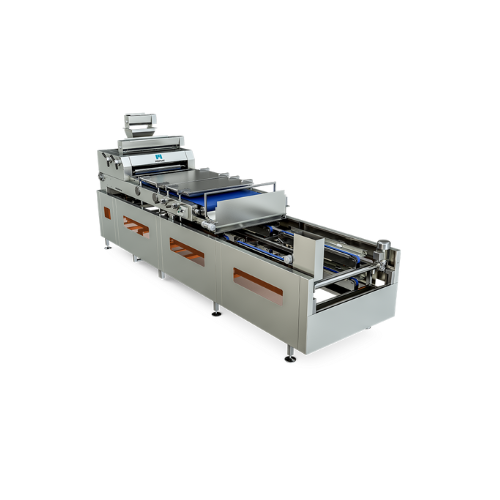
Dough aligning system for bakery production
Enhance your bakery’s precision and efficiency with a system that ensure...
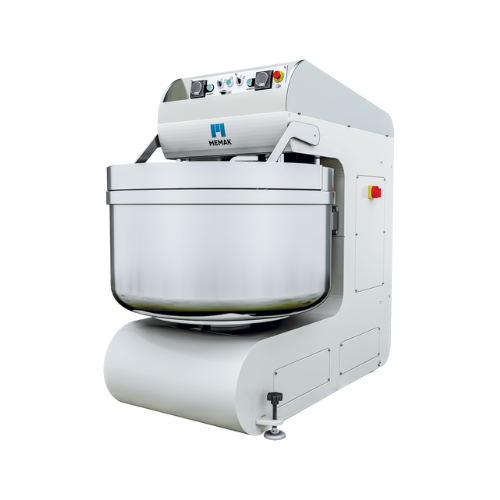
Fixed bowl spiral mixer for dough preparation
Ideal for perfecting dough consistency, this spiral mixer offers two-speed o...
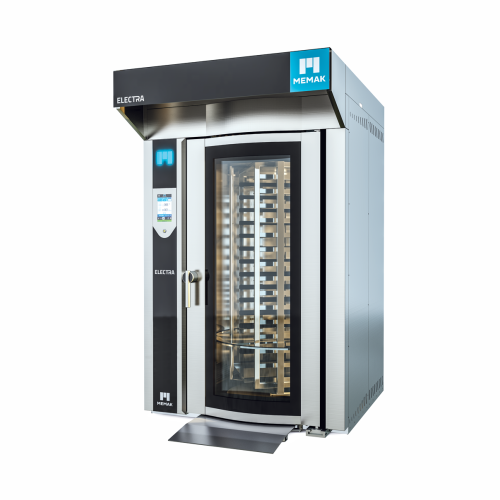
Rotary rack oven for bakeries
Efficiently handle diverse baking needs with precise temperature and steam control, ensuring c...
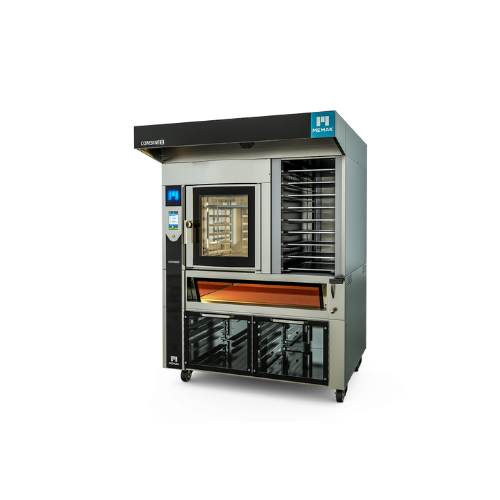
Combinex for baking high-quality breads and pastries
Optimize your bakery or confectionery production with precise temper...
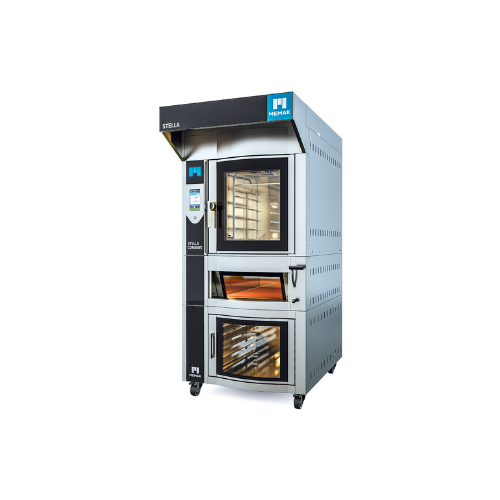
Industrial bakery oven with proofing cabinet
Optimize your bakery production with an all-in-one solution that seamlessly i...
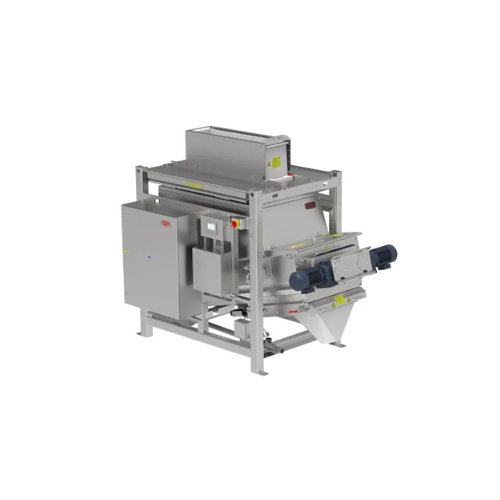
Flake ice weighing and batching system for dough processing
Optimize your dough’s freshness and consistency with p...
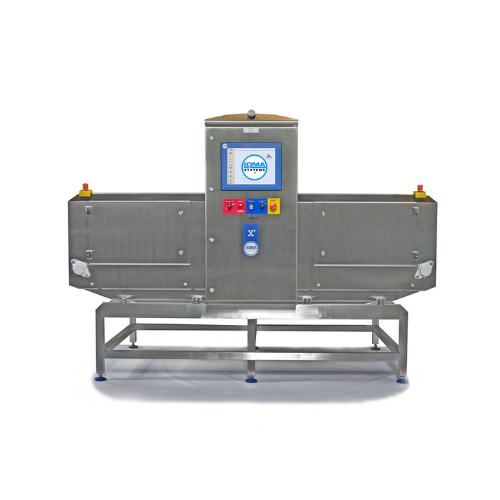
X-ray inspection system for large bulk products
Ensure consumer safety and product quality by efficiently detecting contam...
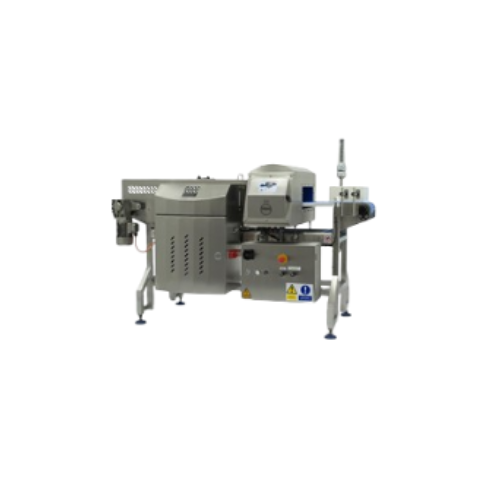
Metal detector for conveyorized applications
Enhance your production line by ensuring product safety with advanced metal d...
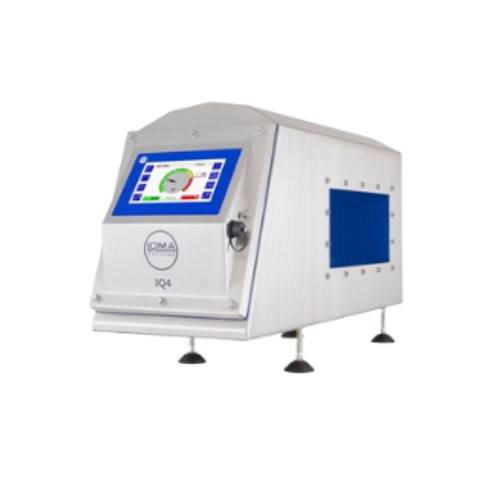
Industrial metal detector for food production lines
Ensure product safety and compliance by seamlessly detecting metal co...
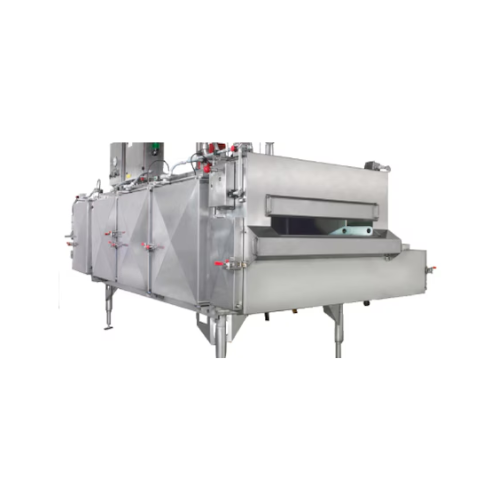
Cryogenic tunnel freezer for optimized food freezing
Enhance your production line with advanced cryogenic freezing techno...
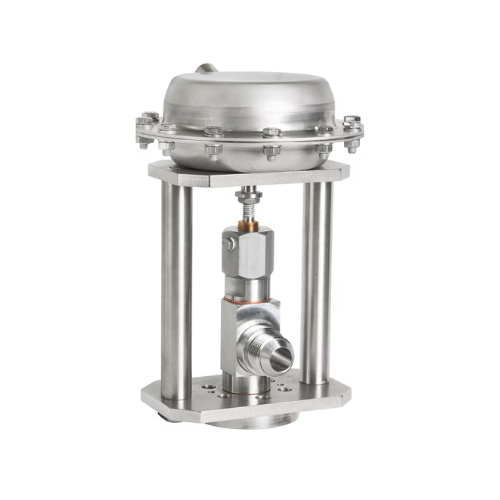
Cryogenic chilling systems for bulk food processing
Maintain optimal temperatures during high-volume food processing with...
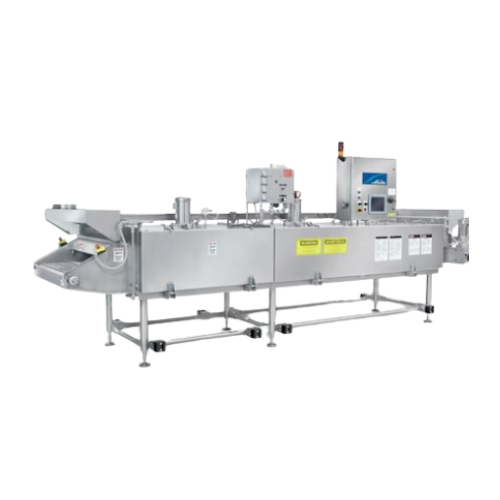
Cryogenic food freezer
Achieve rapid and precise freezing for diverse food products, ensuring optimal texture and moisture re...
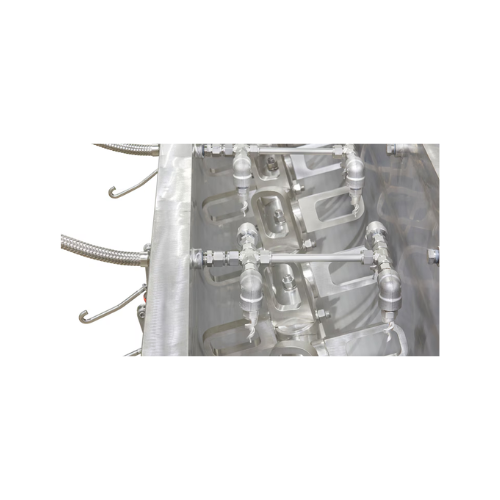
Cryogenic chilling systems for food processing
Efficiently maintain precise temperatures to enhance product quality and sa...
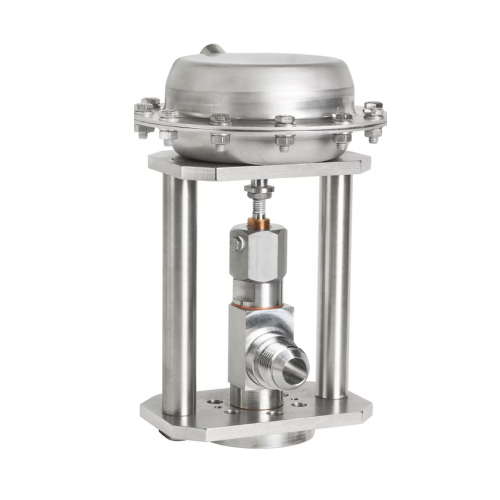
Cryogenic chilling for meat mixing and blending
Ensure precise temperature control during mixing and blending to prevent b...
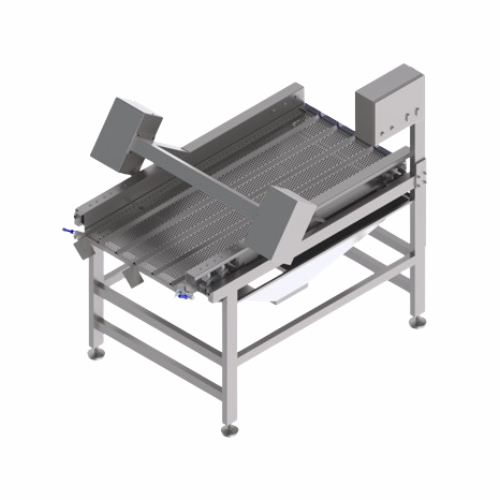
Vibrating sorting table for pre-dewatering
Efficiently streamline your production with a versatile vibrating sorting table...
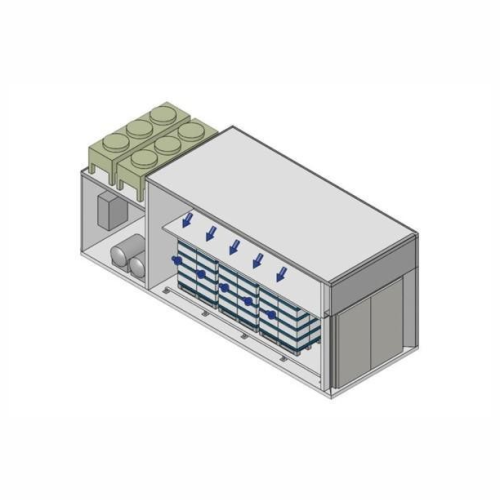
Industrial freezing tunnel for food products
Achieve rapid and precise freezing of diverse food products while maintaining...
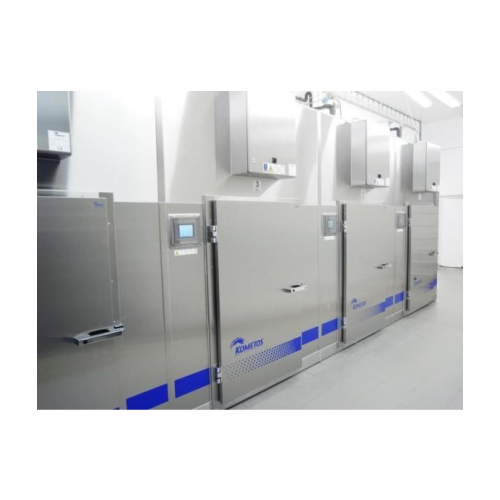
Stiffening system for meat products
Achieve uniform cooling and extend the shelf life of various food products with precisi...
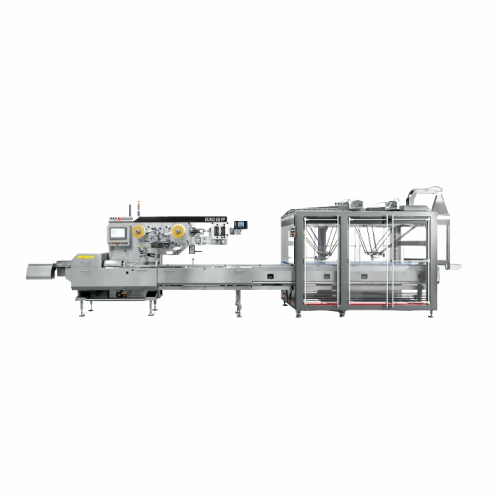
Flow wrapping with pick and place robots
Streamline your confectionery and bakery packaging with precision flow wrapping, u...
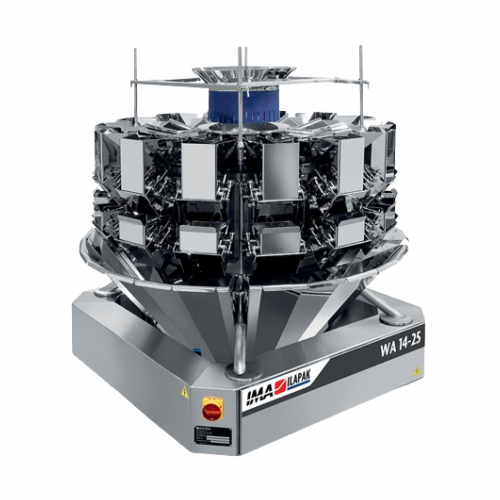
High precision multihead weigher for confectionery production
Achieve precise weighing and counting for varied product c...
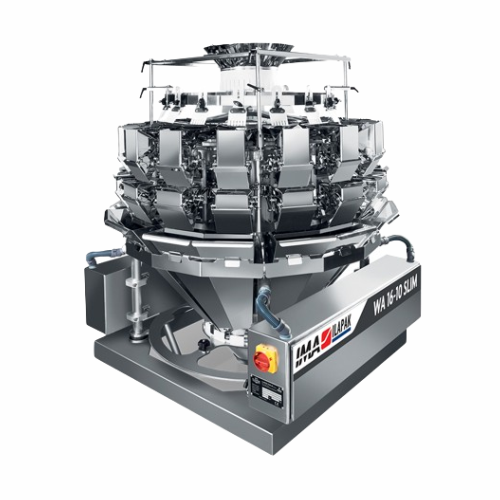
High-speed multi-head weigher for confectionery products
Achieve precise measurements and minimize waste in high-speed fo...
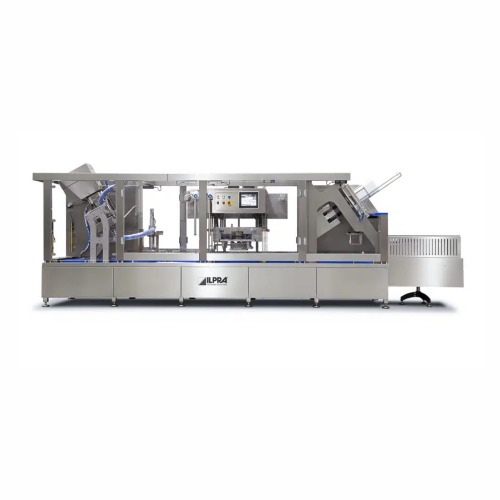
Tray sealer for food packaging buckets
Enhance your packaging efficiency with a highly adaptable tray sealer, designed for ...
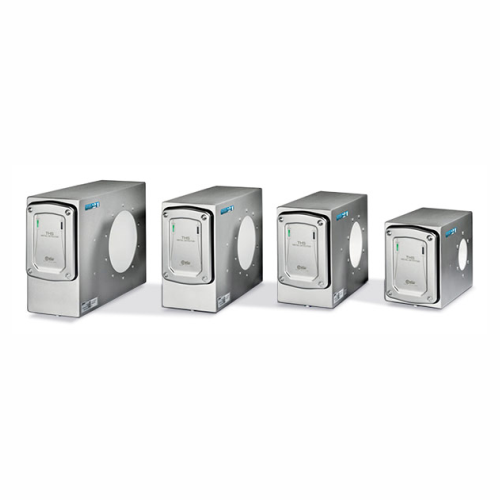
Industrial metal detector for gravity feed applications
Ensure the purity of your products by detecting and removing both...
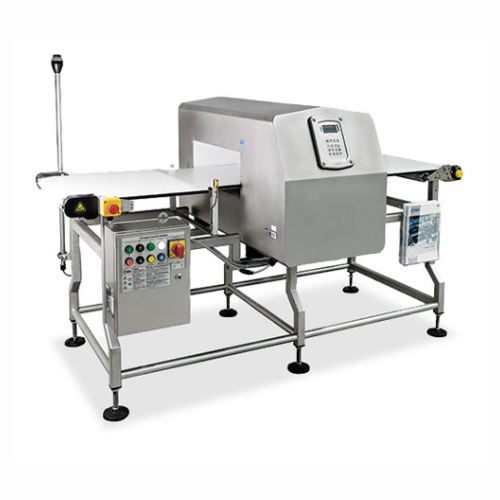
Conveyor belt metal detection system for food processing
Enhance product safety and ensure compliance with the most strin...
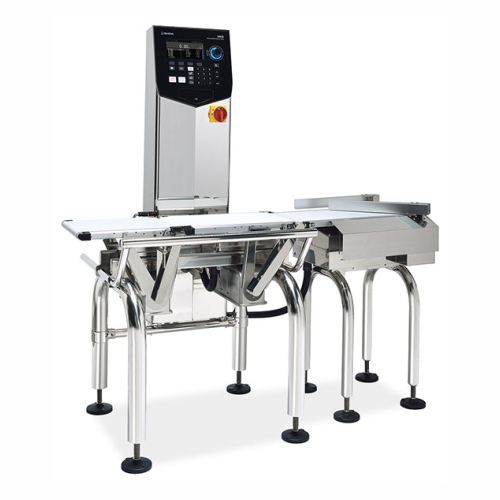
Checkweigher for packaged goods inspection
Ensure precision and compliance with this high-speed checkweigher, perfect for ...
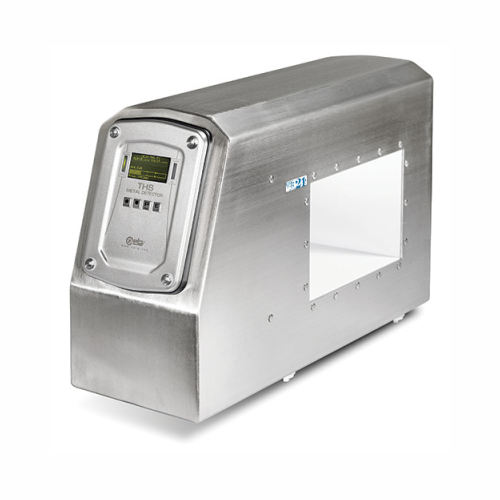
Advanced metal detection for food processing
Maximize your production line’s safety and efficiency with a cutting-ed...
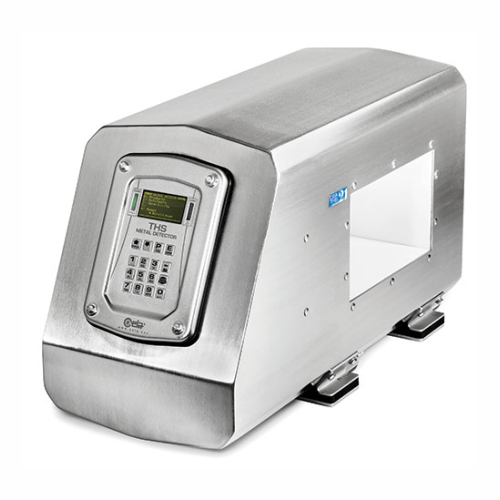
Multi-spectrum metal detector for food industry
Achieve unmatched detection accuracy in your food processing line with thi...
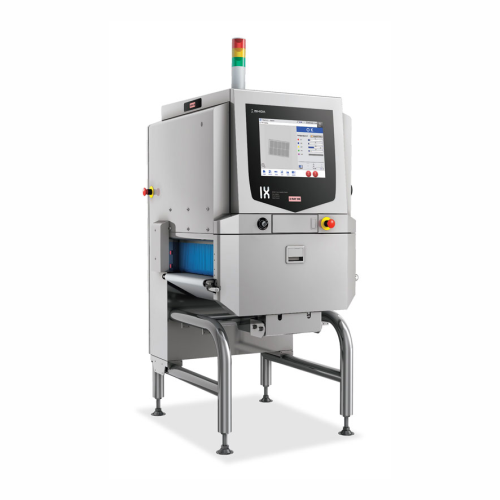
X-ray inspection system for identifying foreign bodies in food products
Ensure precise detection of foreign materials i...
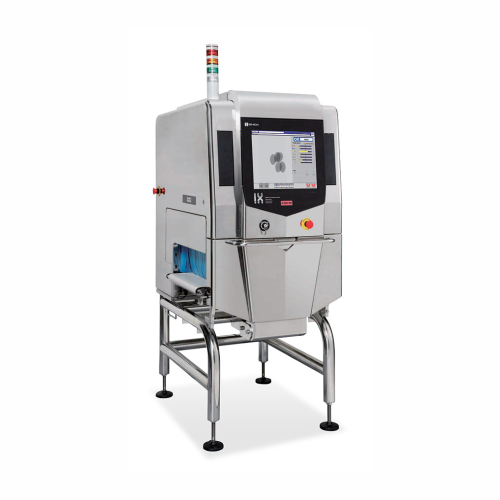
X-ray inspection system for detecting foreign objects in food products
Ensure product safety and quality by detecting e...
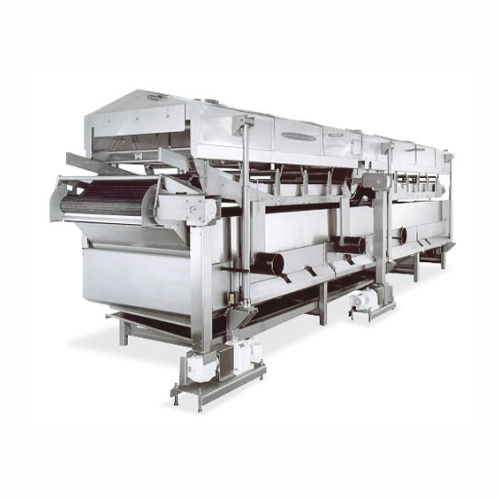
Continuous french fry fryer
Achieve optimal frying conditions with precise temperature control and rapid load adjustments, e...
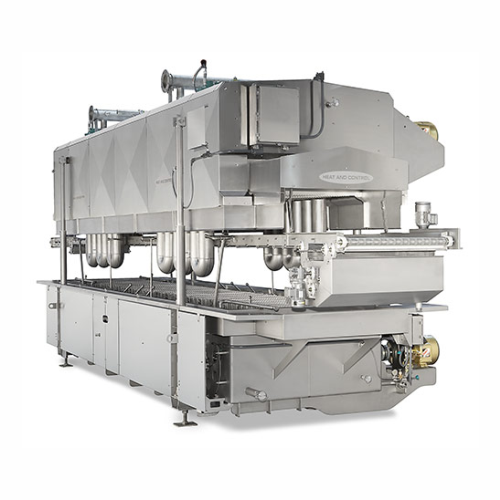
Impingement oven for meat and baked products
Achieve faster cooking and greater uniformity with advanced airflow technolog...
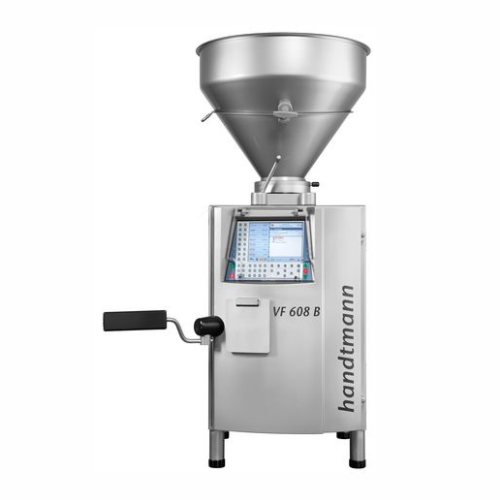
Dough portioning system for bakery operations
Achieve precise dough portioning with minimal waste using our advanced syste...
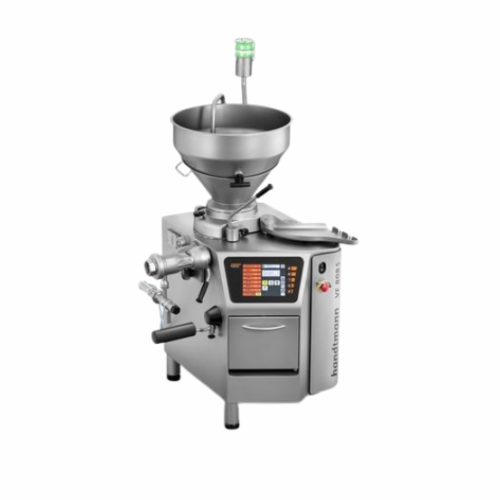
Compact vacuum filler for small to industrial scale food processors
Achieve precise portioning and high-speed productio...
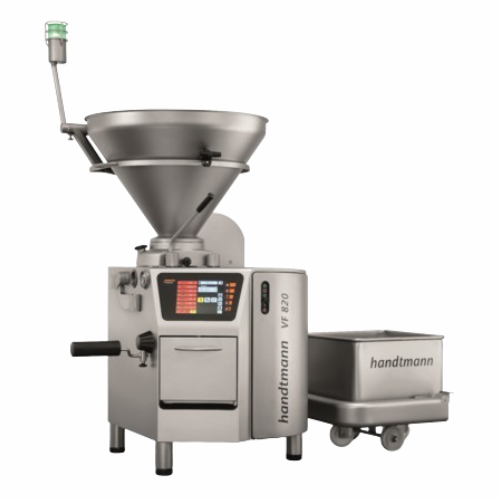
Vacuum filler for medium-scale sausage production
Achieve precise portion control and optimal hygiene with a versatile fi...
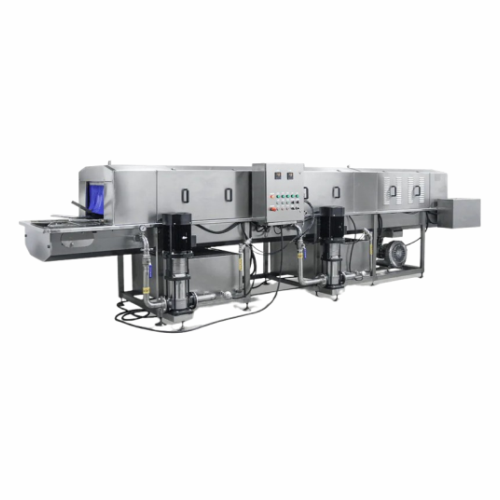
Automatic tray washer for gummy production cleanup
Eliminate gummy residue efficiently with high-pressure tray washing, e...
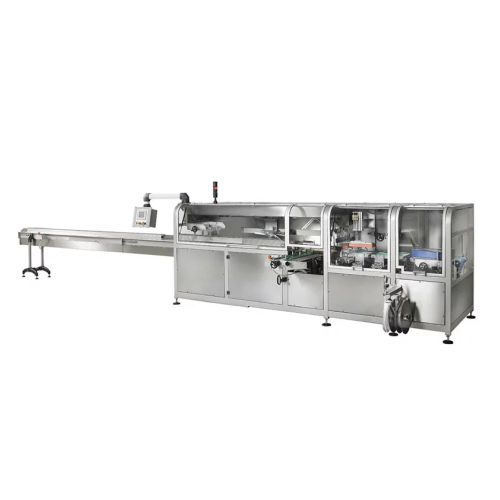
Automatic packaging system for preformed bags
Enhance your bakery’s efficiency with advanced preformed bag packaging...
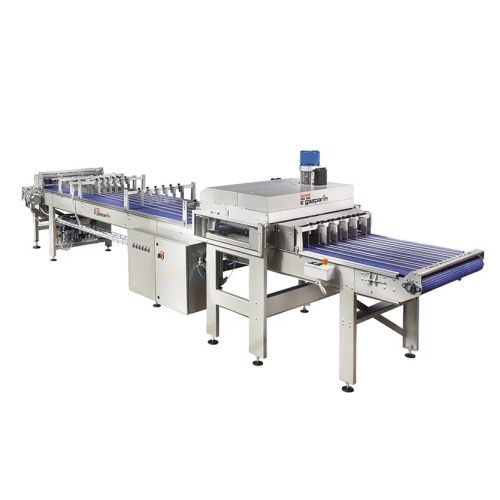
Horizontal partial cut slicer for bakery products
Achieve precision in your bakery with a horizontal partial cut slicer, ...
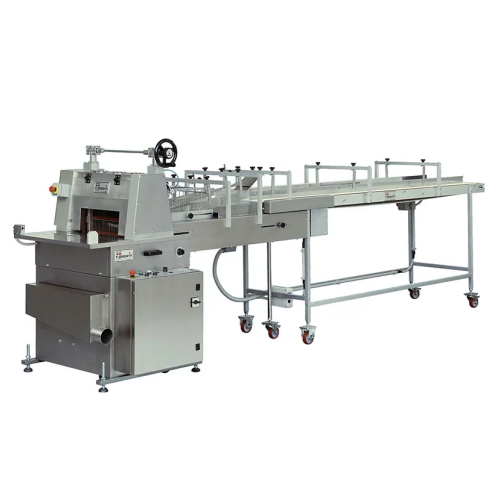
Industrial reciprocating blade slicer for high-speed slicing
Enhance your bakery production line with high-speed slicing...
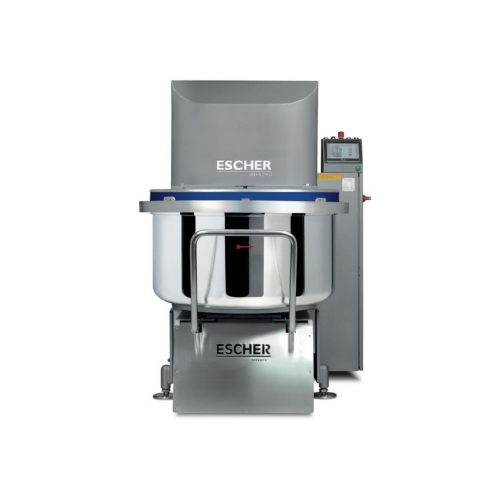
Advanced dough mixing solution with removable bowl
Efficiently blending and kneading diverse doughs, this mixer enhances ...
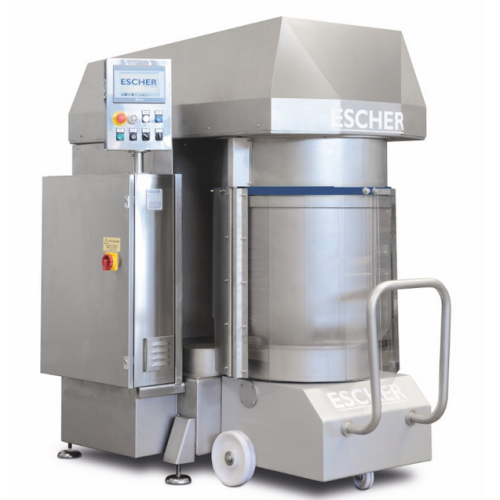
Planetary mixer with double tool for pastry dough
Optimize your pastry production with precise mixing capabilities that e...
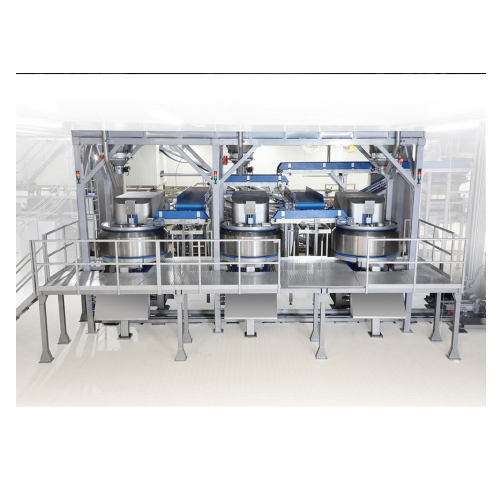
Double jacketed mixer for dough cooling
Achieve consistent dough quality and superior gluten development with precise tempe...
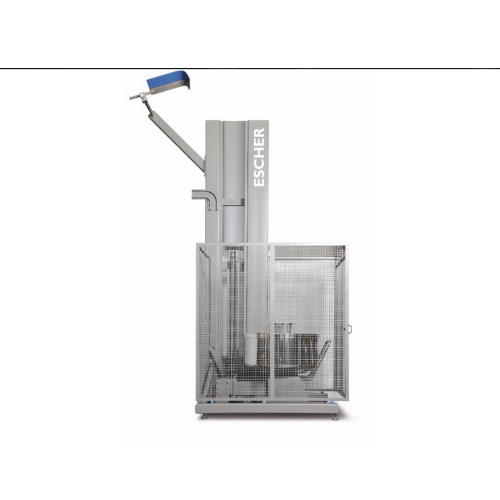
Industrial bowl lifter-tipper
Streamline your bakery production with a solution that simplifies dough handling by seamlessly...
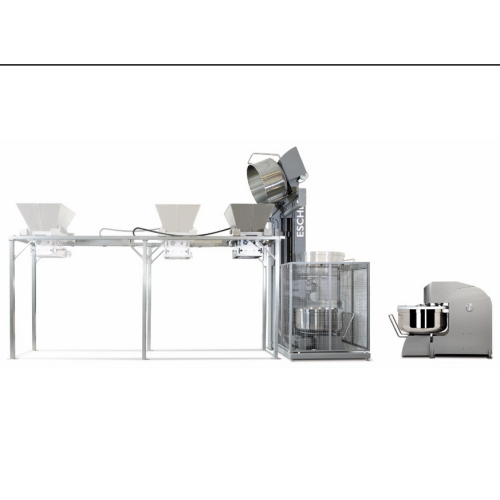
Feeding hoppers for dough production lines
Optimize your dough production with precision feeding and portioning, ensuring ...
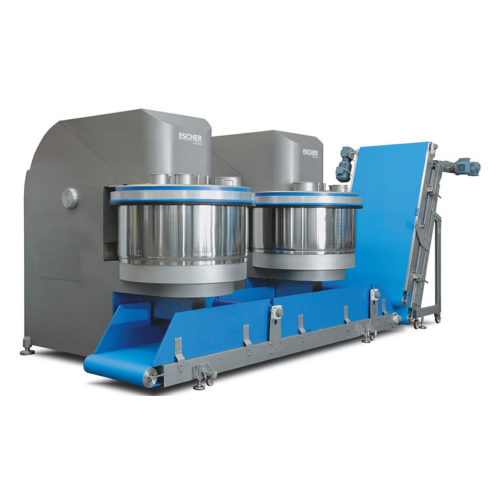
Spiral mixers with bottom discharge system
Ensure consistent dough quality while optimizing space and efficiency with a mi...
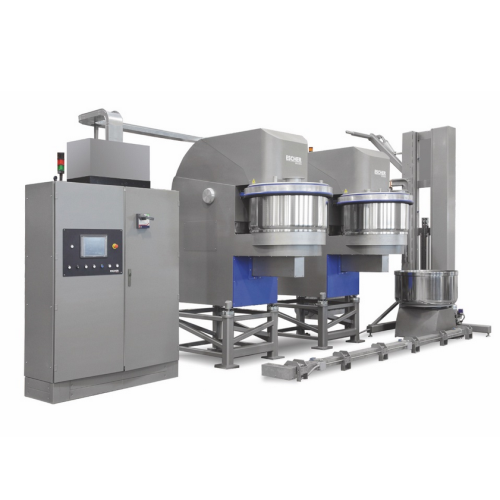
Industrial spiral mixer with bottom discharge system
Enhance dough quality and streamline operations with a dual-tool mix...
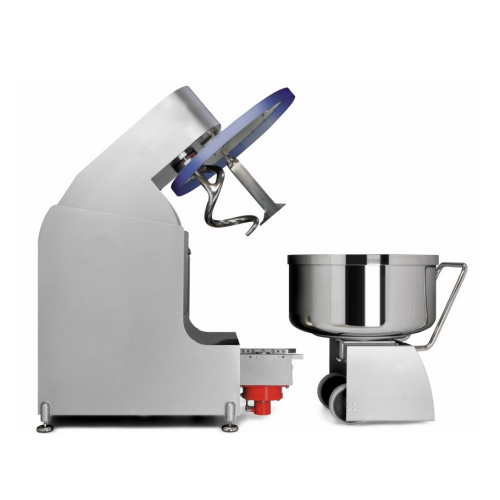
Spiral mixer with removable bowl for bakery production
Achieve consistent dough quality with advanced bowl locking and mo...
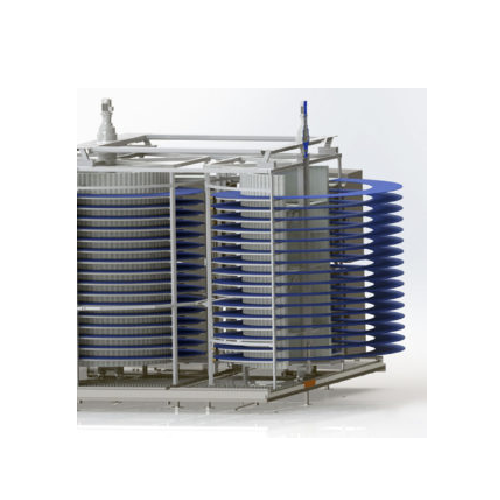
Large capacity cryogenic spiral freezer
Ensure consistent freezing quality and high yield in your continuous production lin...
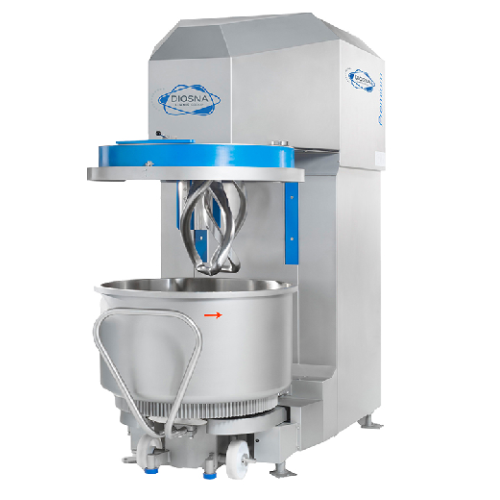
Premium industrial mixer for dough production
Enhance dough production efficiency with a mixer that reduces kneading times...
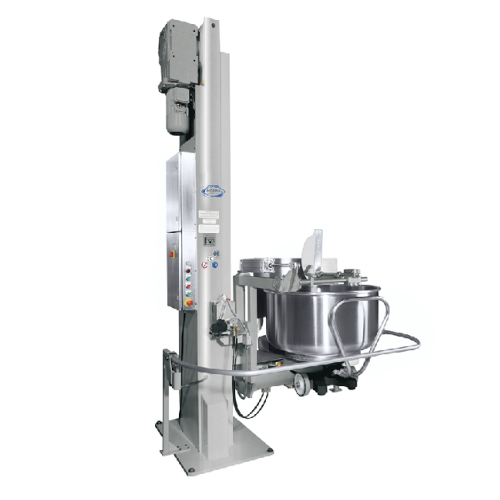
Elevator tipper for flexible dough handling
Achieve maximum flexibility in your production line with a versatile lifting s...
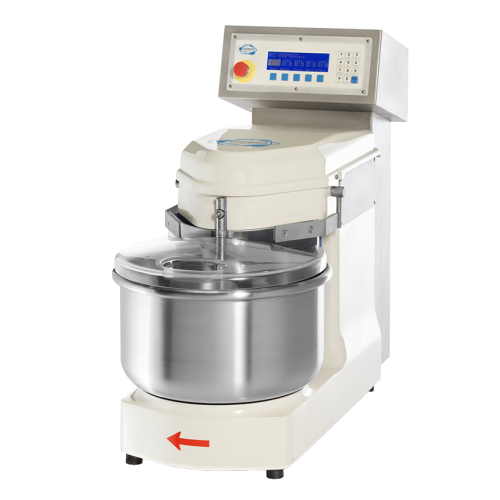
Compact spiral mixer for small-scale dough production
For kitchens and bakeries needing precise control, this compact spi...
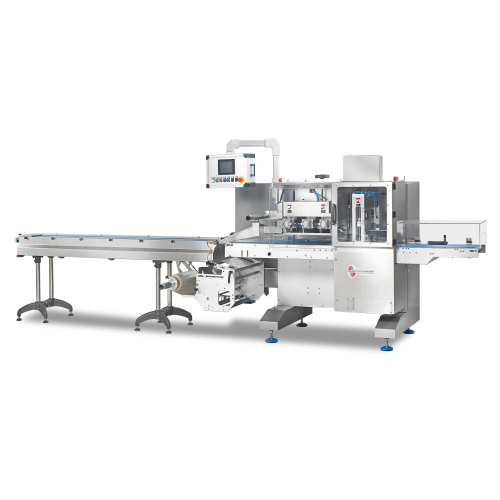
Horizontal flow pack packaging solution
Achieve seamless packaging with versatile flow pack machines, designed to efficient...
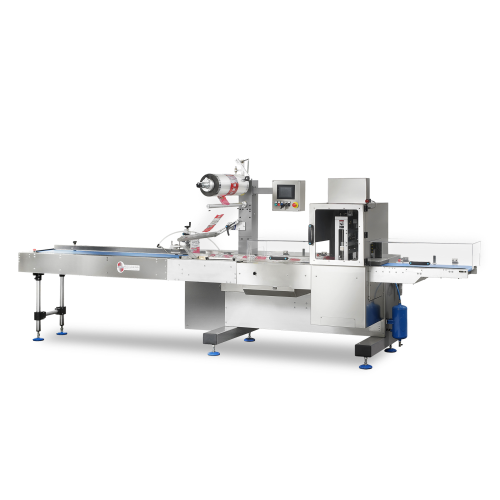
Flow pack packaging solution for flexible wrapping material
Optimize your packaging line with this compact flow pack sol...
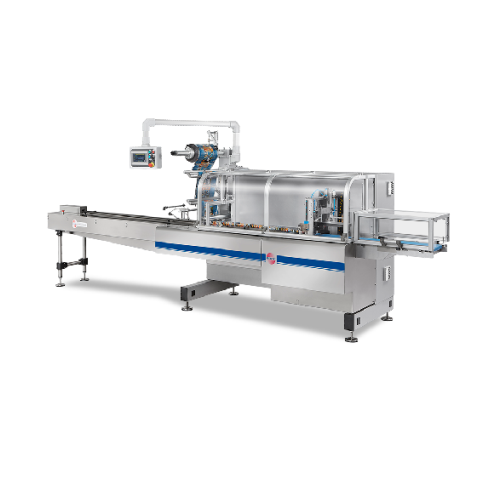
Horizontal flow pack packaging system for flexible materials
Enhance your packaging line efficiency with a system design...
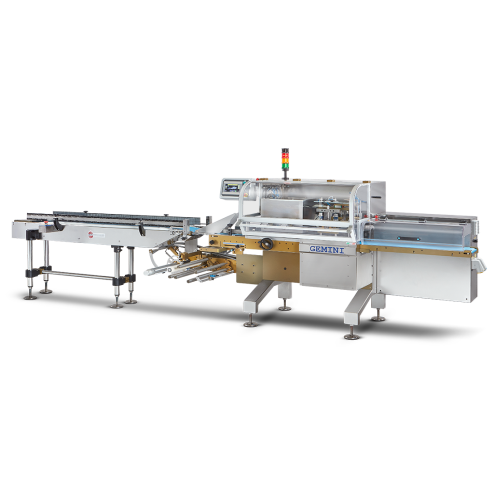
Flow pack packaging system for flexible wrapping material
Achieve seamless, high-speed packaging of solid foods with thr...
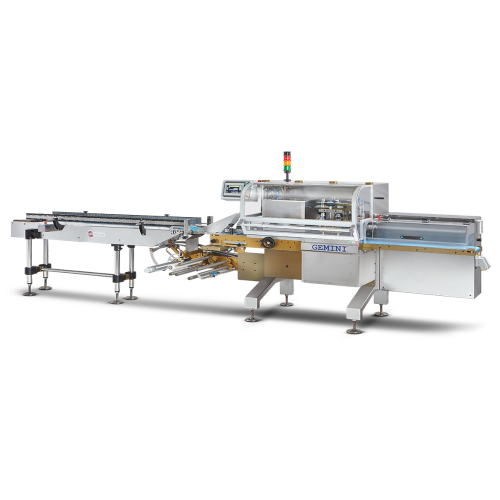
Flow pack packaging for flexible wrapping material
Achieve precise and secure packaging with three-sided sealed packages ...
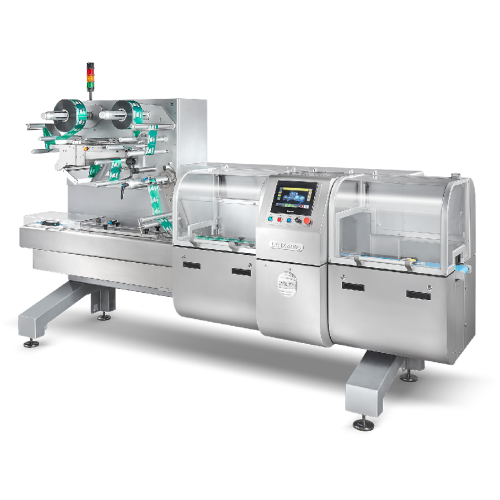
Horizontal packaging system for high-speed operations
Achieve unmatched sealing precision and packaging speed with this h...
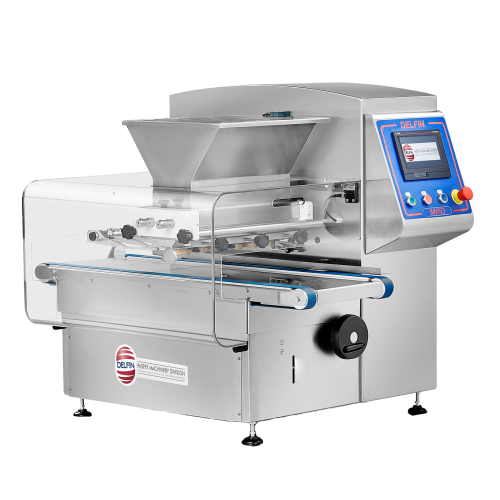
Compact biscuit depositor for small bakeries
For artisanal producers seeking precision and versatility, this compact equip...
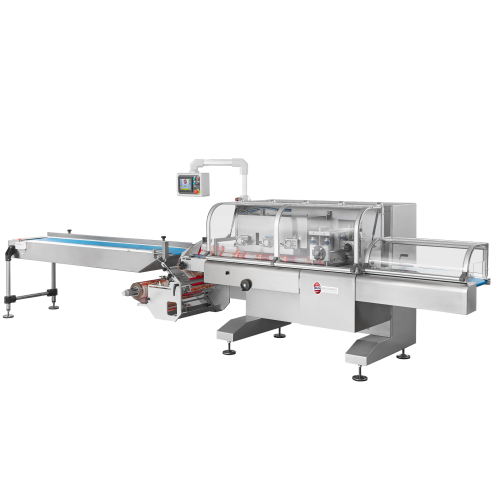
Flow pack packaging for irregularly shaped products
Achieve precise packaging for irregularly shaped and delicate items w...
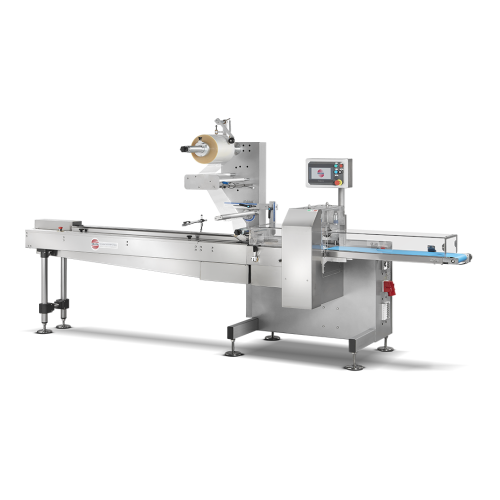
Horizontal flow-pack solution for flexible wrapping material
Simplify your packaging process with a high-speed, three-si...
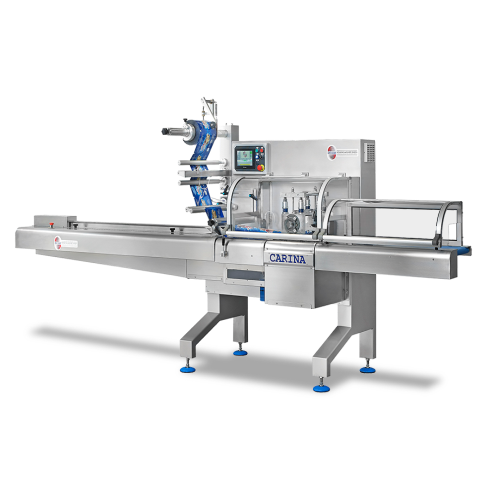
Three-side sealing flow pack machine
Optimize packaging efficiency with a high-speed flow pack machine that ensures precise...
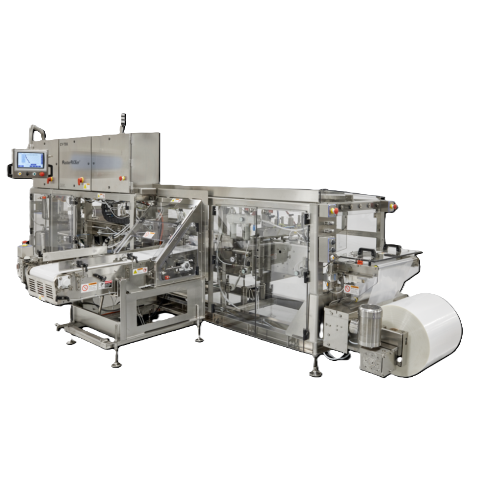
Automated modified atmosphere packaging solution for pre-wrapped trays
Streamline your packaging process with high-spee...
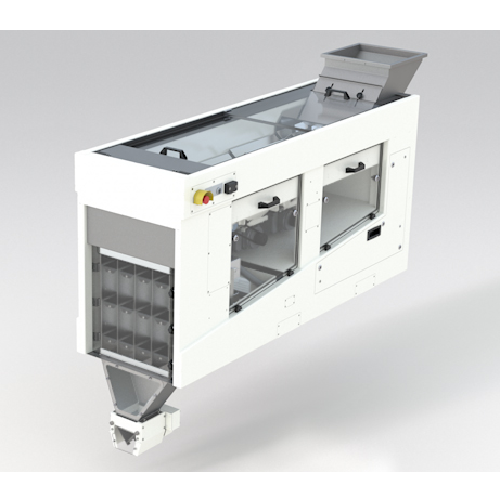
Product counting system for confectionery and food products
Achieve 100% counting accuracy and seamless integration in y...
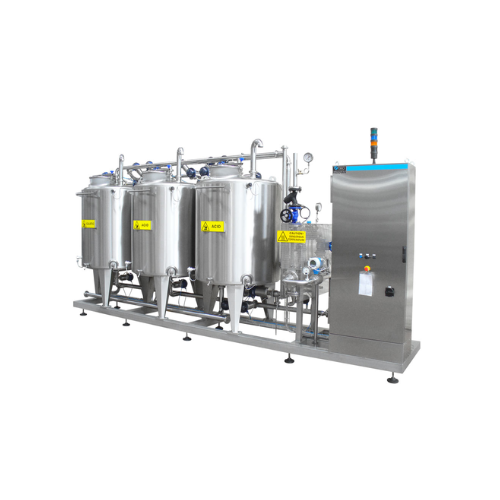
Cleaning-in-place system for oils and fats
Streamline your production line by efficiently cleaning oils and fats processin...
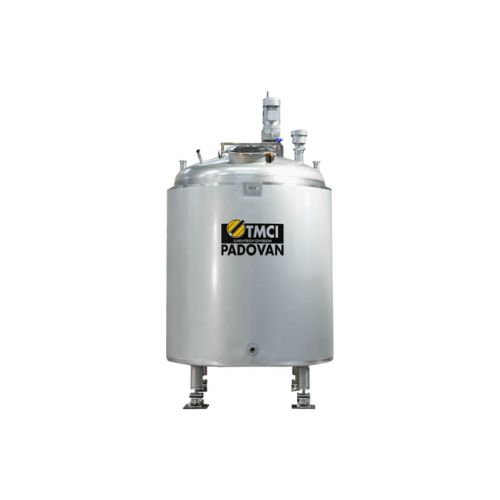
Process tanks for oils and fats
Optimize your oil and fat processing with versatile tanks designed for precise emulsificatio...
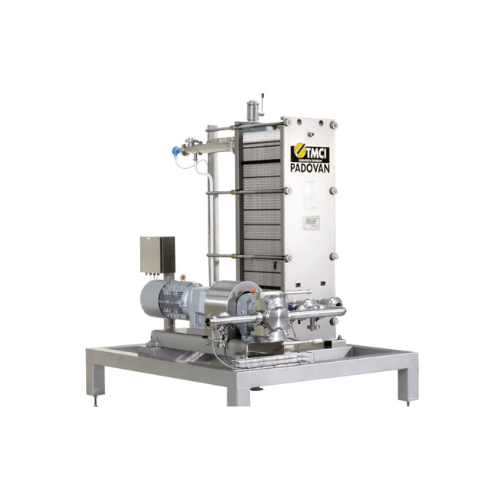
Continuous remelt systems for oils and fats
Optimize your production line with continuous remelt systems designed to effic...
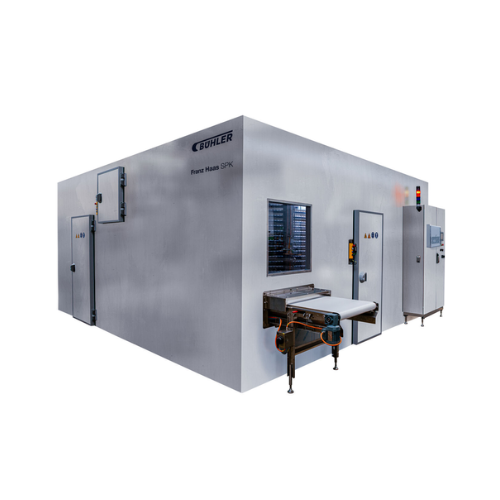
Wafer block spiral cooler
Enhance your confectionery production with a modular spiral cooler that ensures gentle handling an...
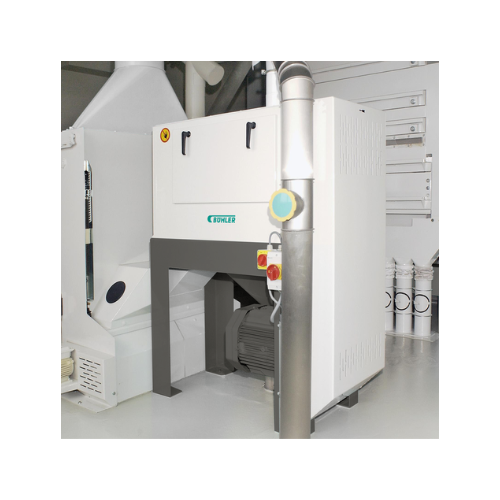
Grain scourer for wheat, durum, and rye
Enhance grain processing by efficiently removing impurities like dust, sand, and so...
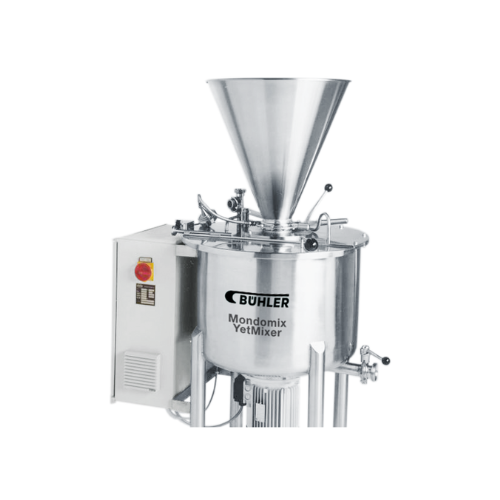
Premixer for confectionery masses
Achieve consistent ingredient blending with precision-premixing for candy and baked goods...
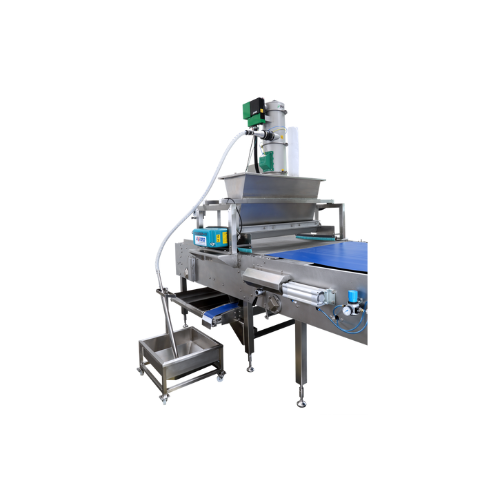
Vibration sprinkler for uniform dough decoration
Elevate your baked goods with precise, uniform decoration using a vibrati...
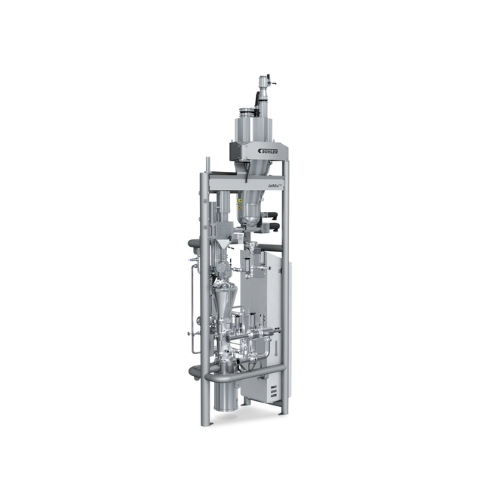
Hydration solutions for baked goods
Achieve consistent dough quality faster with a system that precisely hydrates and mixes...
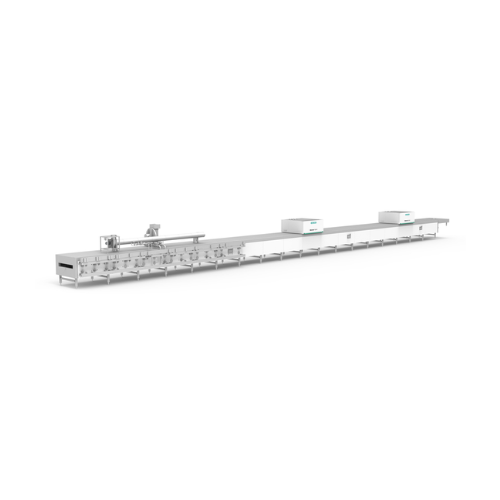
Hybrid tunnel oven for biscuits and cakes
Enhance production efficiency and product consistency with a versatile oven syst...
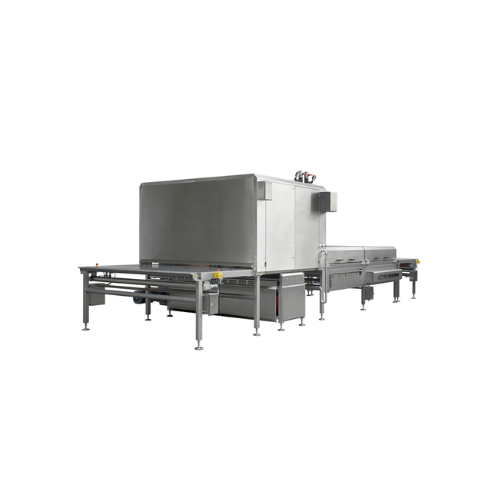
High-efficiency cooling tunnel for confectionery production
Optimize your product cooling process with high-efficiency t...
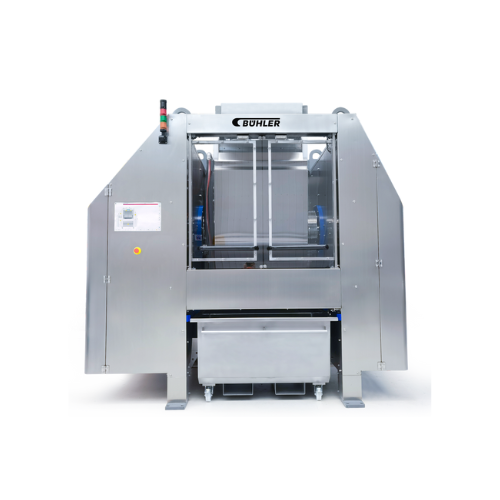
High-speed mixer for dough production
Achieve consistent dough quality and streamline your production process with this ver...
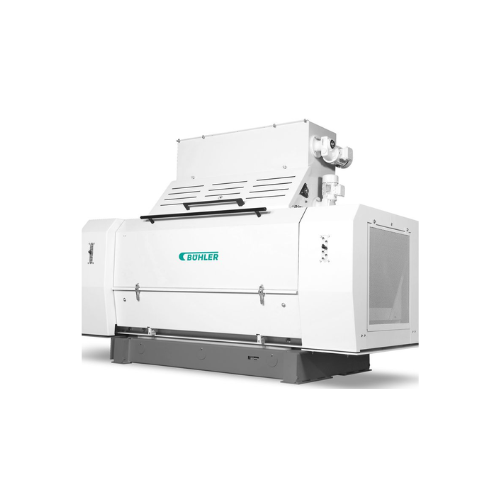
Oilseed flaking and milling system
Optimize your oilseed processing with a flaking system that enhances extraction efficien...
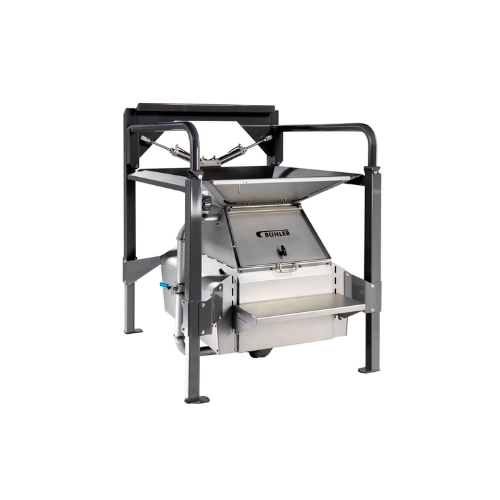
Discharge station for bags and big bags
Ensure consistent material flow and hygiene in your production line with a versatil...
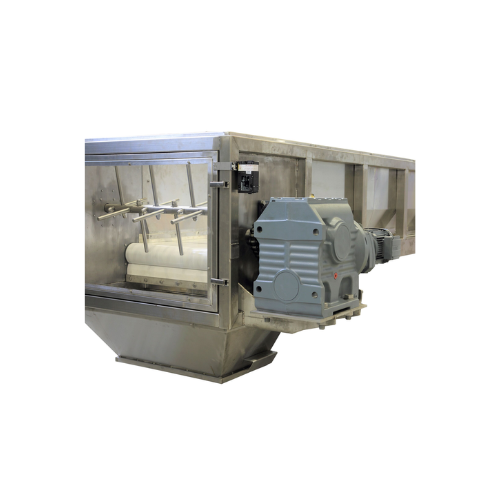
Dough ripening conveyor for stick and fried noodles
Ensure optimal dough maturity and consistency with this conveyor, des...
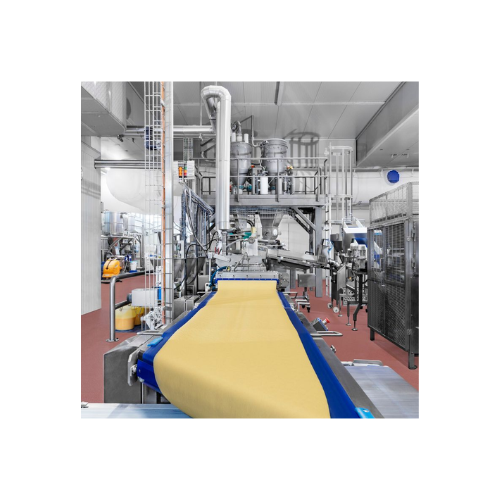
Continuous dough extruder for baked goods
Achieve optimal dough consistency and reduce production time by integrating cont...
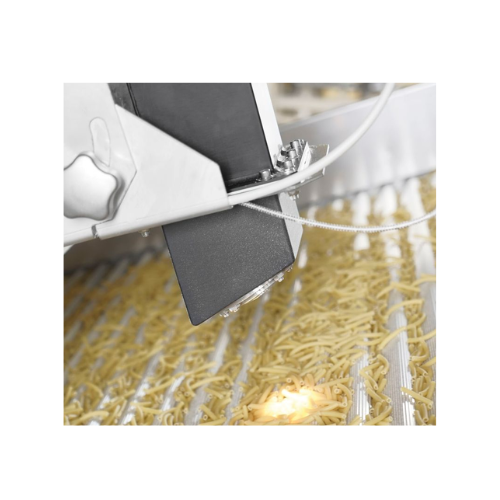
Digital process service for regulating water in dough preparation
Achieve consistent dough moisture levels with this di...
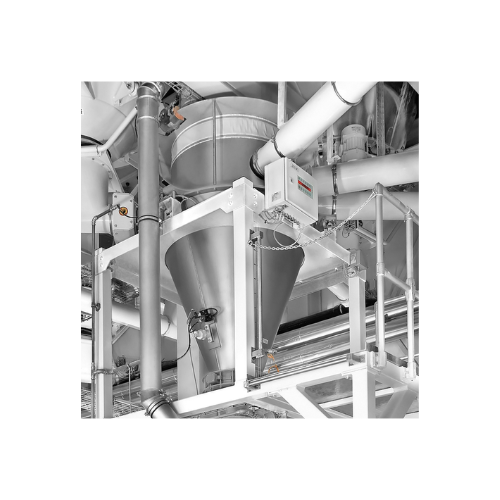
Weighing and receiving container for floury products
Achieve precise and consistent ingredient proportions with this syst...
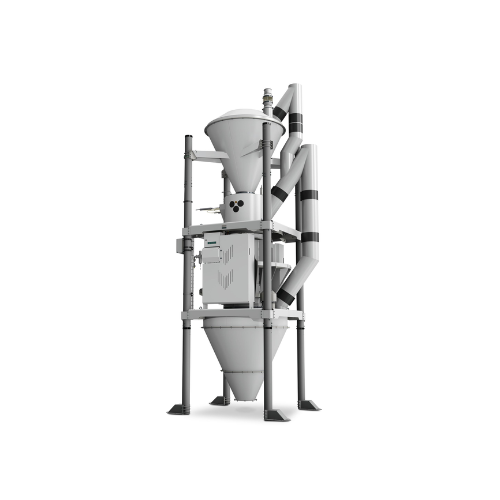
Fully automatic batch scale for powdery and granular products
Achieve precise and repeatable dosing for powdery and gran...
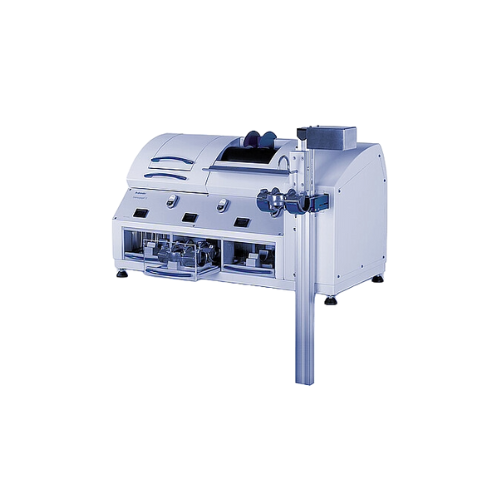
Extensograph for assessing dough rheology
Optimize dough quality with precise rheological analysis, ensuring your baking p...
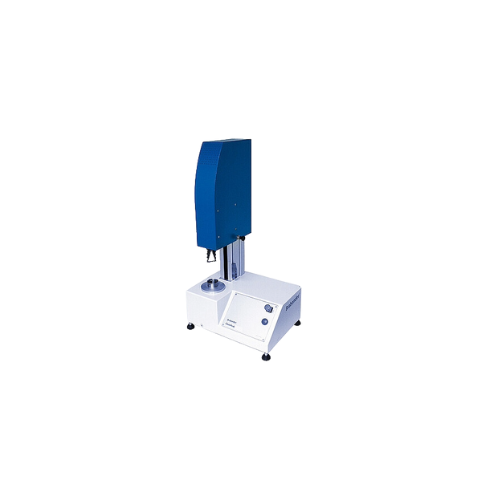
Gluten quality testing solution
Ensure optimal flour quality by rapidly assessing gluten properties, allowing you to refine ...
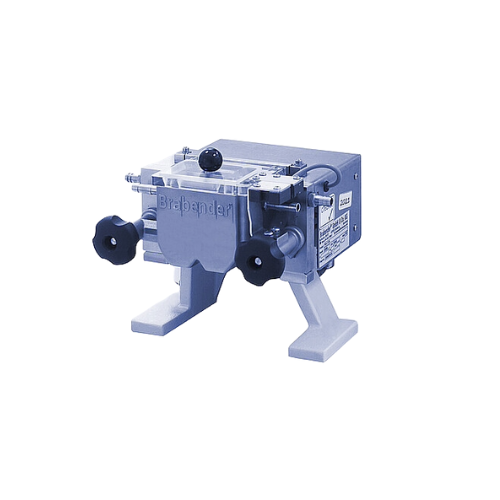
Measuring mixer for flour farinograph tests
Achieve precise dough consistency with ease—this mixer ensures reliable testin...
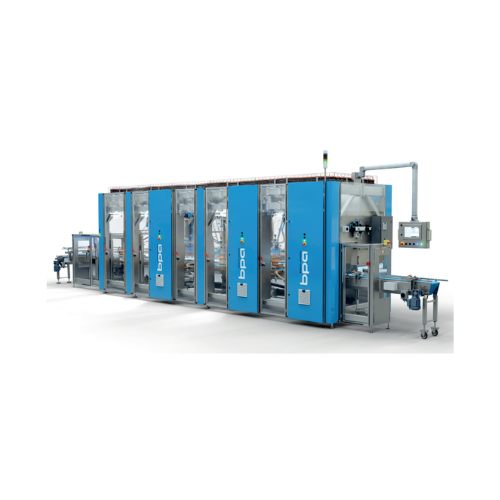
Vision guided robotics case packer
Maximize efficiency with vision-guided robotics for versatile case and tray loading, red...
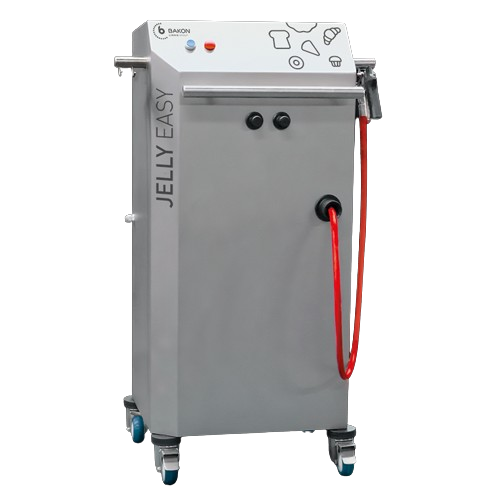
Glaze spraying system for bakery products
Achieve perfect glaze and finish on your bakery products with precision spraying...
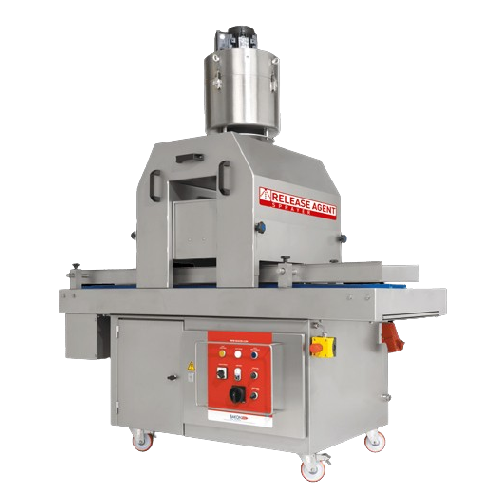
Release agent sprayer for baking trays and moulds
Achieve perfect results in baking by ensuring efficient and uniform gre...
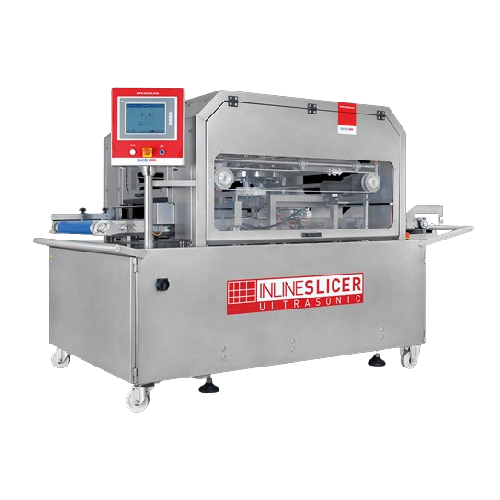
Inline ultrasonic slicer for bakeries
Achieve consistent precision in high-speed food portioning with this cutting-edge sli...
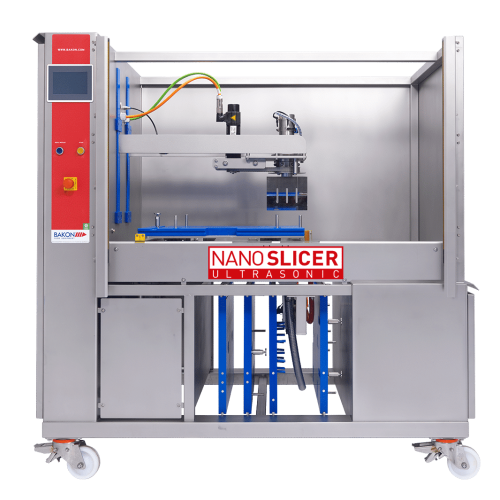
Ultrasonic slicer for precise food cutting
Achieve perfectly portioned bakery and food products with precision ultrasonic ...
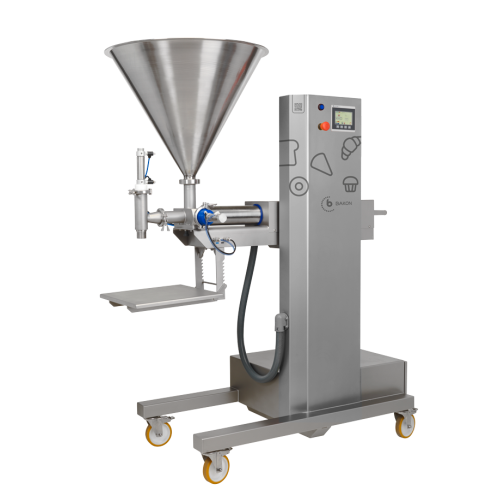
Depositing solutions for liquid and semi-liquid foods
Ensure consistent portioning and minimize waste with advanced depos...
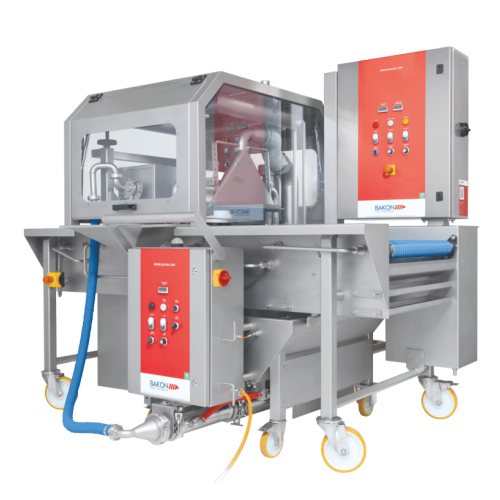
Ultrasonic cutter for pastry and bakery products
Achieve precise, high-quality cuts for your bakery and confectionery prod...
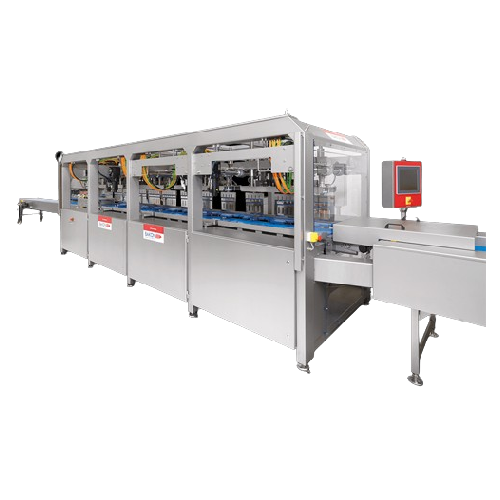
Ultrasonic cutting line for bakery products
Experience precise slicing and cutting efficiency with our high-capacity ultra...
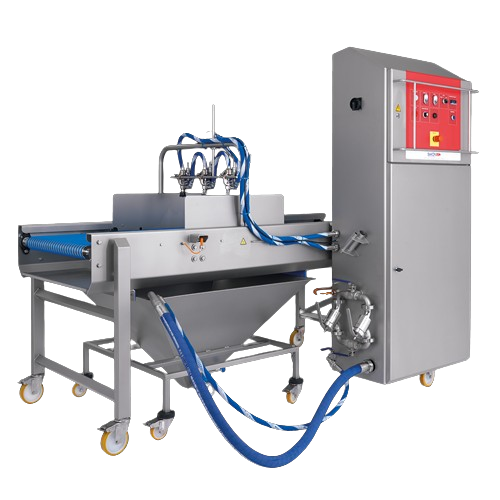
Industrial glaze sprayer for high-volume bakery production
Enhance product appeal and extend shelf life with precise gla...
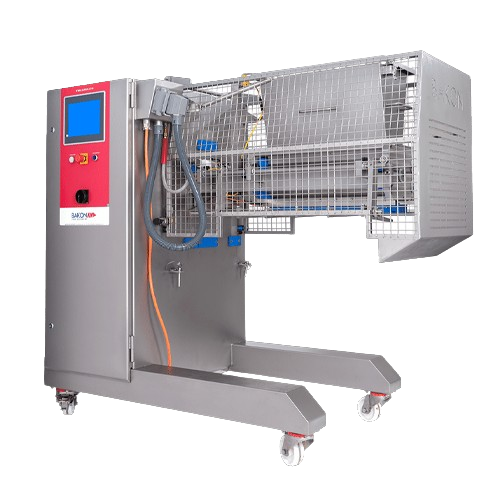
3-roll extruder for heavy dough products
Streamline dough processing for consistent, high-quality confections and baked goo...
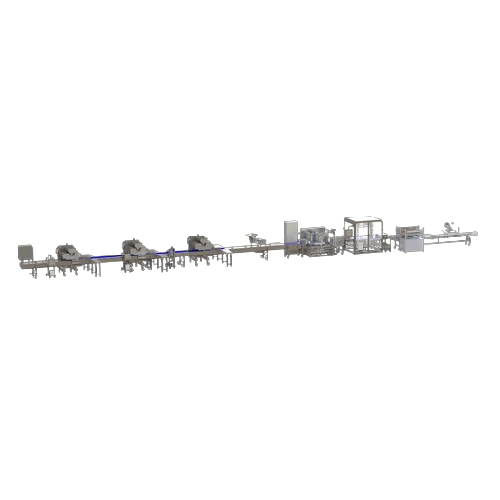
Full production line with depositing and ultrasonic cutting
Streamline your baked goods and dessert production with this...
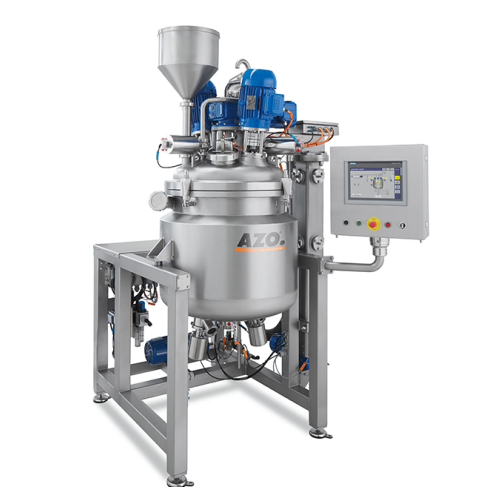
Dough lines for industrial bakery production
Optimize your bakery’s dough production with versatile solutions for pr...
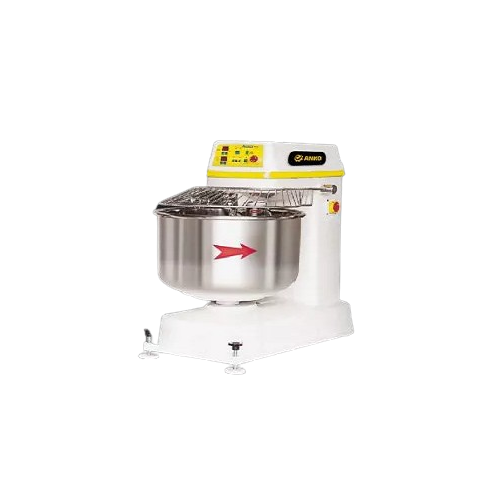
Industrial dough mixer for high capacity food production
Enhance dough consistency and texture with a high-speed industri...
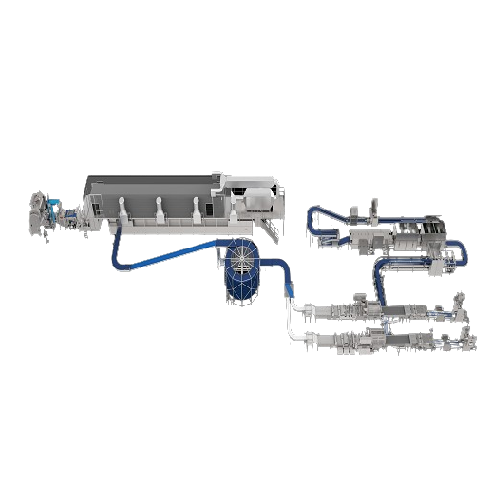
English muffin production system
Maximize your bakery’s output with our high-speed system designed to efficiently produce co...
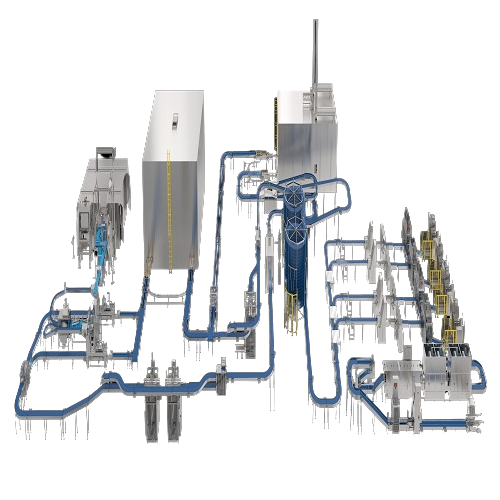
Soft bread production system
Optimize your bakery operations by integrating a high-speed system for producing a wide variety...
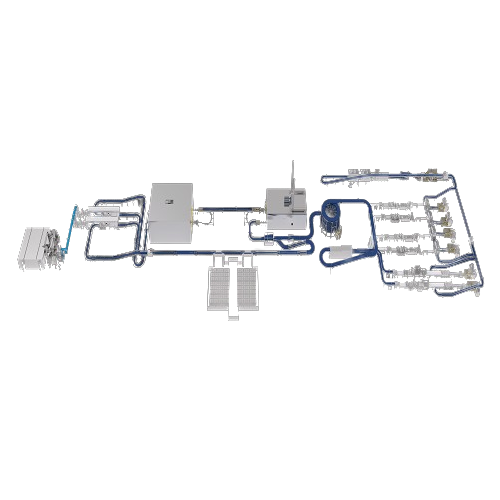
High-speed bun and roll production system
Optimize your bakery’s output with this high-speed system designed to stre...
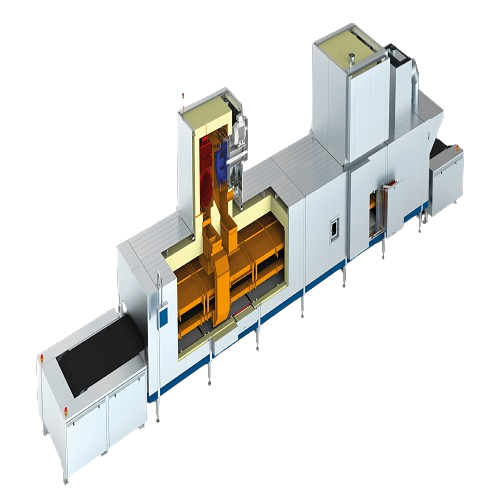
Energy-efficient oven monitoring system for bakeries
Optimize your baking operations with a smart oven system that enhanc...
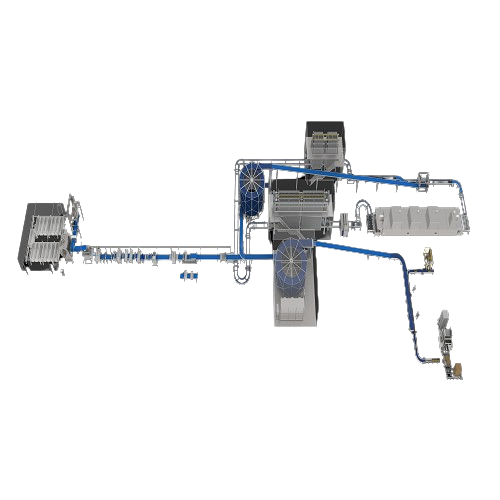
Artisan bread production line for high-volume bakeries
Optimize your artisan bakery operations with a production line tha...
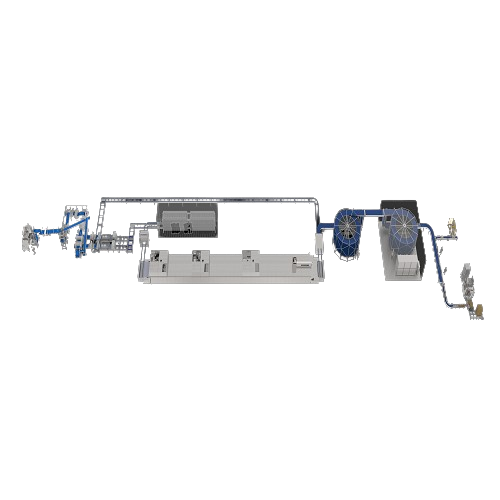
High-speed baguette production system
Achieve seamless, high-speed production of artisan baguettes with minimal downtime an...
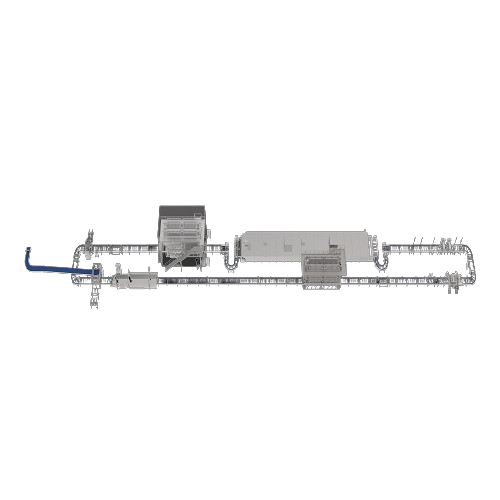
Muffin and cake production line
Enhance your bakery production with a line that meticulously controls every stage, from mixi...
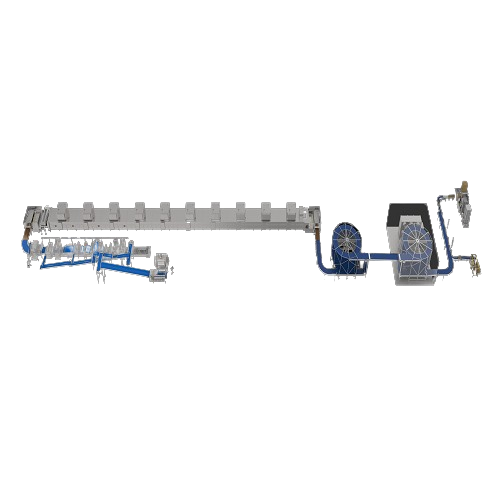
Pie production line for sweet and savory pies
Optimize your pie production efficiency with this integrated system, designe...
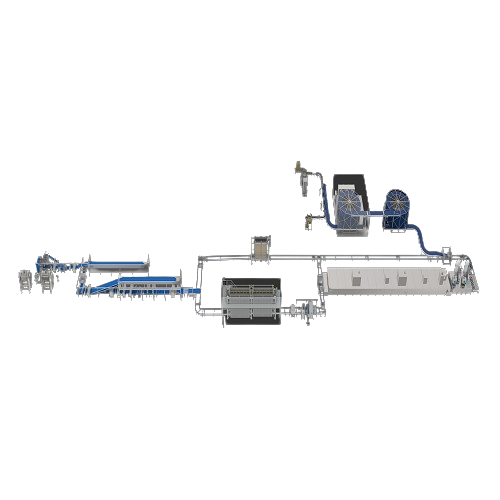
Advanced croissant production line
Streamline your bakery operations with a high-speed croissant production line, integrati...
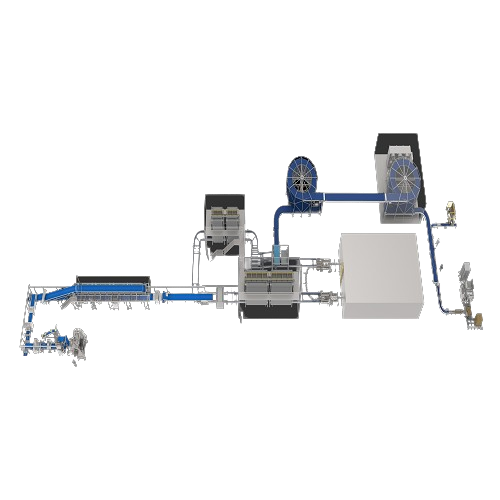
Danish and puff pastry production line
Enhance your pastry production with this integrated solution, designed to optimize t...
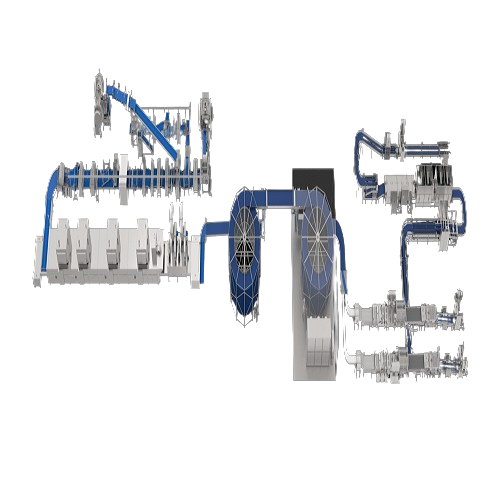
Automated sheeting and laminating solution for filled snack bread production
Enhance your bakery line’s efficien...
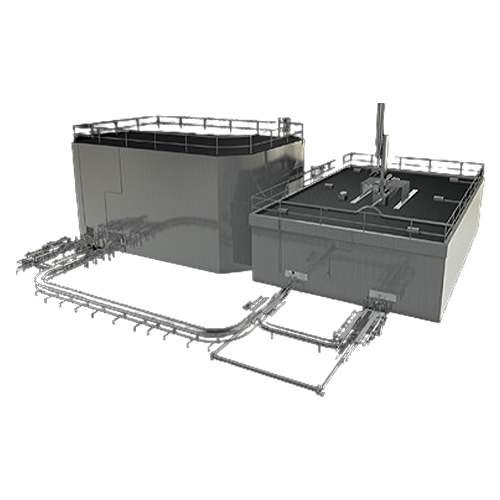
Continuous proofer and oven systems for commercial bakeries
Enhance product consistency and throughput in your bakery op...
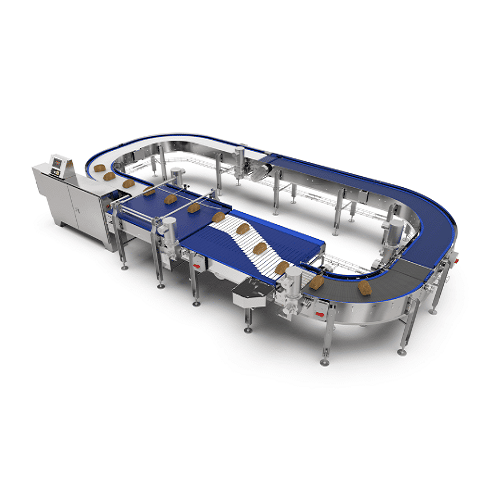
Bakery product conveying solution
Optimize your bakery’s production line by seamlessly transferring diverse products ...
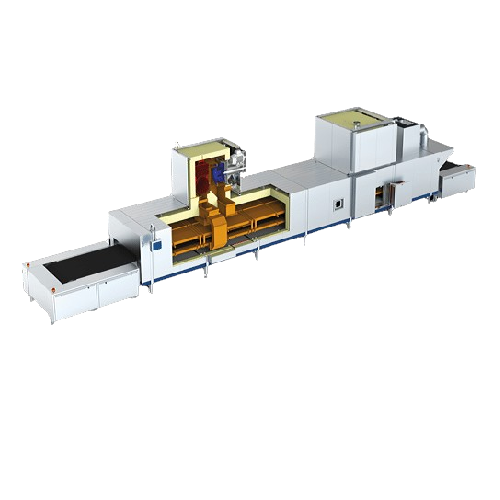
Industrial tunnel oven for baking and step proofing
Optimize your production line with modular tunnel ovens and step proo...
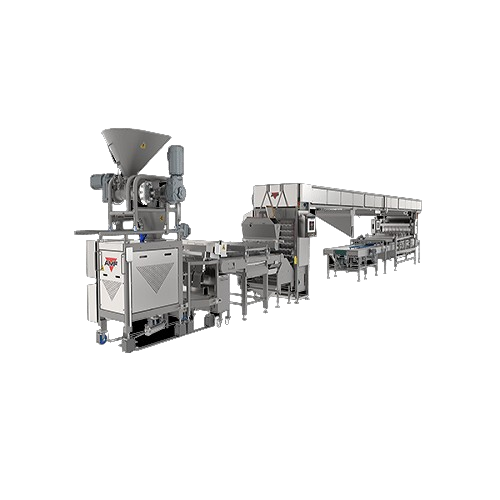
Precision dough dividing equipment for bread production
Achieve unmatched precision and speed in your bakery operations w...
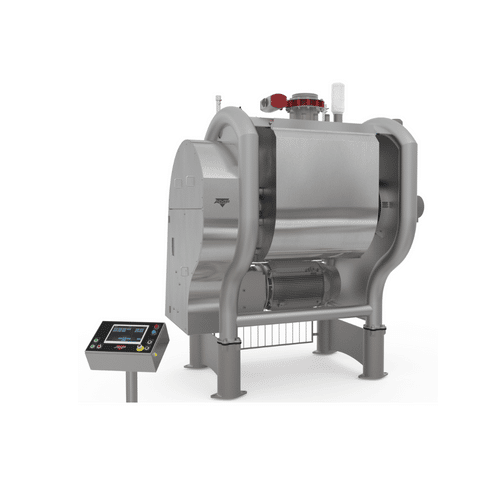
Open frame mixer for industrial dough mixing
Streamline your bakery’s mixing process with precision control and enha...
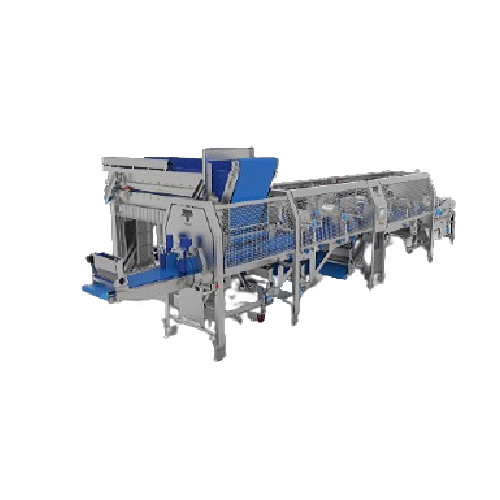
Industrial sheeting and laminating systems for baked goods
Elevate your bakery’s production line with cutting-edge...
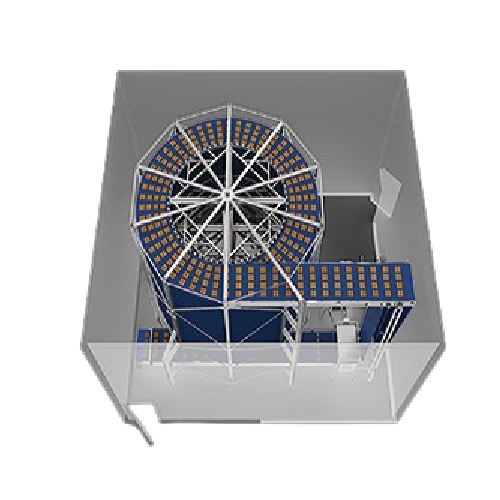
Spiral cooler for industrial baking
Enhance your bakery’s efficiency and product quality with modular cooling solutio...
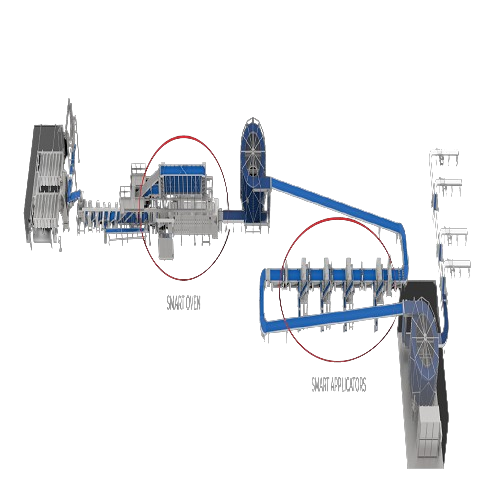
Ai solutions for pizza production in bakeries
Bring unparalleled precision and efficiency to your bakery with intelligent ...
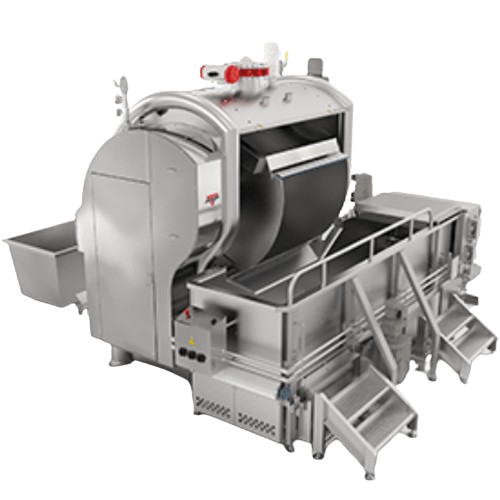
Industrial dough mixing system for bakeries
Enhance your bakery’s efficiency with a system that ensures precise doug...
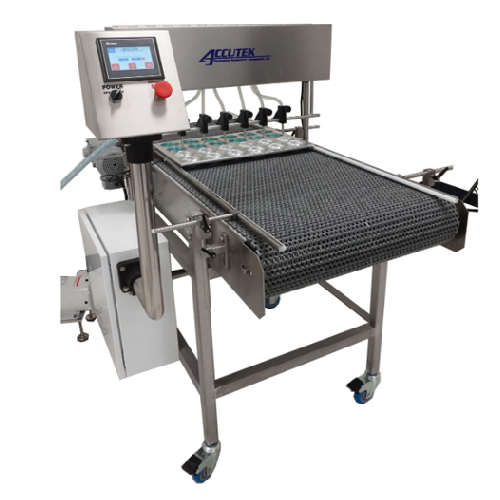
Servo bakery tray depositor
Enhance production efficiency with precise dough placement, reducing manual labor and ensuring c...
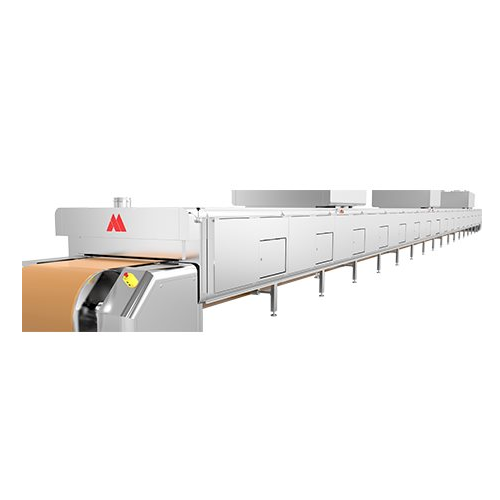
Convection oven for uniform baking
Achieve precise, energy-efficient baking with this convection oven, offering fast heatin...
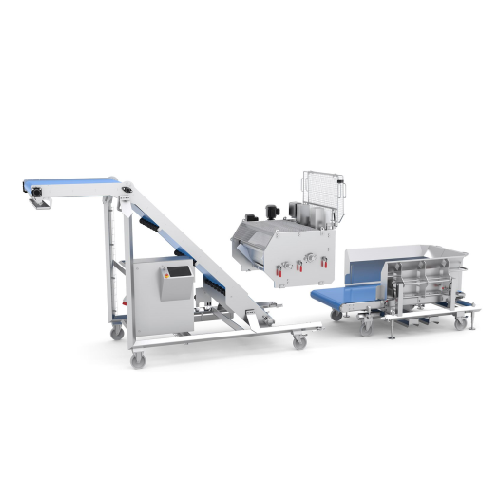
Dough feeder for flexible and gentle dough handling
Ensure precise, gentle handling and optimal integration with your pro...
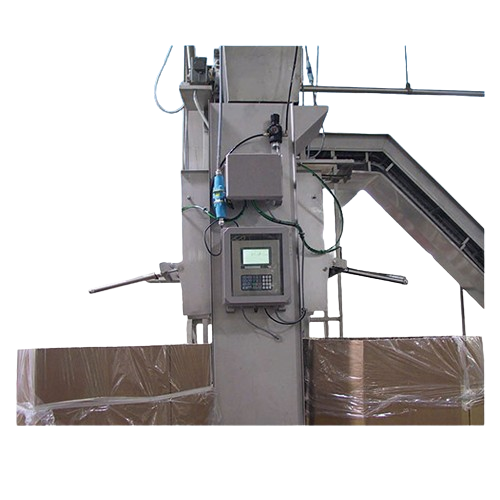
Bi-directional frame scale for industrial weighing
Achieve precise product accumulation and streamlined batch processing ...
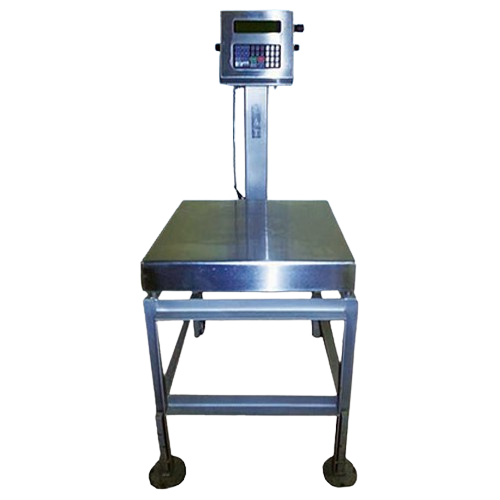
Industrial weight tracking system for injected products
Optimize your production line by accurately tracking product weig...
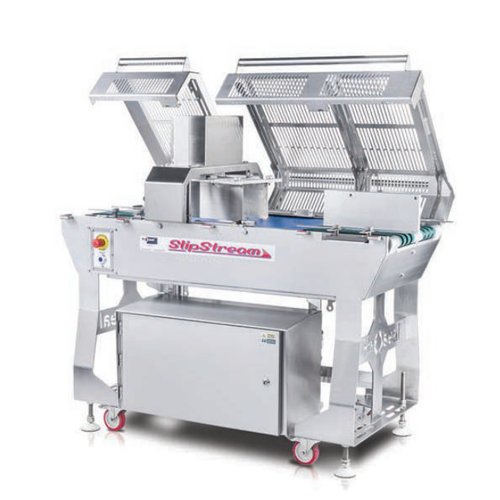
Twin lane separator for automated tray sealing
Optimize your production line with this conveyor system designed to effortl...
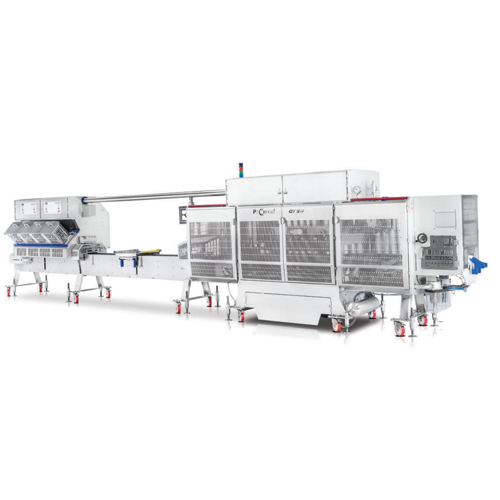
Carton sandwich wedge erecting and sealing solution
Streamline your sandwich packaging operations with precise carton wed...
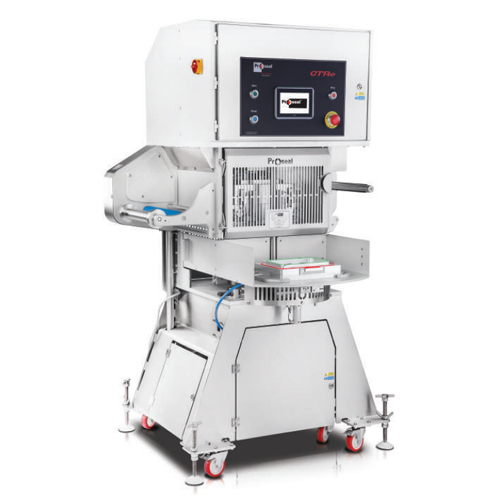
Semi-automatic tray sealing for ready meals
Achieve versatile packaging with a semi-automatic tray sealing solution design...
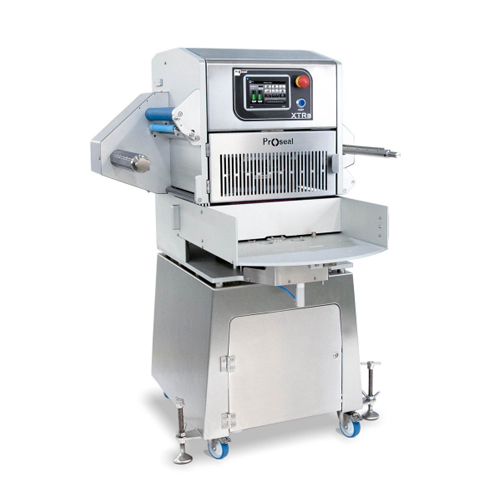
Semi-automatic tray sealer for ready meals
Achieve optimal freshness with consistent sealing, maximizing shelf life for va...
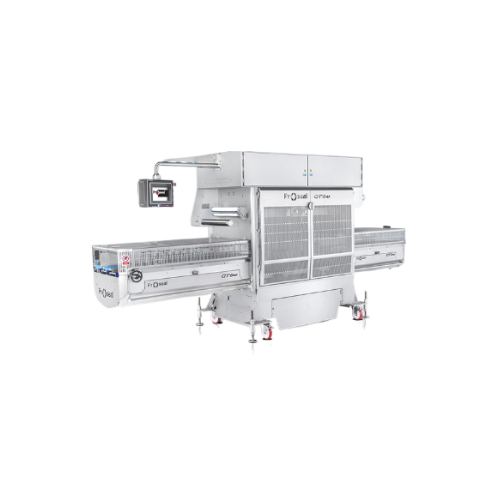
Automatic tray sealer for high-speed food packaging
Optimize your production line with a high-capacity tray sealing solut...
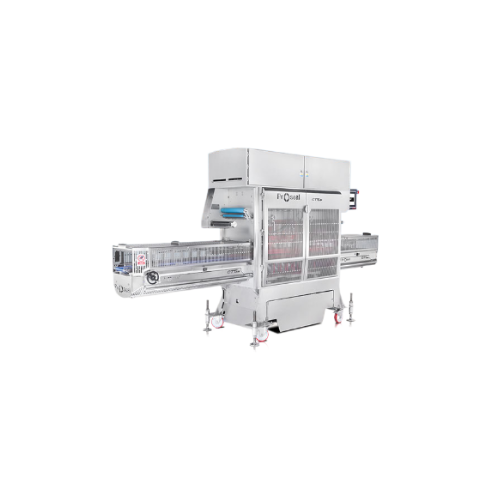
High-speed tray sealer for food packaging
Streamline your packaging process with high-speed tray sealing, reducing labor c...
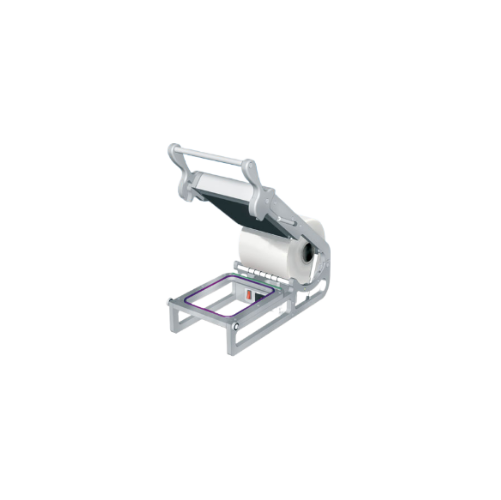
Hand operated tray sealer for small-scale food production
Optimize your packaging process with this compact tray sealing...
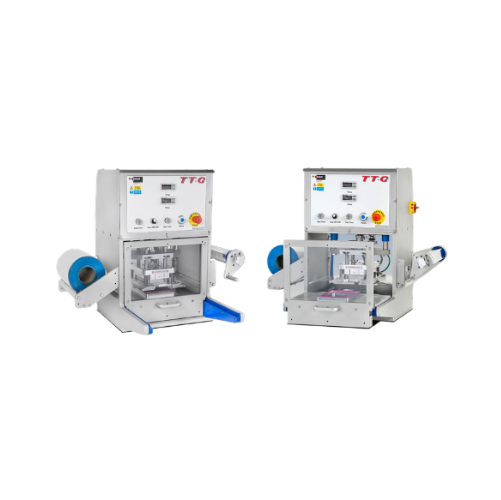
Bench mounted tray sealer with gas flush
Optimize your production line with a compact tray-sealing machine designed for pre...
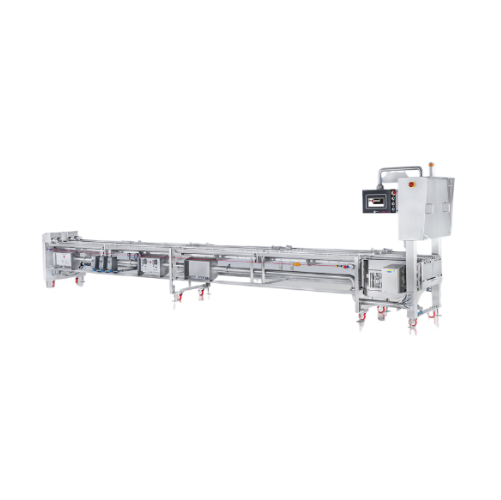
High throughput tray conveyor system
Looking to streamline your tray sealing process? This modular conveyor system integrat...
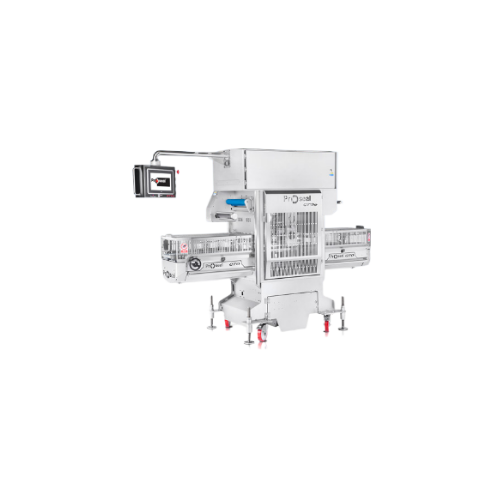
High-speed tray sealer for food
Enhance your packaging line’s efficiency with a high-speed, in-line tray sealer design...
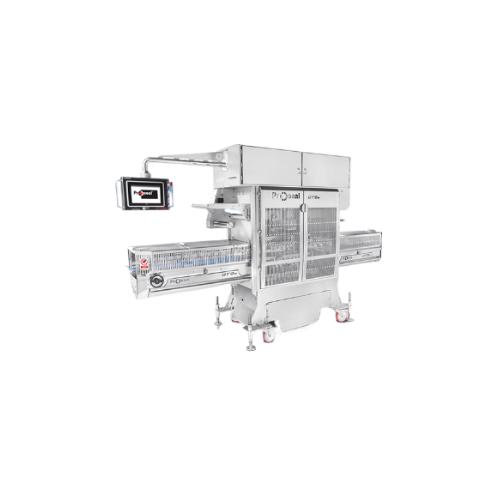
Industrial high speed tray sealer
Enhance your production line efficiency with precision sealing capabilities, accommodatin...
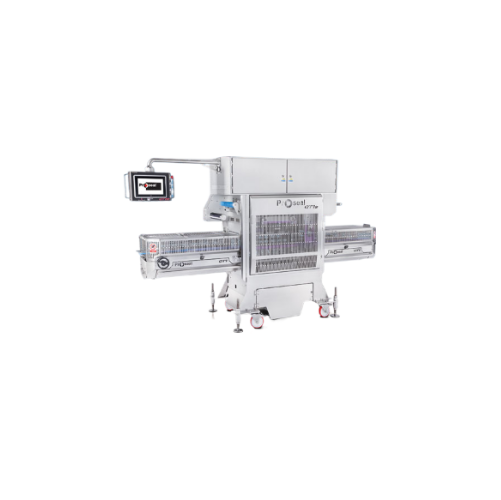
Automatic tray sealer
Maximize throughput and shelf life with our high-speed inline tray sealing solution, ideal for diverse ...
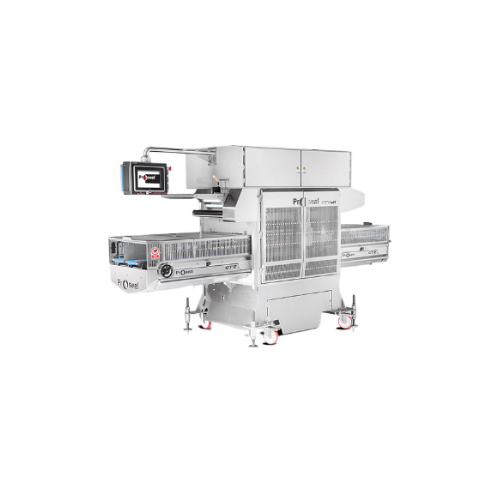
High-capacity tray sealer for vacuum gas packaging
Enhance your production efficiency with a versatile twin-lane tray sea...
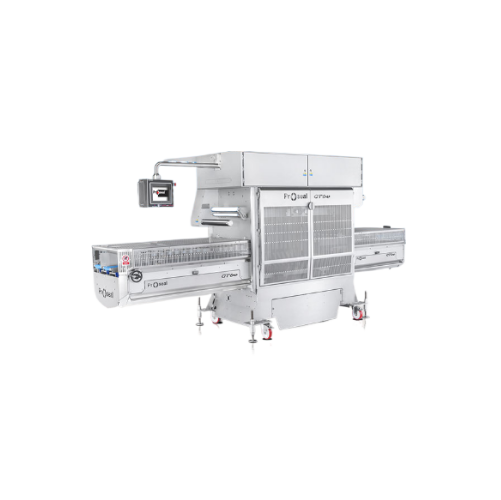
Large-capacity automatic tray sealer
Optimize your production line with this tray sealer, designed for high-speed sealing a...
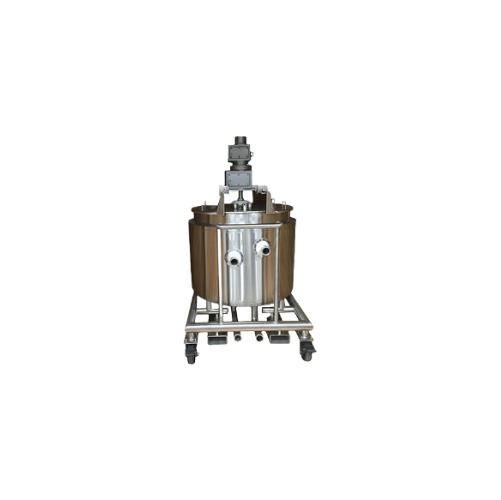
R&d vessels for research and development centers
Optimize your R&D operations with versatile vessels designed to hand...
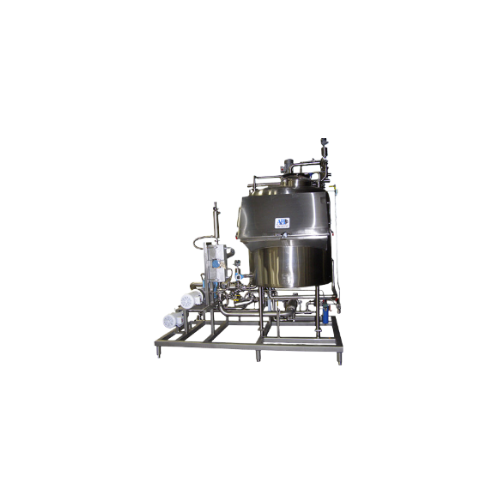
Industrial melt tanks for butter and chocolate
Reduce manual labor and elevate safety in your production line with a melt ...
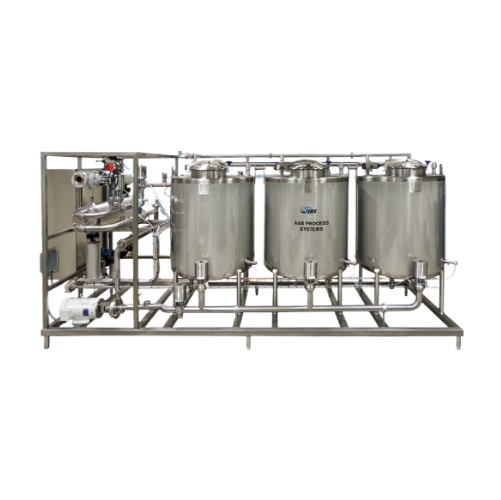
Clean-in-place system for diverse processing needs
Ensure the precision and consistency of your cleaning cycles with a ro...
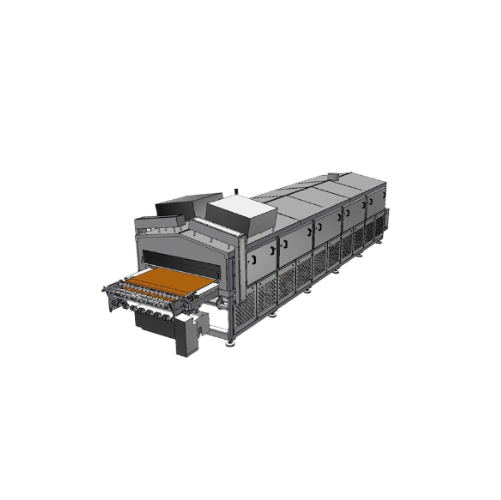
Continuous contact cooker for bottom crust treatment
Enhance dough product integrity with precise bottom heating, ensurin...
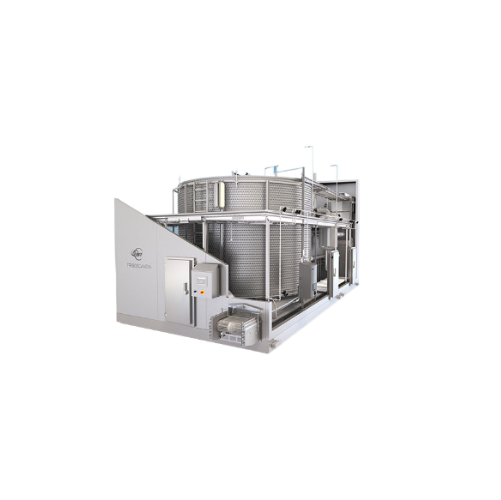
Spiral freezer for frozen food production
Optimize your product’s shelf life and quality with advanced freezing tech...
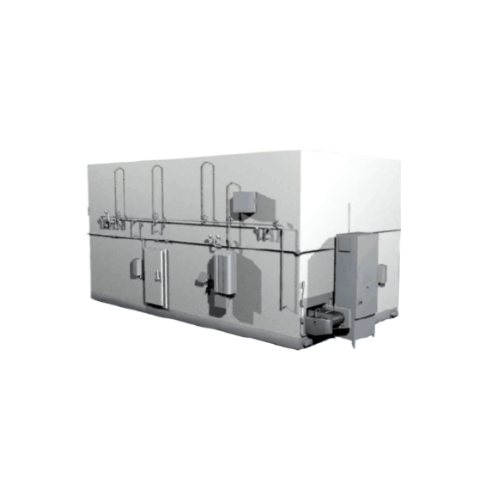
Industrial spiral freezer for high-volume food processing
Optimize your production line with a modular spiral freezer th...
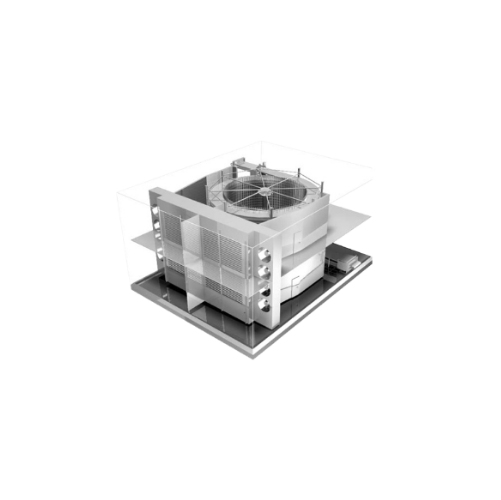
Industrial spiral freezer for high-volume processing
Optimize your high-volume food production with a robust spiral freez...
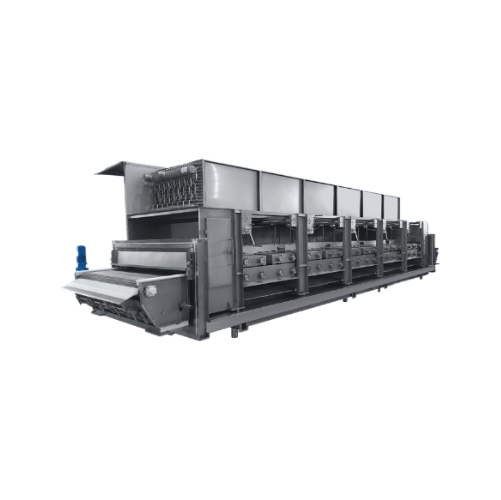
Impingement freezer for thin product freezing
Optimize your freezing process with advanced airflow, ensuring quick and uni...
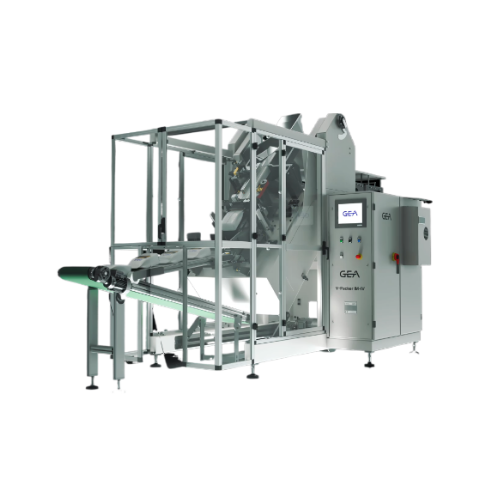
Vertical packaging system for fragile food products
Handle delicate food items like pasta nests and bakery products with ...
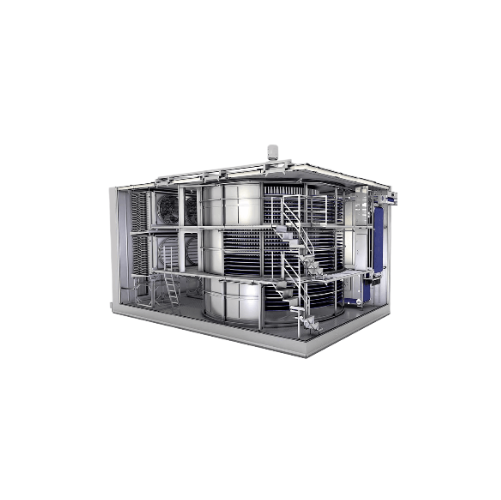
Customized spiral freezer solution for food industry
Designed to enhance your freezing efficiency, our spiral solution ha...
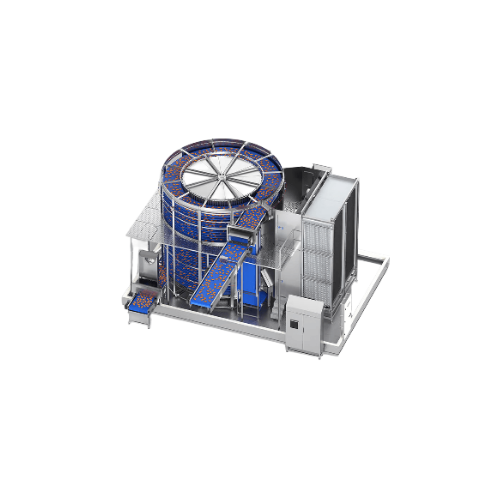
Frozen food products control system
Ensure optimal freezing precision with a system that continuously monitors product crys...
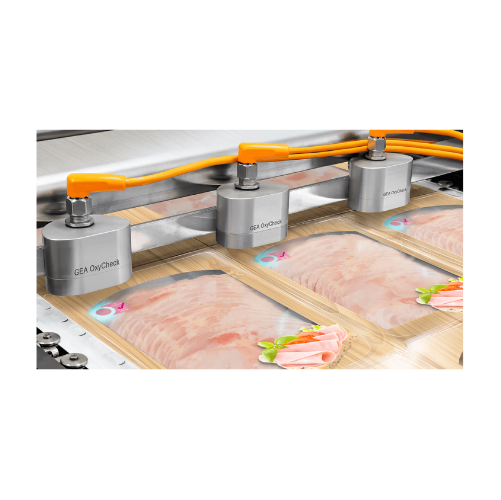
Oxygen and leakage detection in Map packaging
Ensure enhanced food safety and reduce waste with precise oxygen and leak de...
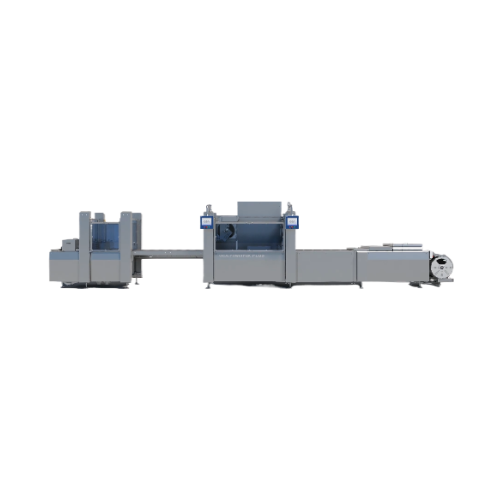
Thermoforming packaging for meat and dairy products
Streamline your packaging process with advanced thermoforming technol...
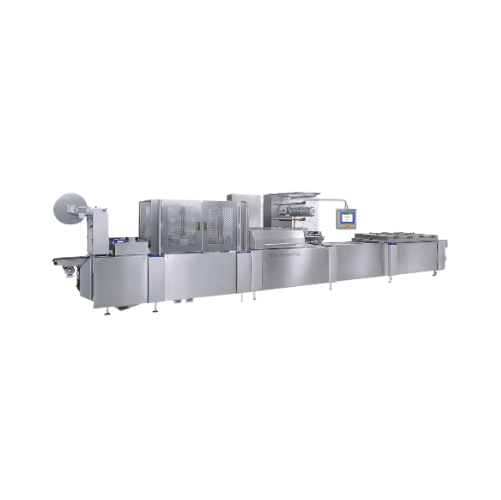
Thermoforming packaging system for meat products
Enhance your packaging capabilities with a modular thermoforming system d...
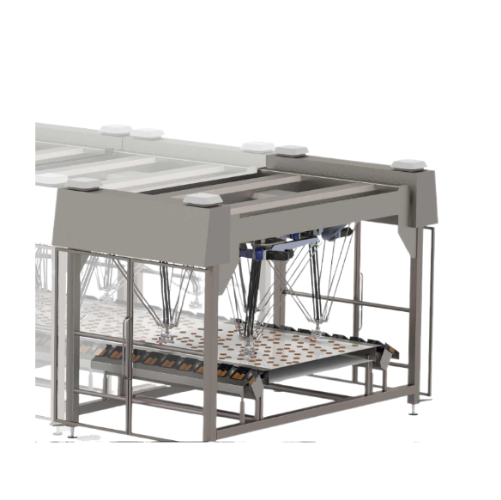
Robotic pick and place system for bakery products
Enhance your bakery production line with advanced robotic systems that ...
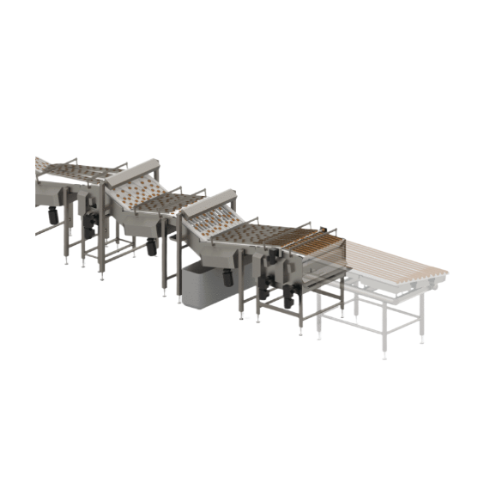
Product manipulation and stacking systems
Efficiently transition products from flat to stacked on a conveyor while minimiz...
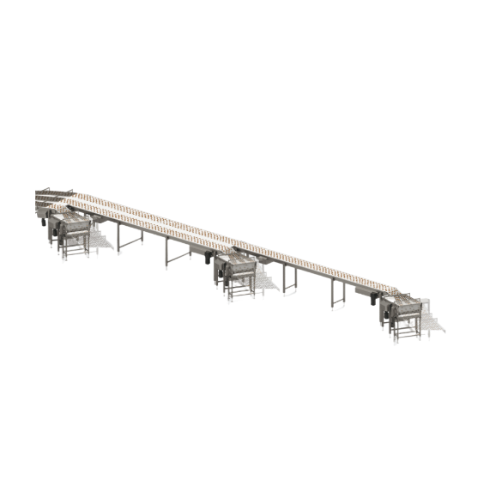
Laned product distribution for high-capacity wrappers
Efficiently distribute high-capacity product flow across multiple w...
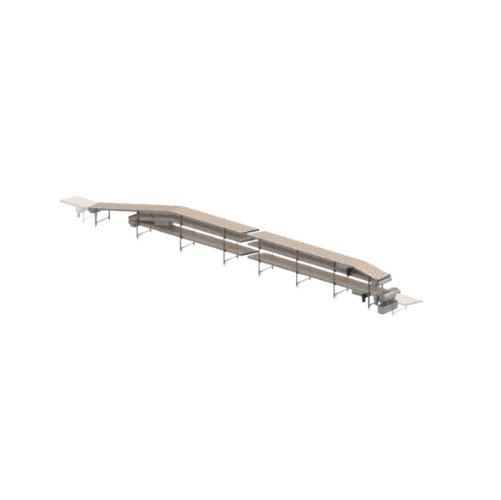
Conveyor system for ambient product cooling
Ensure precise cooling of baked and confectionery products while maintaining l...
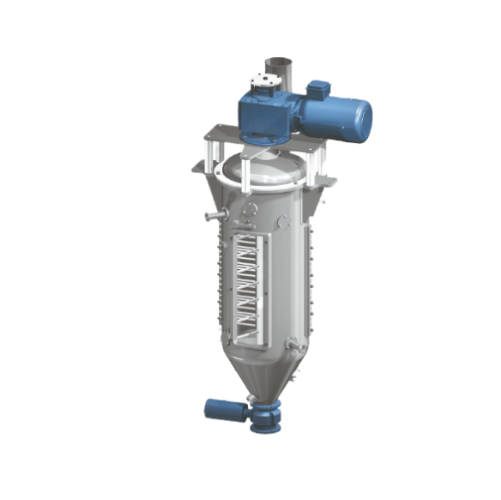
Shear stream mixer for dough and batter preparation
Efficiently mix and homogenize dry ingredients with liquids, preservi...
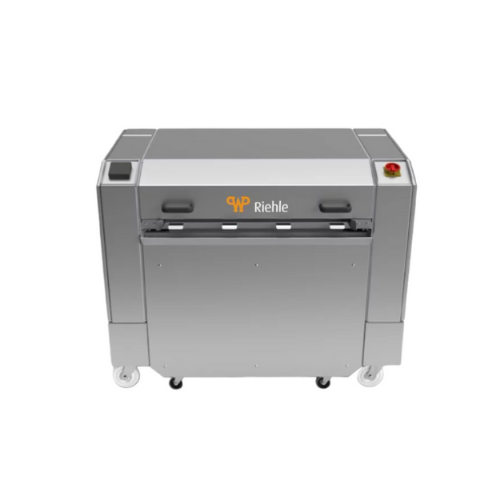
Sheet cleaning system for baking sheets
Effortlessly maintain baking sheet hygiene with precise cleaning and oiling, all in...
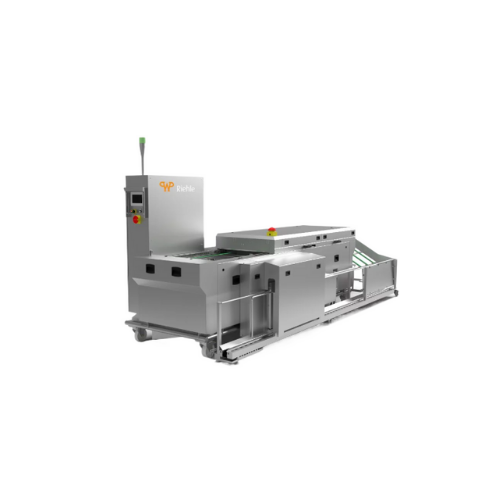
Industrial baking sheet cleaning system
Enhance hygiene and streamline operations with a system designed to clean, dry, and...

Robotic tray handling for baking production lines
Enhance production efficiency by seamlessly integrating advanced roboti...
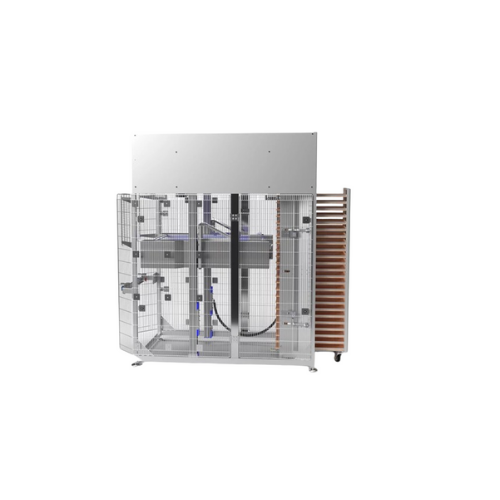
Automated dough loading system for bakeries
Streamline your bakery operations with an automated system that efficiently lo...
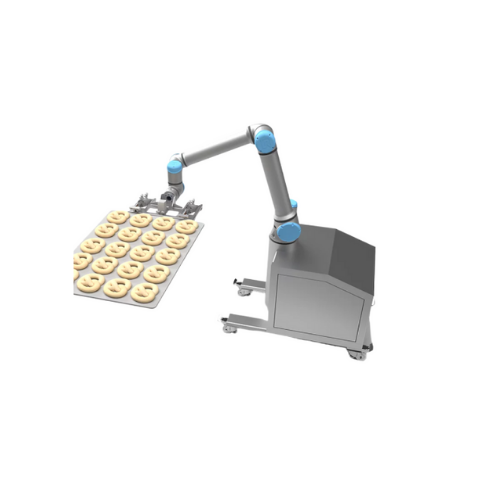
Robotic gripper arm for bakery tray and product handling
Optimize your bakery’s efficiency by automating repetitive...
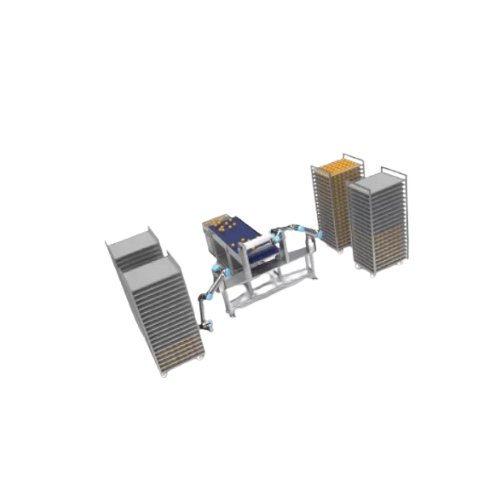
Custom deep frying system for unique product requirements
For bakeries tackling specialized frying needs, this customiza...
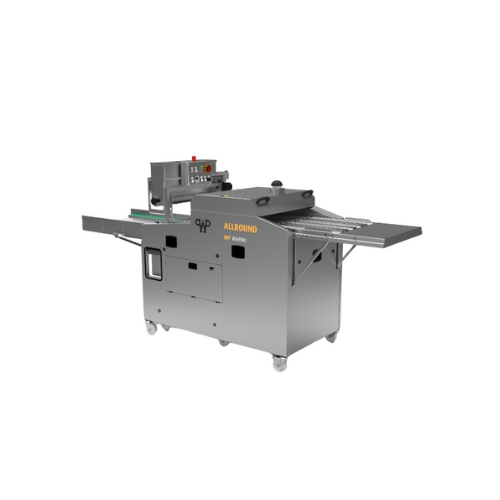
Industrial lye coating line for bakery products
Streamline your bakery operations with high-speed lye coating technology t...
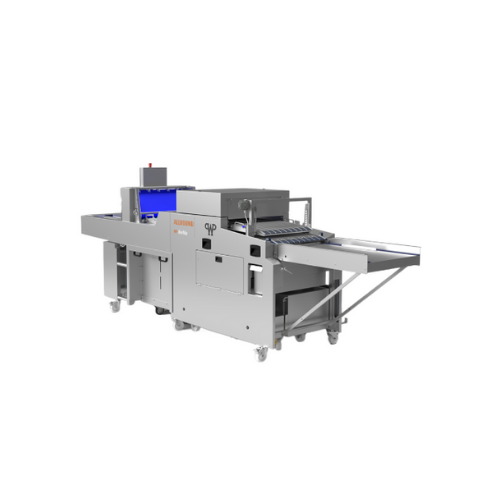
Industrial lye dosing system with peelboard
Ensure consistent, high-quality lye coating for baked goods with a rapid, modu...
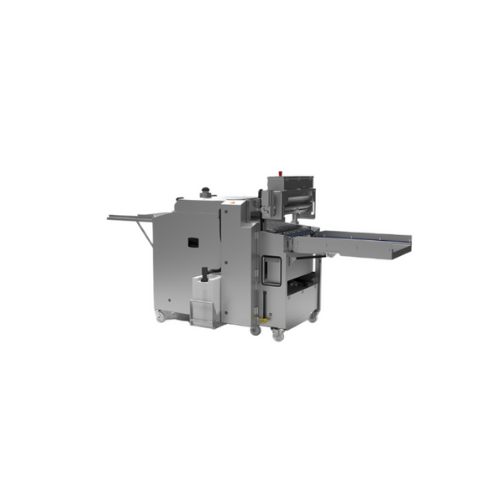
Automatic lye dosing system for pretzel production
Enhance your bakery’s efficiency with a lye dosing system that e...
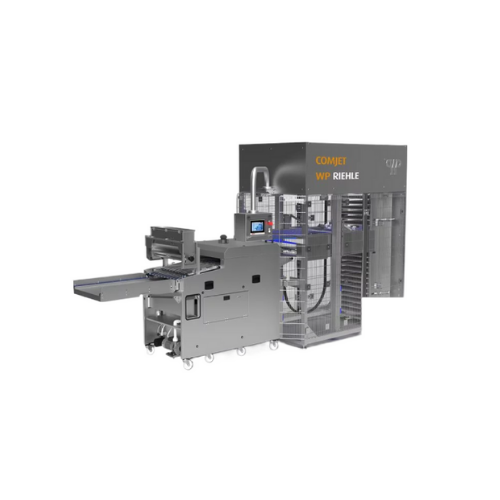
Automated pretzel lye application system
Enhance your bakery’s output with high-efficiency lye application, achieving...
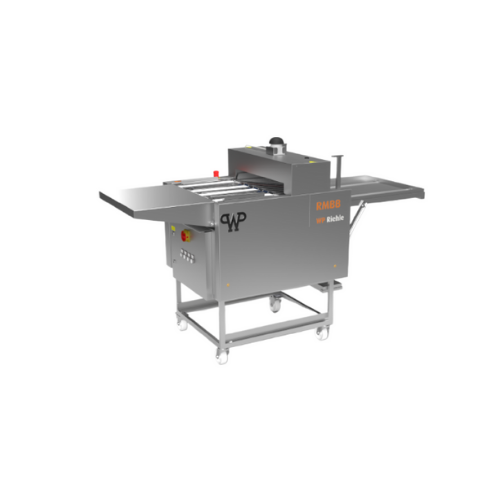
Lye application system for bakeries
Effortlessly achieve uniform lye coating and consistent salting with a compact solution...
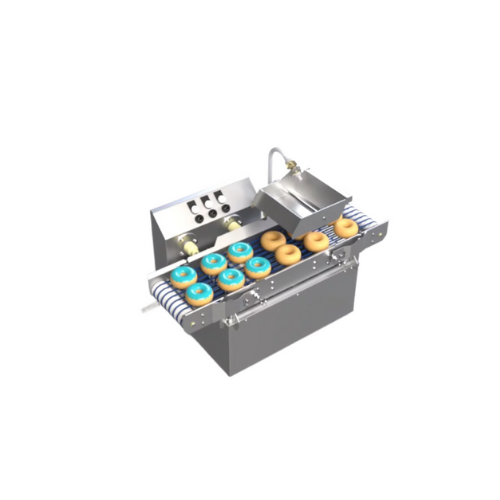
Infrared oven for fast thawing and glazing
Streamline your donut production by seamlessly integrating rapid thawing and gl...
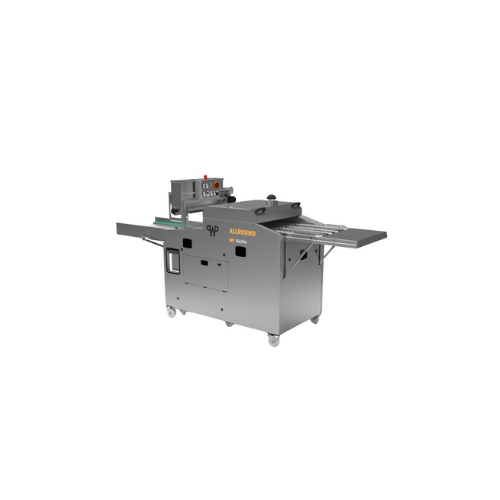
Lye application system for pretzel production
Achieve precise lye application for pretzel pastries with high-speed capabil...
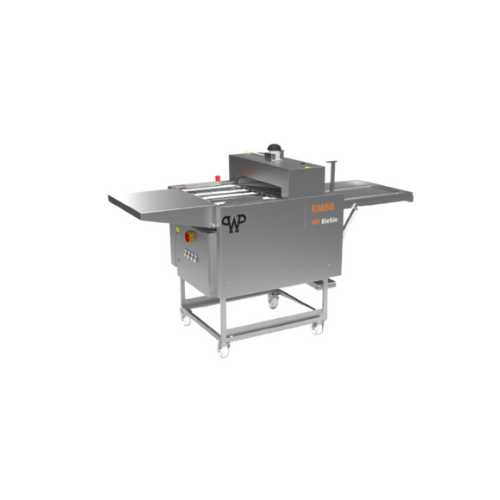
High-efficiency pretzel lye application system
Achieve precise and uniform lye application for pretzel pastries with enhan...
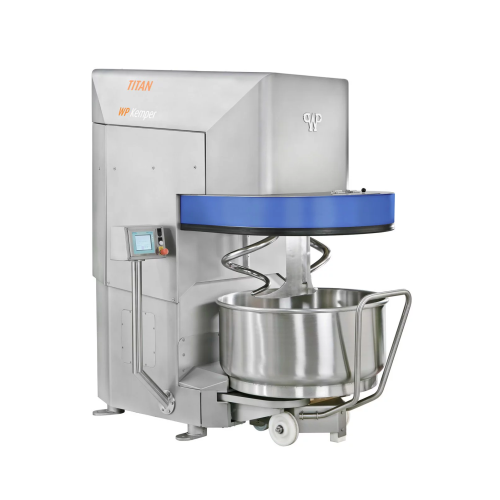
High performance spiral mixer for dough preparation
Achieve consistent dough quality with ease by integrating a high-perf...
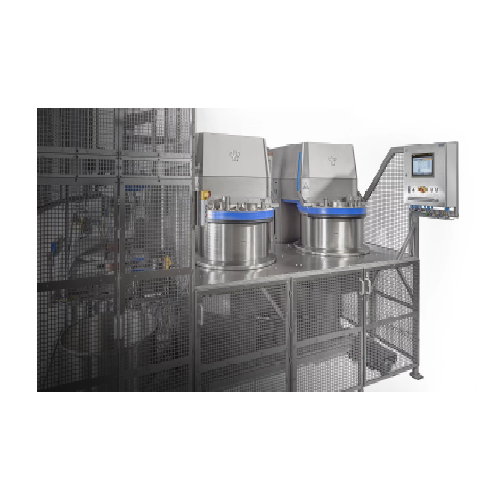
Automatic dough mixing system for high-quality doughs
Transform your dough production with a system designed for rapid, c...
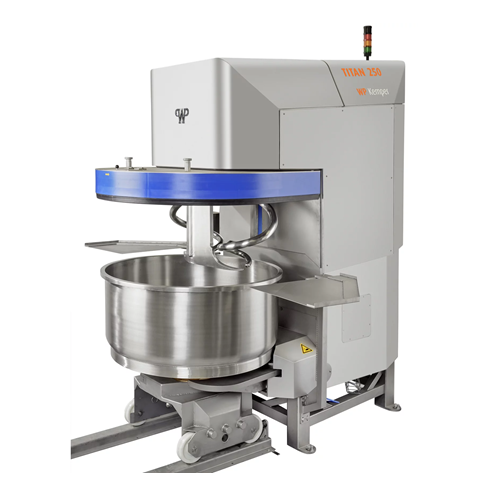
Linear mixing system for high-capacity dough production
Achieve perfect dough consistency with precise mixing, rapid cycl...
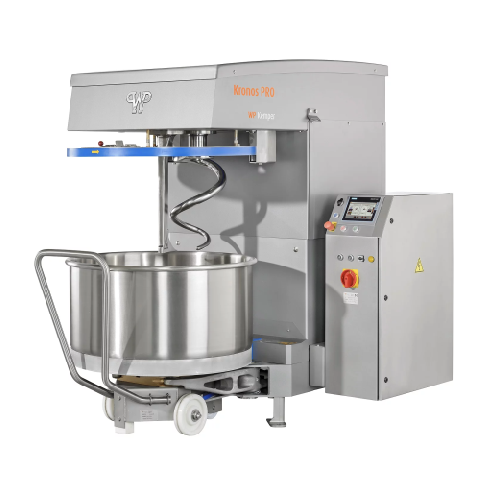
Industrial spiral mixer for dough production
Achieve precise control in dough consistency and quality with this spiral mix...
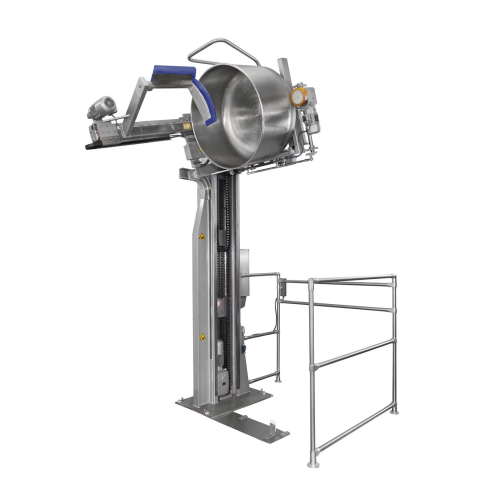
Industrial bowl tipper for dough handling
Streamline your dough processing with a reliable solution that ensures safe, uni...
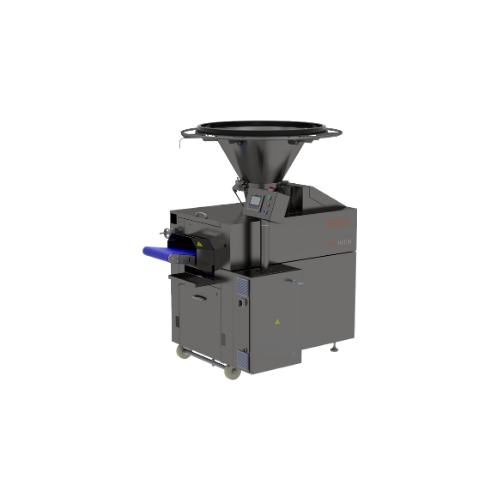
Dough divider for various dough types
Achieve precise portioning in your dough production with a solution designed to handl...
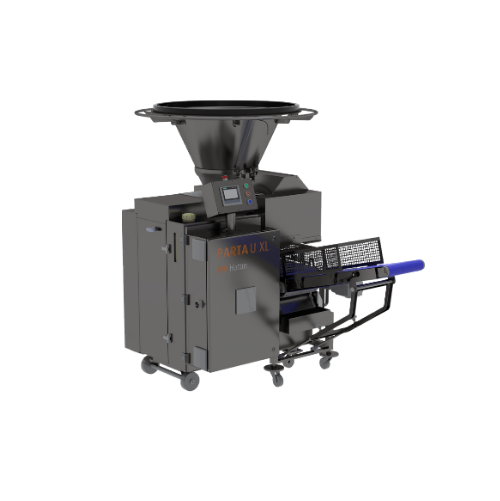
Three-pocket dough divider for high-output bakery production
Achieve precise dough division effortlessly with this robus...
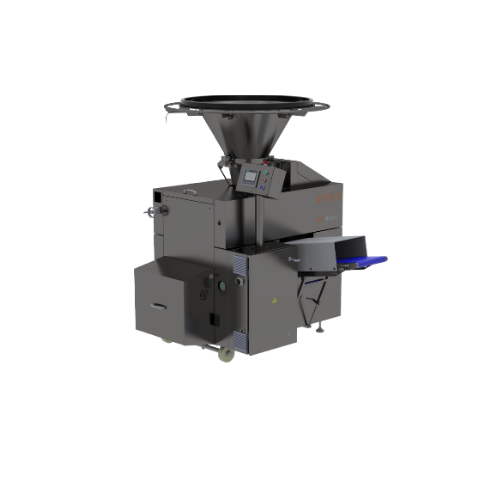
Weight accurate dough divider for various dough types
Achieve high-speed, precise dough portioning with adjustable pressu...
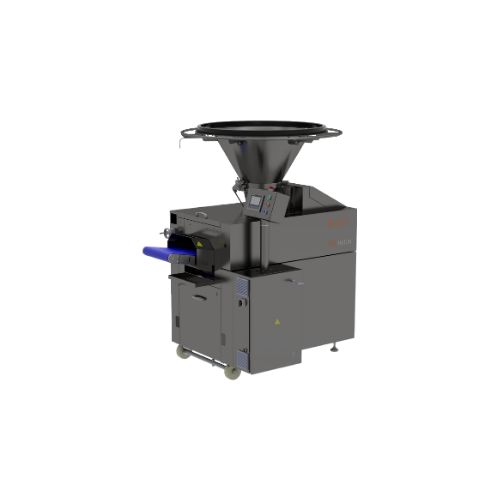
Dough divider for varied dough types
Achieve precise and consistent dough portioning with a single pocket divider designed ...
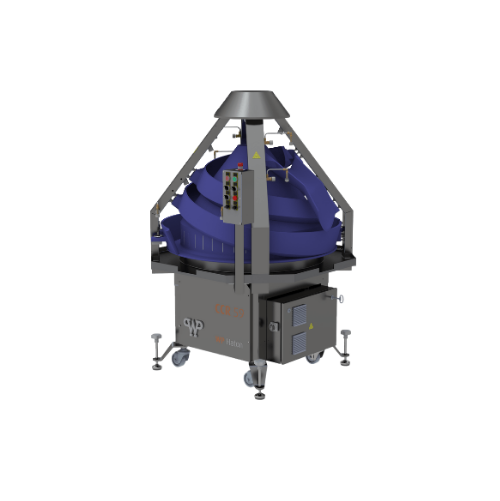
Conical dough rounder for multiple dough types
Achieve consistent rounding for a variety of dough types with our equipment...
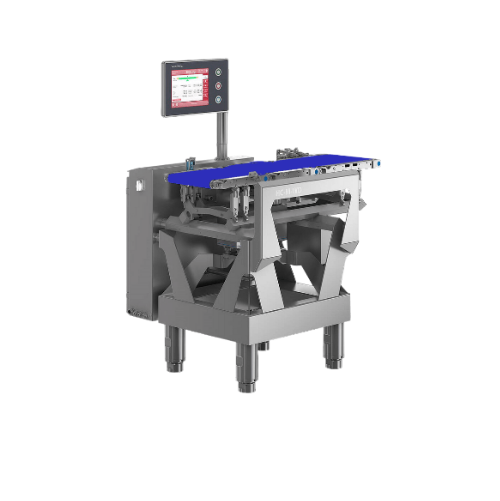
High-precision checkweigher for dough processing
Ensure consistent dough quality and reduce waste with precise weight corr...
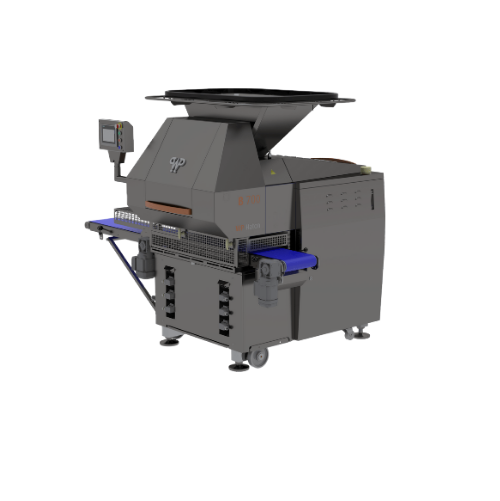
Industrial dough divider for high-capacity production
Optimize your bakery’s throughput with a versatile dough divi...
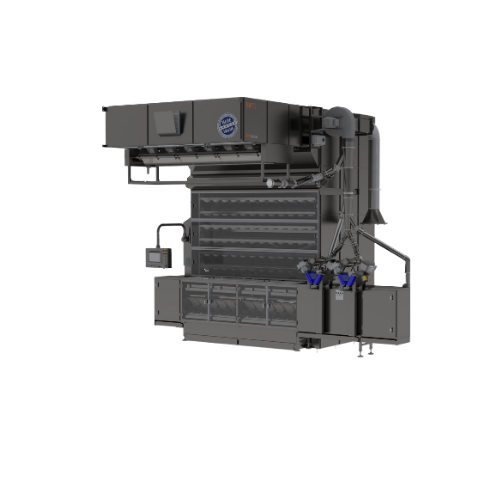
Industrial dough proofer for high-capacity baking lines
Optimize your baking process with high-speed proofing, ensuring d...
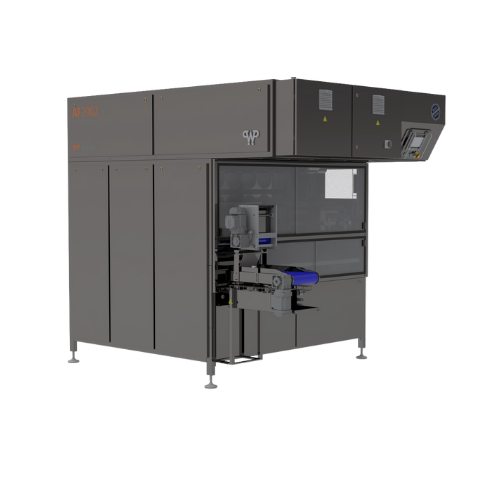
Intermediate dough proofer for soft and pre-fermented dough
Optimize your proofing process with a solution that gently h...
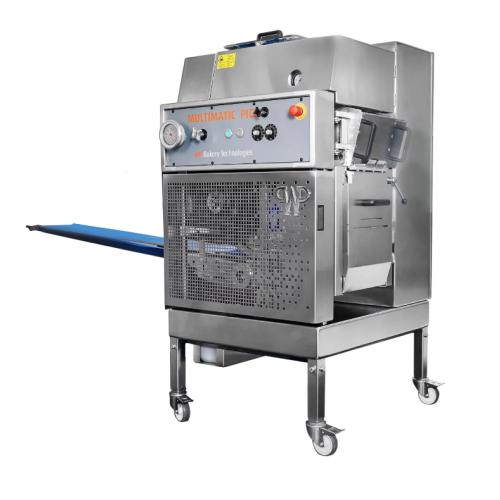
Dough divider and round moulder for artisan bakeries
Experience seamless dough management with equipment designed for pre...
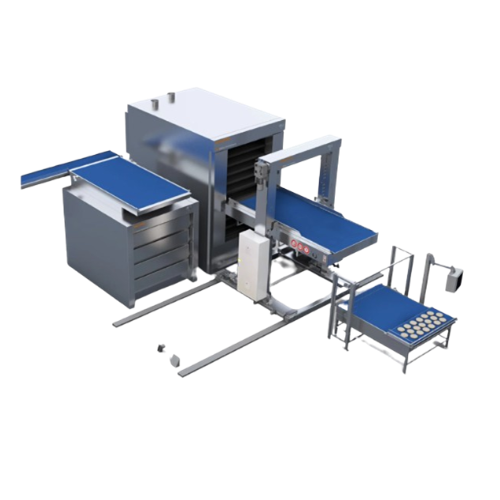
Industrial vacuum cooling system for bakeries
Achieve rapid cooling of oven-hot baked goods with minimal moisture loss, en...
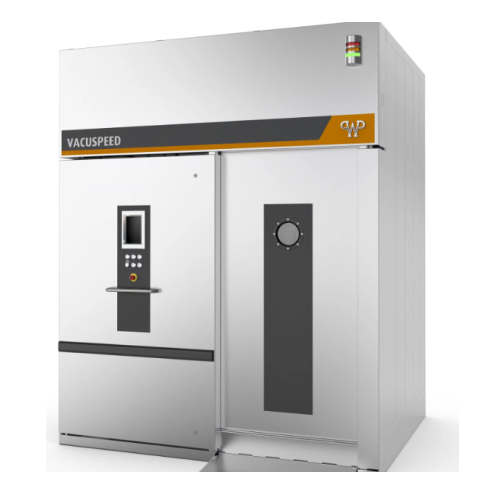
Vacuum cooler for artisan baked goods
Rapidly cool artisanal baked goods with precision to maintain their freshness and vol...
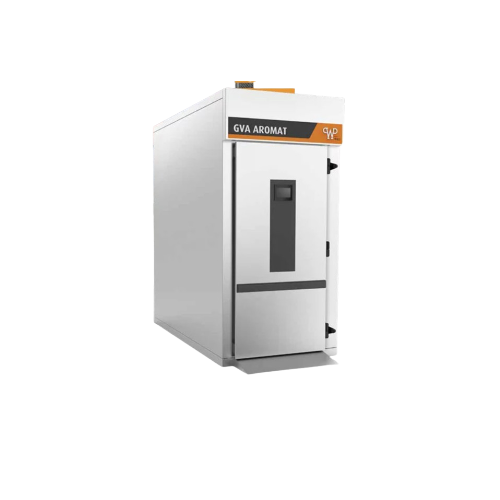
Bakery refrigeration systems for controlled dough tempering
Achieve consistent bakery quality by precisely controlling y...
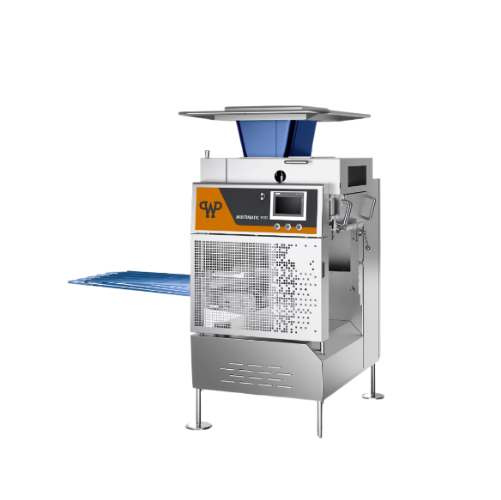
Dough divider and moulder for artisan bakeries
Achieve precise and gentle dough handling, ensuring exceptional product qua...
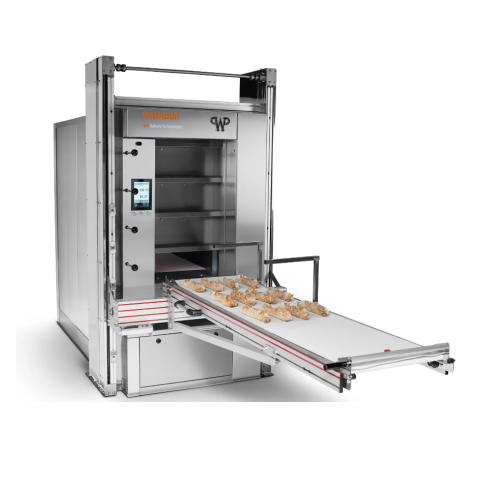
Manual loading system for deck ovens
Streamline your bakery’s workflow by simplifying the manual loading and unloading proc...
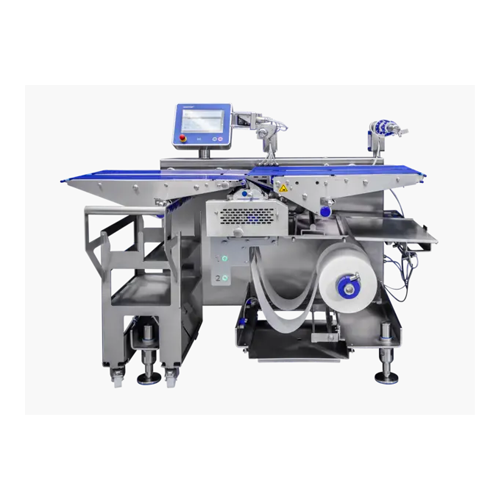
Automatic underlay system for food products
Efficiently placing paper or film underlays beneath food slices optimizes port...
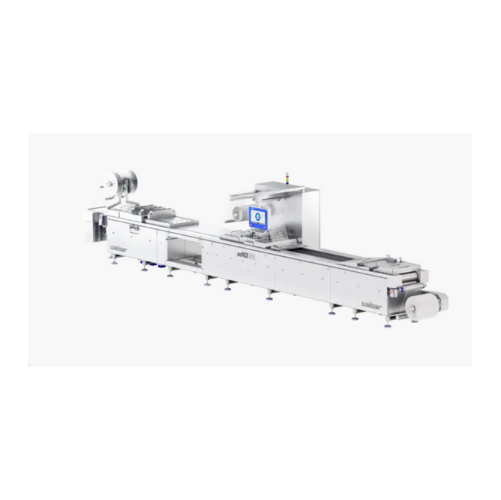
Thermoforming packaging solution for medium production volumes
Optimize your medium-volume packing with a compact thermo...
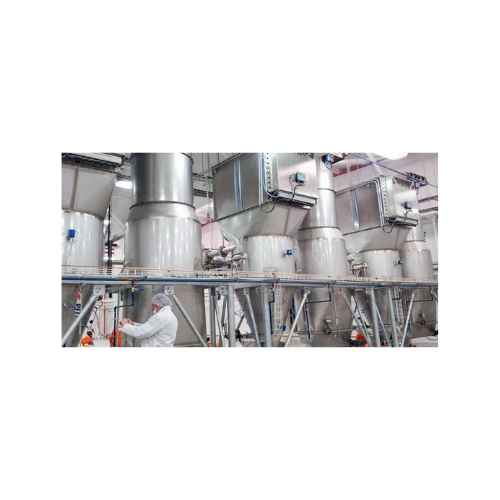
Atex-certified flanged polygonal dust collectors
Ensure dust control and compliance in explosive environments with our com...
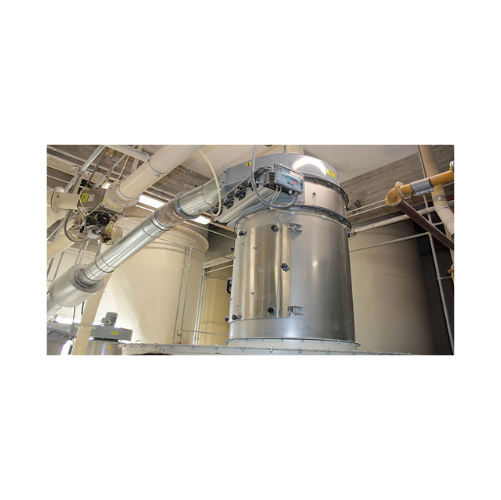
Food-grade round dust collectors
Maintain a clean production environment with this food-grade dust collector, designed to ma...
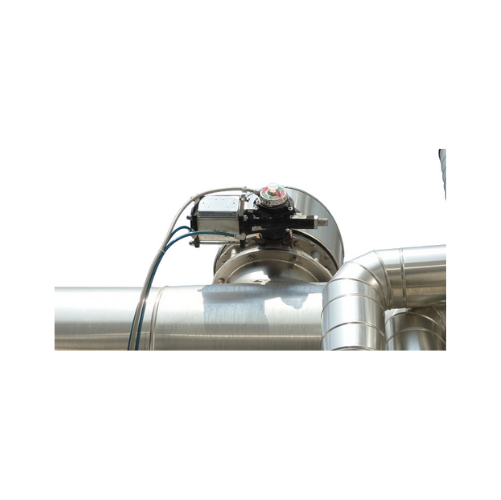
Fit-frame butterfly valves for dry bulk solids
Achieve precise control and minimize contamination in your dry bulk materia...
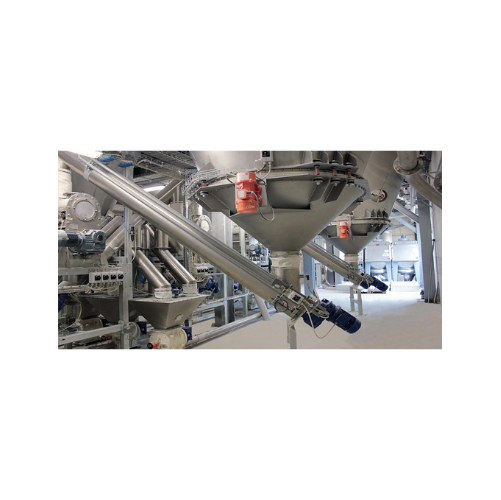
Food-grade tubular screw conveyors
Ensure complete hygiene in your production line with these stainless steel tubular screw...
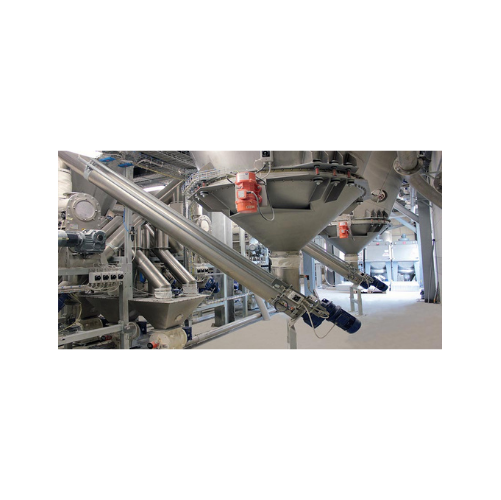
Food-grade stainless steel tubular screw conveyors
Ensure contamination-free material handling with our tubular screw con...
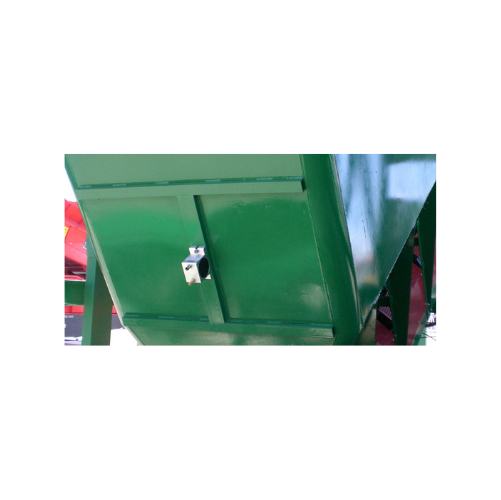
Industrial vibrator for high-frequency vibration
Achieve efficient material flow and compaction across various production ...
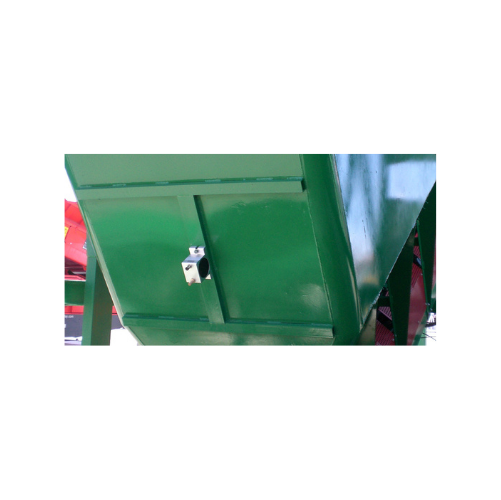
Rotary turbine vibrators for bulk solids discharging
Enhance the efficiency of material handling with high-speed, low-noi...
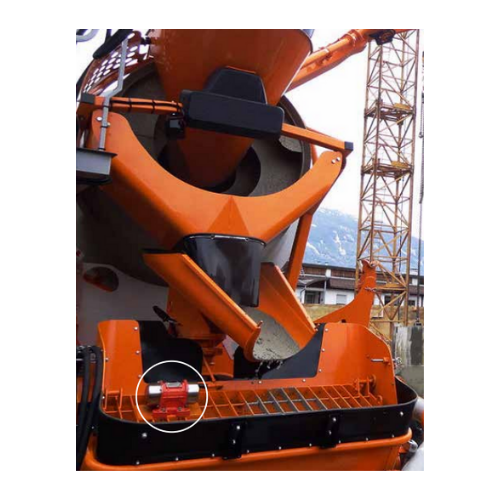
Continuous impact vibrator for aggregate reclaiming
Tackle material flow challenges head-on by preventing common issues l...
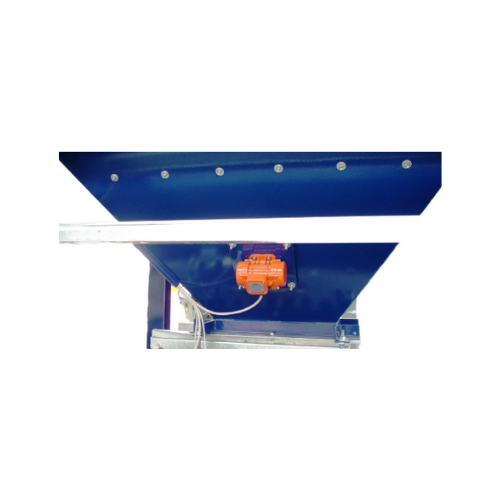
External electric motovibrators for industrial material flow
Experience enhanced material flow and precise material disc...
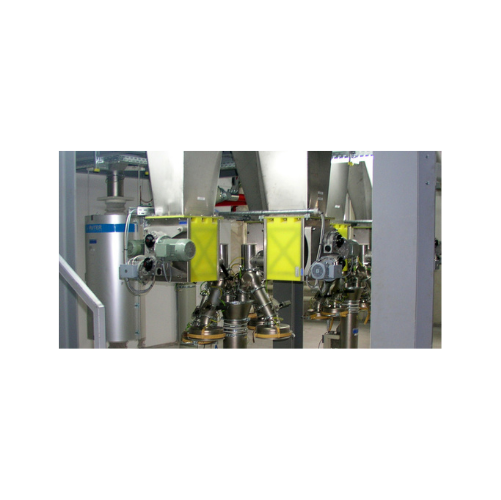
Micro-batch feeders for powder and granular material
Struggling with clog-prone powders? Gain precise control and consist...
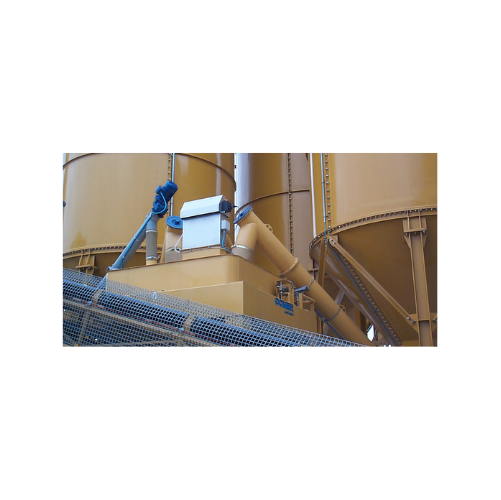
Hopper venting filter for efficient dust filtration
Achieve superior dust control and efficient material handling with a ...
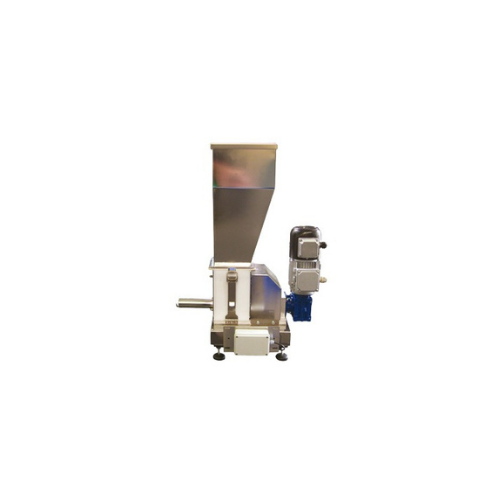
Loss-in-weight screw feeder for precise powder dosing
Achieve high precision in continuous dosing with this advanced scre...
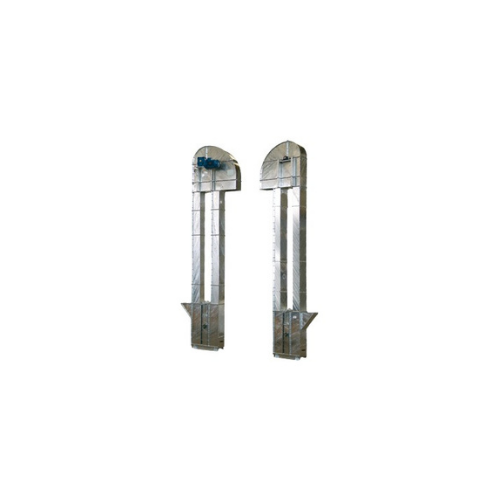
High capacity vertical conveying for flour
For consistent, high-speed handling of delicate and powdery materials, this eng...
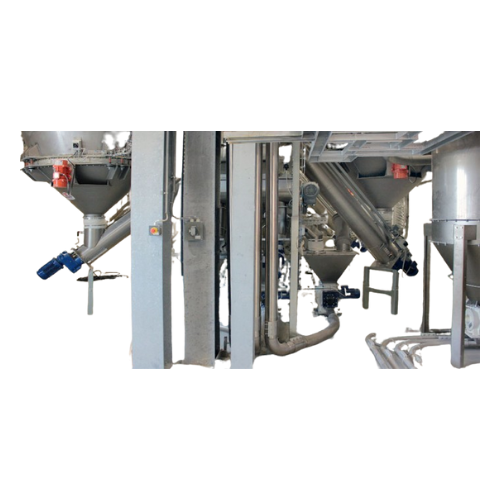
Food-grade bin activator for hygienic bulk solids discharge
Achieve consistent material flow and avoid contamination wit...
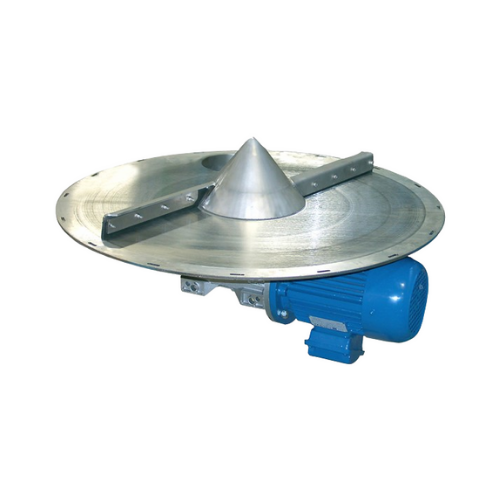
Rotary bin discharger for bulk solids
Efficiently manage bulk solids with a rotary bin discharger that minimizes residue an...
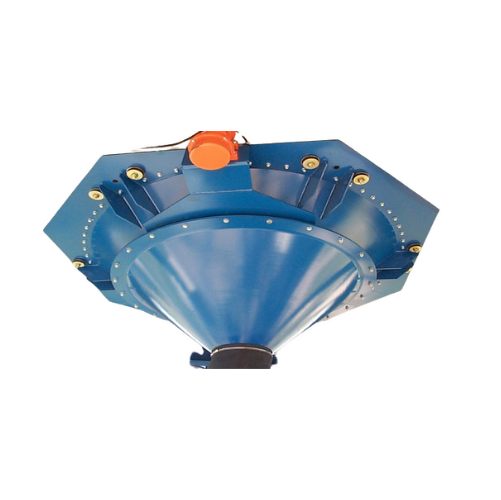
Vibratory outlet hopper for bulk solids discharge
Reduce material handling challenges with highly efficient vibration tec...
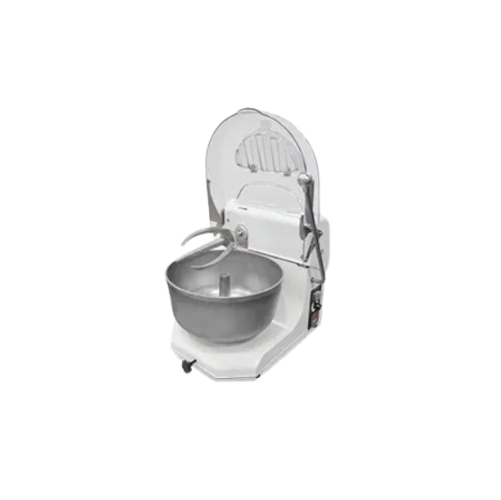
Fork mixers for bakery industry
Achieve consistent, high-quality dough mixing with fork mixers designed to enhance tradition...
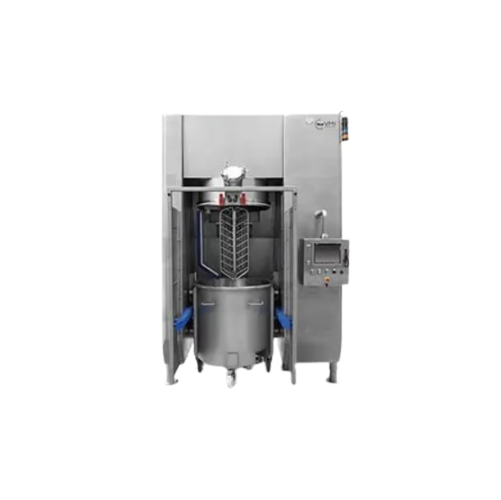
Planetary mixers for baking and food industries
Achieve precise mixing and consistency across a range of products with adv...
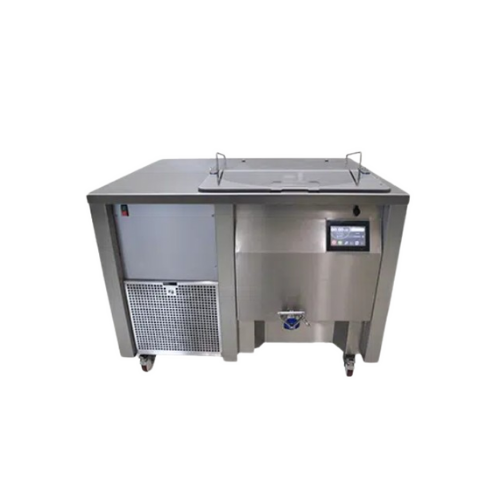
Sourdough fermenter for artisanal bakeries
Streamline sourdough production with a solution that automates key processes li...
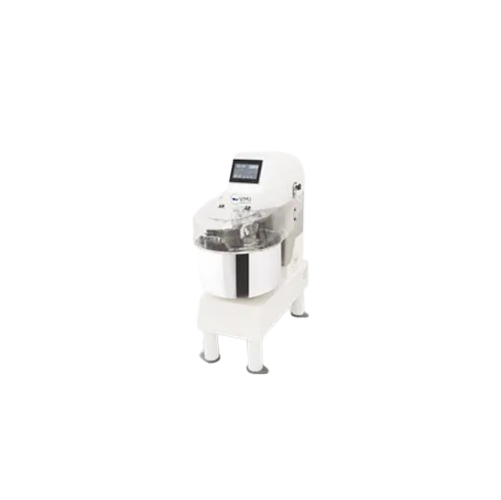
Fixed bowl vertical mixer for bakery and pastry
Optimize dough quality and consistency with a versatile vertical mixer tha...
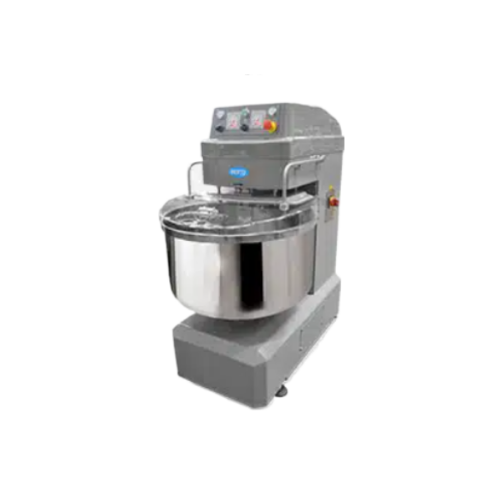
Spiral mixers for bakery dough
Transform your bakery production with precise and consistent dough mixing, ensuring every bat...
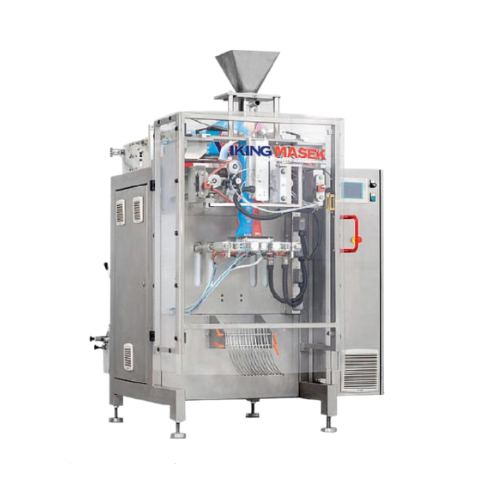
Continuous motion liquid packaging system
Achieve precise and clean liquid packaging with advanced servo-driven squeegee s...
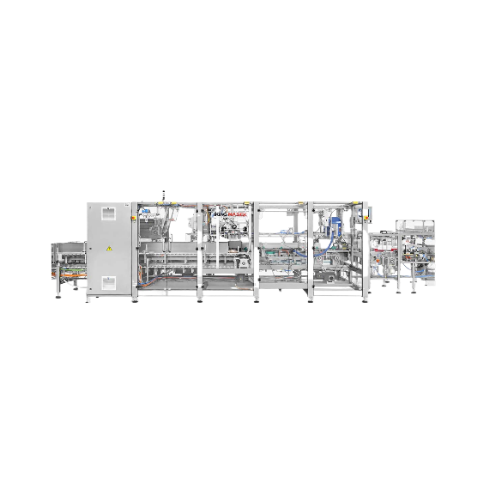
Endload automatic cartoning solution
Streamline your packaging line with this versatile cartoning solution, perfect for eff...
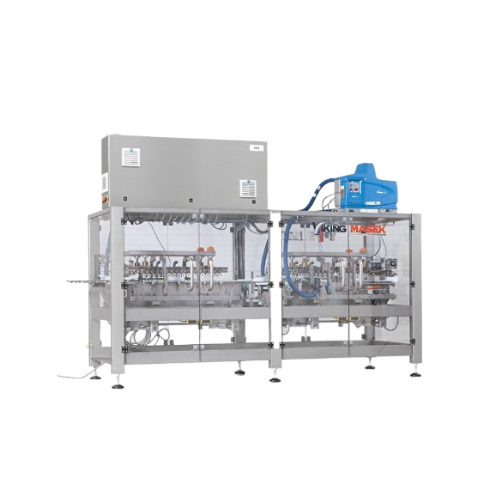
Topload cartoner for packaging cartons
Efficient flap closing for diverse carton sizes, ensuring gentle handling of sensiti...
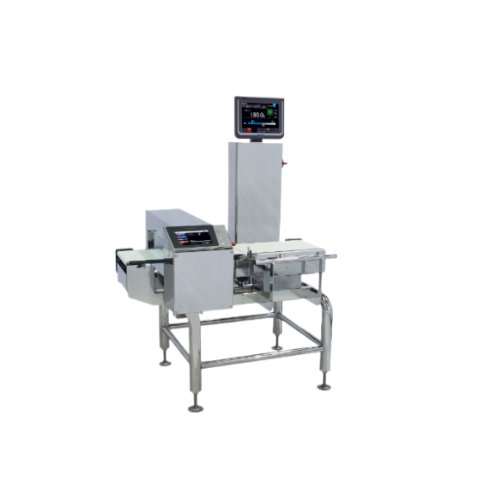
Product inspection systems for contamination control
Ensure product safety and compliance with precision inspection techn...
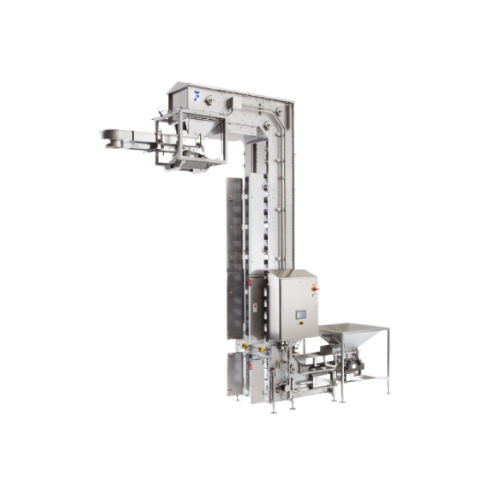
Automated infeed and outfeed systems for packaging lines
Streamline your production line by integrating reliable infeed a...
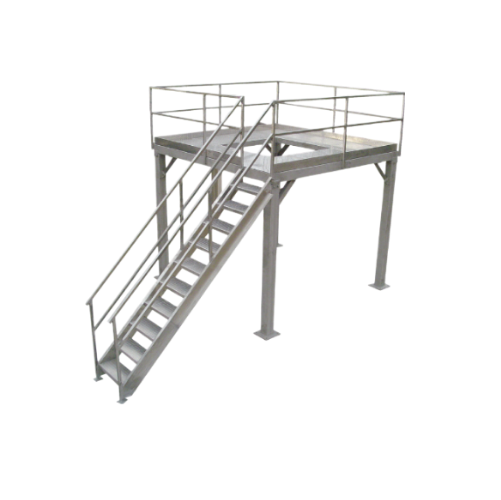
Support structures for packaging lines
Enhance safety and efficiency in your production line with robust support structures...
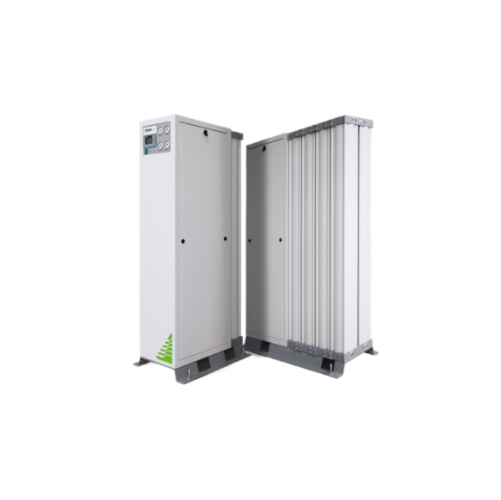
Modified atmosphere packaging solutions for perishables
Extend the freshness and shelf life of perishable goods with prec...
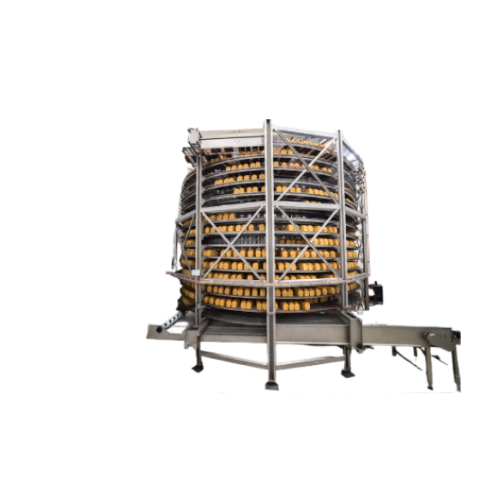
Industrial spiral cooling and freezing system
Optimize your bakery operations with adaptable cooling and freezing systems ...
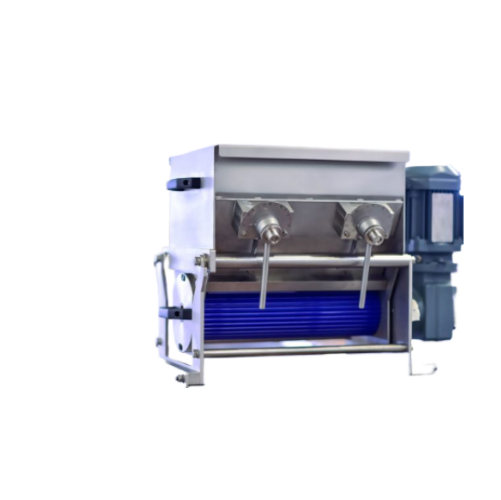
Bread and dough decorating equipment
Enhance the visual appeal and quality of your baked goods with specialized equipment d...
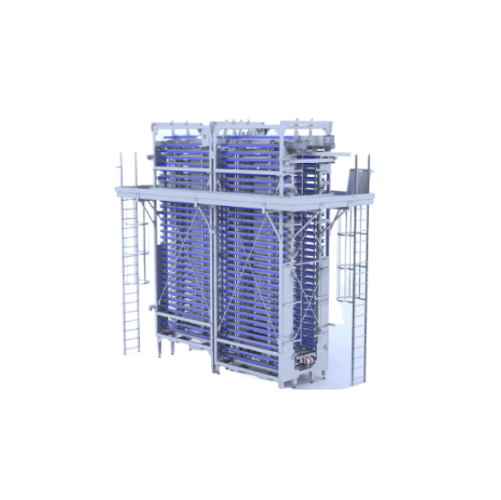
Industrial dough proofing systems
Optimize your bakery’s efficiency with customizable proofing systems designed to fi...
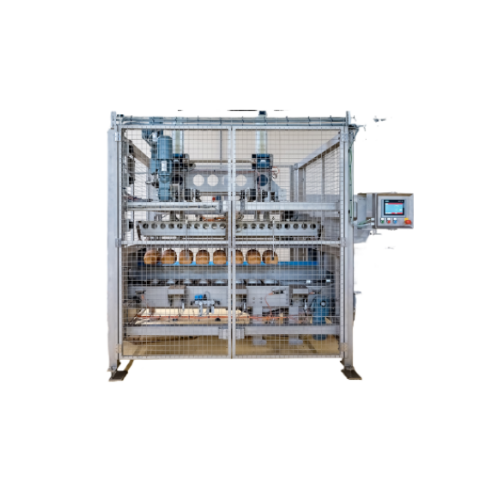
Conveyor belts for hot and cold product handling
Efficiently transport hot and cold goods with versatile conveyor solution...
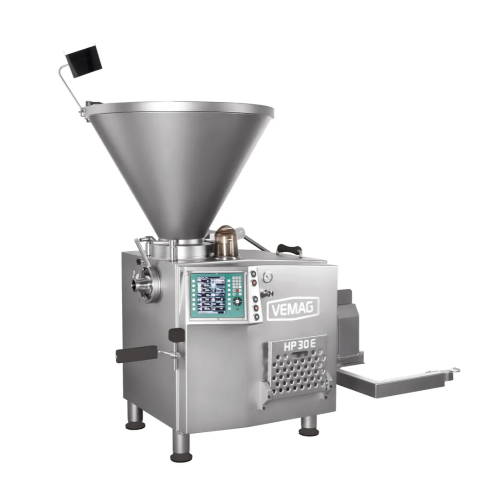
Vacuum filling machines for cooked ham & sausages
Achieve precise portioning and enhanced product quality with this advan...
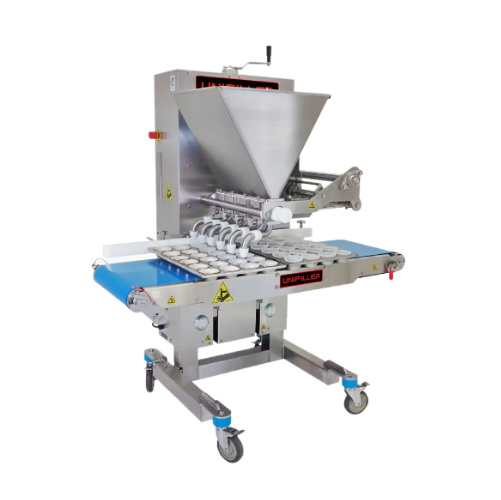
Multi piston depositors for bakery production
For bakeries seeking precision in depositing and filling, these multi piston...
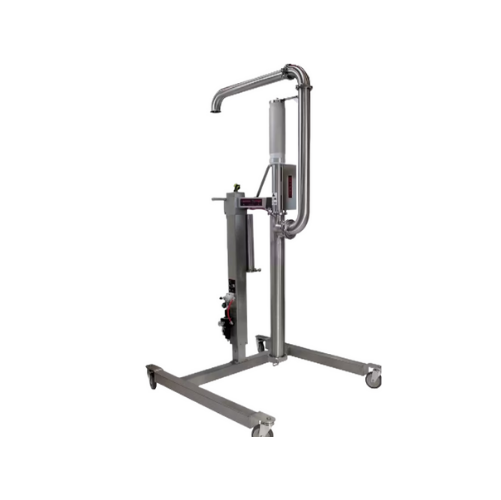
Food transfer and dosing pumps for bakeries
Enhance efficiency in food processing with pumps designed for precise transfer...
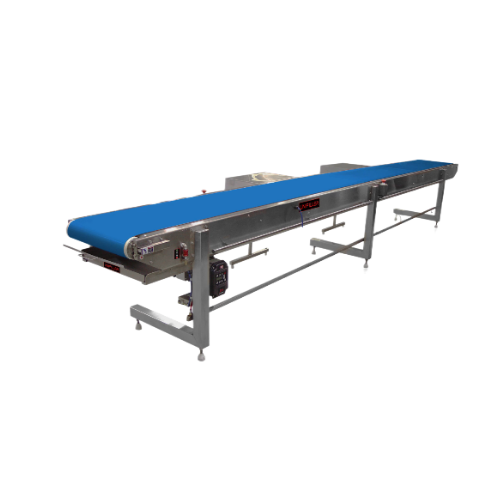
Bakery and food grade conveyors
Enhance your bakery and food production with conveyors designed to seamlessly transport and ...
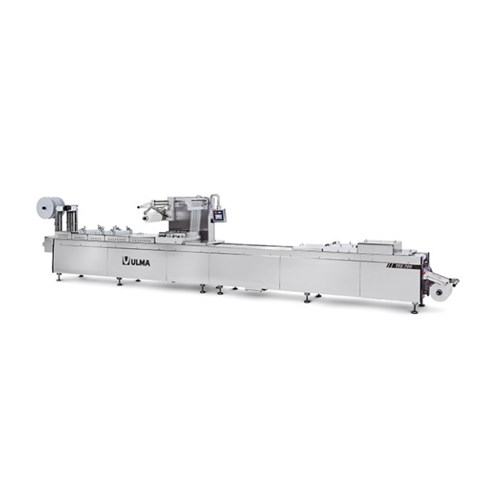
Thermoforming solution for flexible or rigid packaging
Optimize your packaging efficiency with a high-performance thermof...
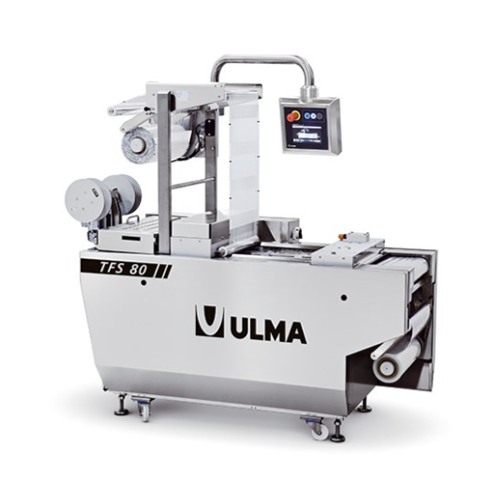
Hygienic thermoformer for flexible film packaging
Streamline your packaging process with a hygienic thermoformer, offerin...
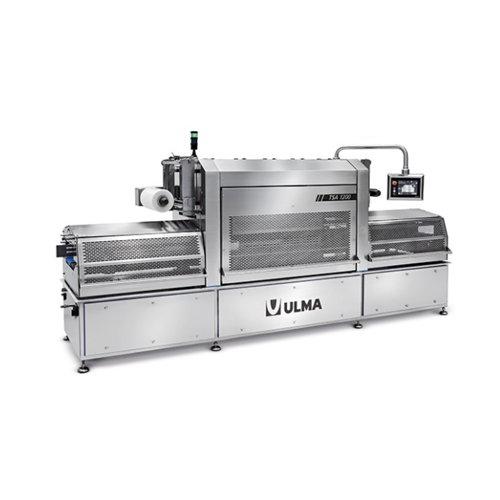
Automatic tray sealer for preformed trays
Enhance packaging efficiency with a high-speed tray sealer designed for precisio...
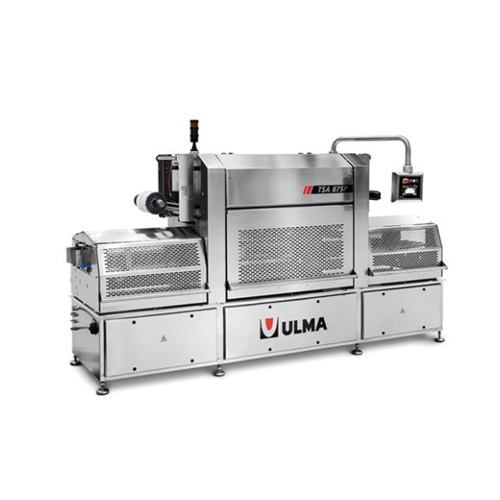
Automatic tray sealer for cut & seal and Map applications
Optimize tray packaging efficiency with a versatile solution f...
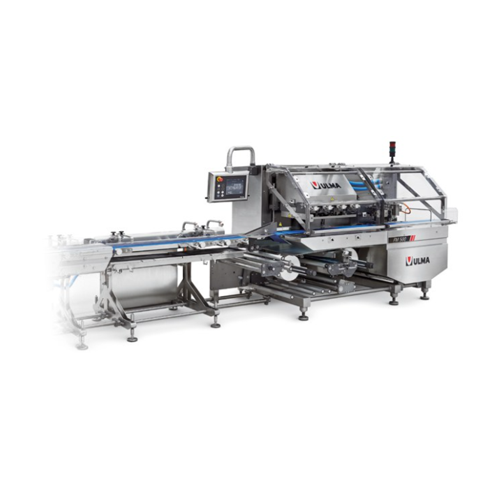
High-speed Map packaging for fresh food products
Ensure product freshness and safety with robust, high-speed packaging tha...
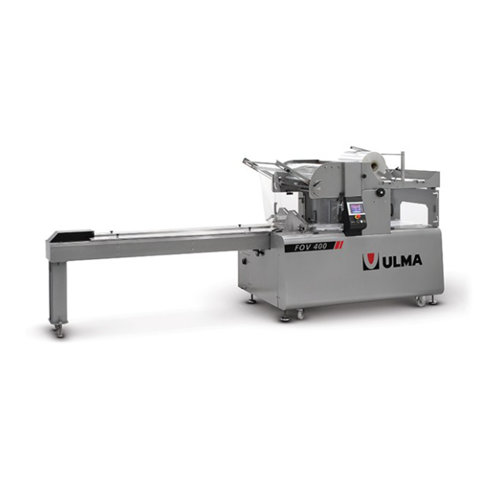
Flow pack wrapper for shrink and film wrapping
Optimize your packaging operations with a versatile solution capable of hig...
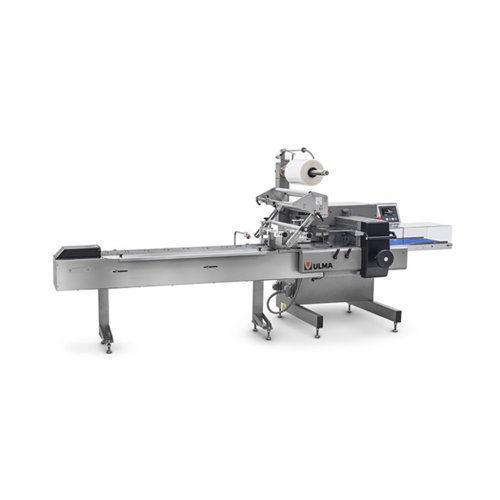
Horizontal flow wrapper for packaging trays and punnets
Optimize your packaging process with an adaptable flow wrapper, p...
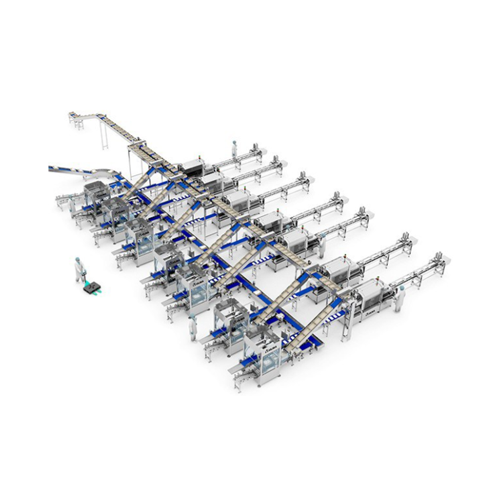
Automatic hamburger packaging solution
Streamline your hamburger production with a fully automated packaging system that en...
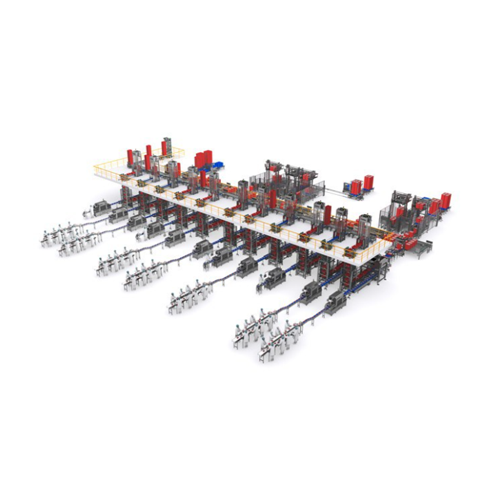
Complete packaging solution for meat products
Achieve seamless packaging integration with a solution designed to streamlin...
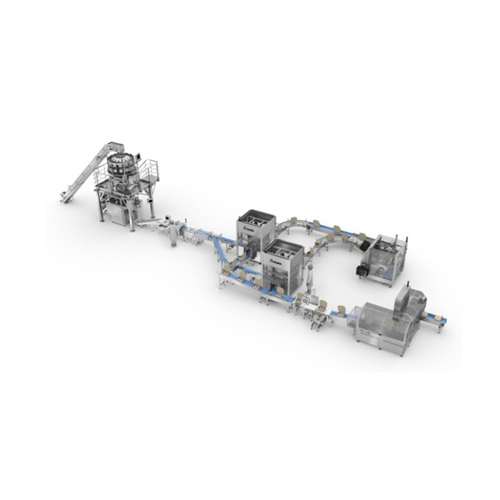
Automated bagging system for confectionery products
Achieve seamless integration in your confectionery packaging line wit...
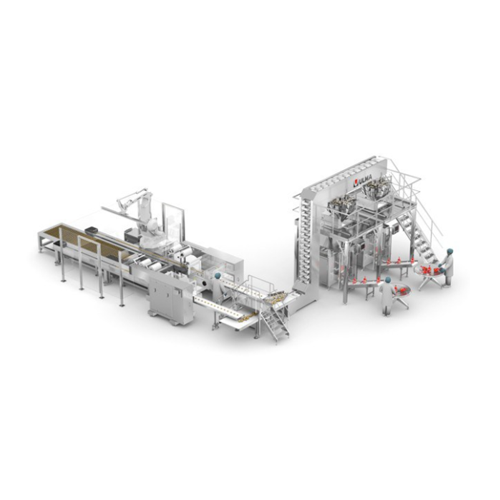
Complete solution for packaging of bakery products
Streamline your bakery’s packaging process with a fully automate...
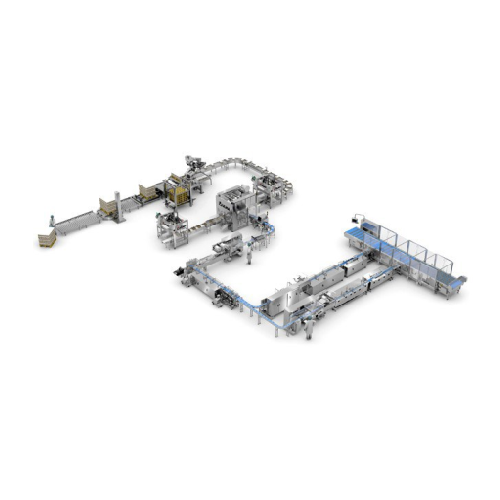
Sweet baked goods packaging solution
Optimize your sweet baked goods packaging process with a fully automated solution desi...
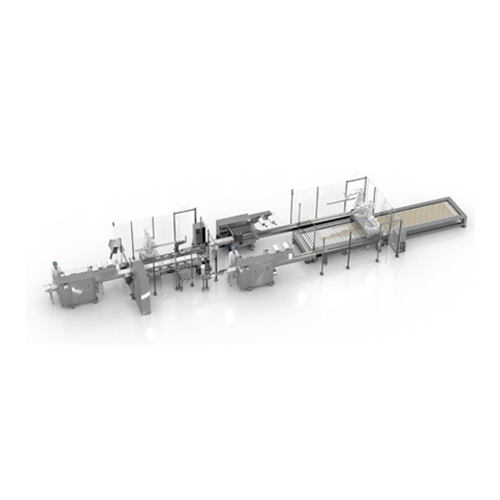
Automated line for baked goods packaging
Enhance your packaging efficiency with a seamless integration of precise loading a...
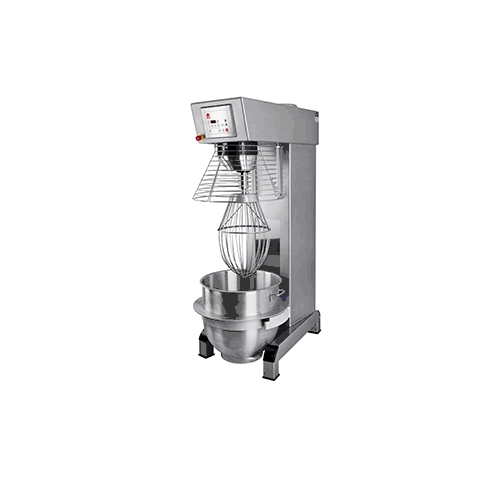
Commercial bakery equipment for improved baking efficiency
Streamline your baking processes with commercial bakery equip...
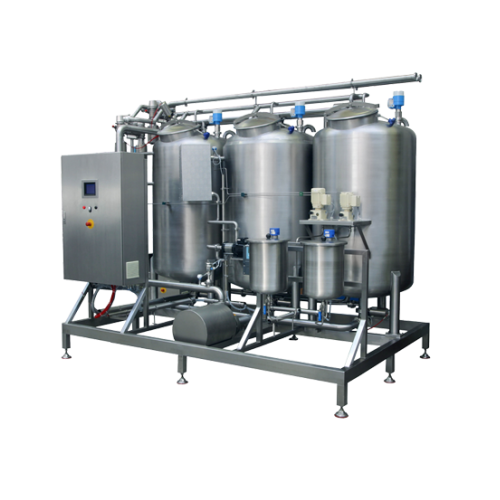
Automated cleaning in place system for bakery production lines
Ensure unmatched hygiene and operational efficiency in fo...
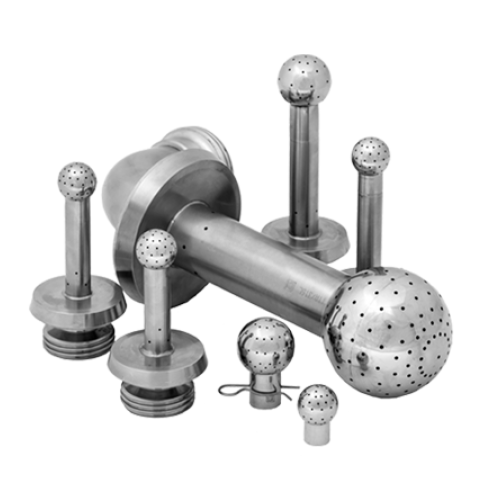
Cleaning in place solution for food production systems
Optimize your cleaning process with an integrated clean-in-place s...
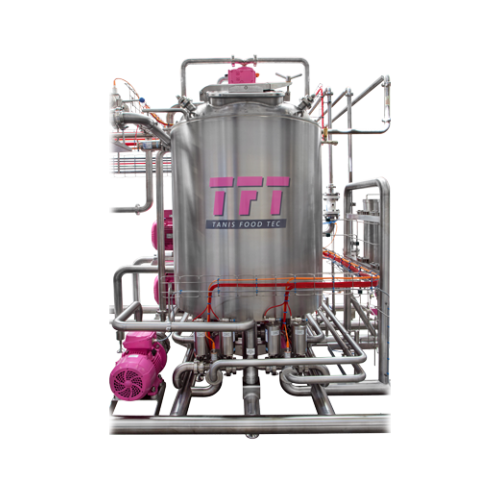
Buffer tank for consistent product temperature control
Ensure consistent product temperatures and streamline your product...
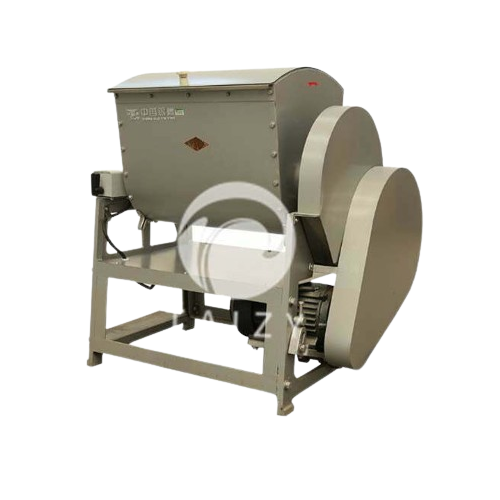
Dough mixer for pastry food processing
Achieve perfect dough consistency efficiently with this dough mixer, designed for se...
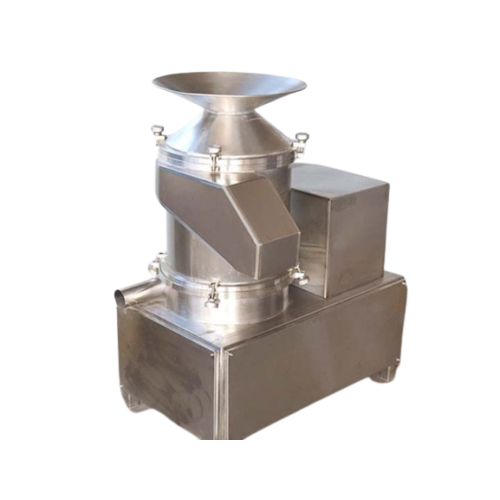
Industrial egg breaking and separating solution
Streamline your egg processing with precision egg breaking and liquid sepa...
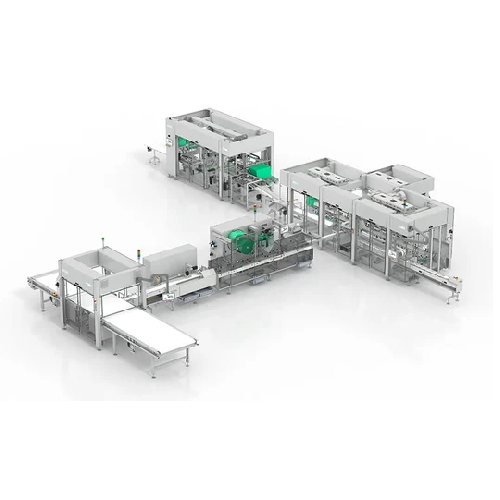
Horizontal flow wrapper for food packaging
Simplify your packaging process with our high-speed horizontal flow wrapper tha...
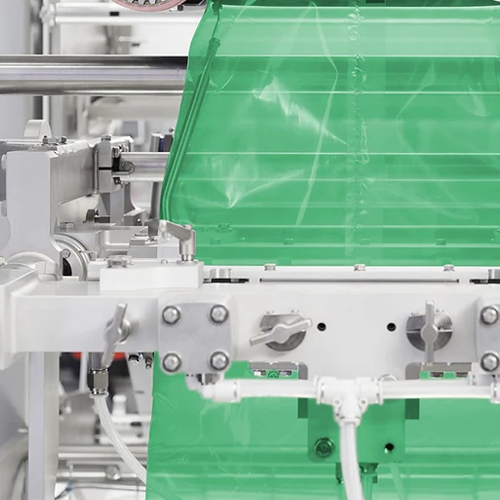
Vffs packaging solution for diverse bag styles and high hygiene standards
Enhance your packaging operations with high-...
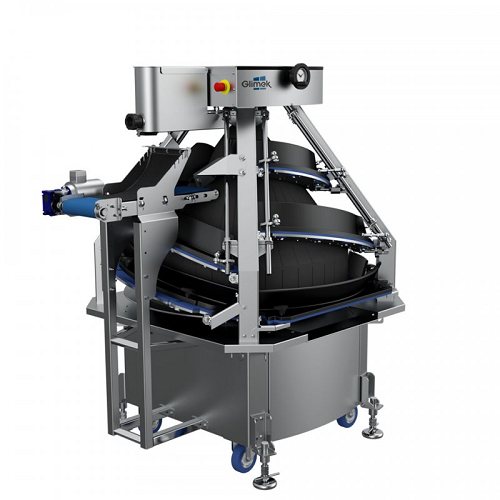
Industrial conical dough rounder
Streamline your dough production with a high-capacity rounder designed to optimize dough sh...
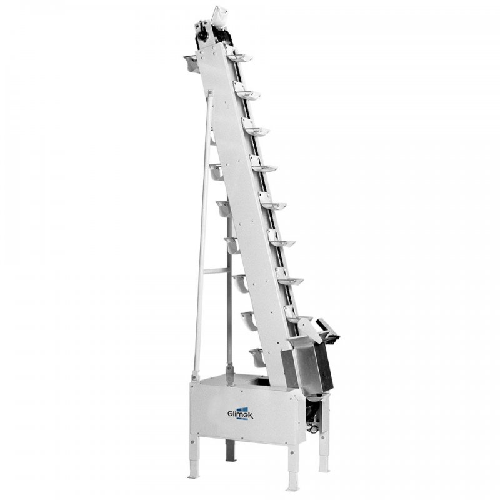
High-capacity dough cup elevator for industrial bakeries
Enhance your bakery’s efficiency with a dough cup elevator...
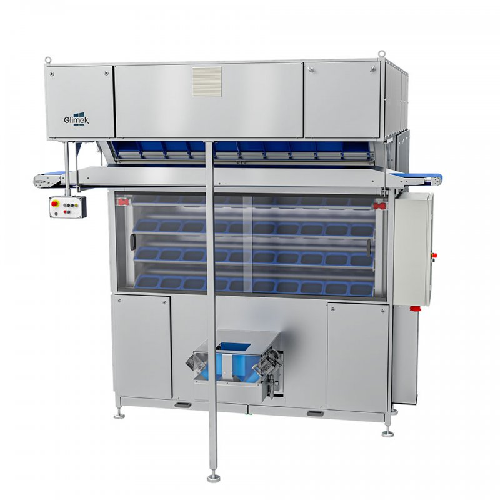
Intermediate proofing cabinet for dough resting
Optimize your dough resting with a versatile proofer that adapts to variab...
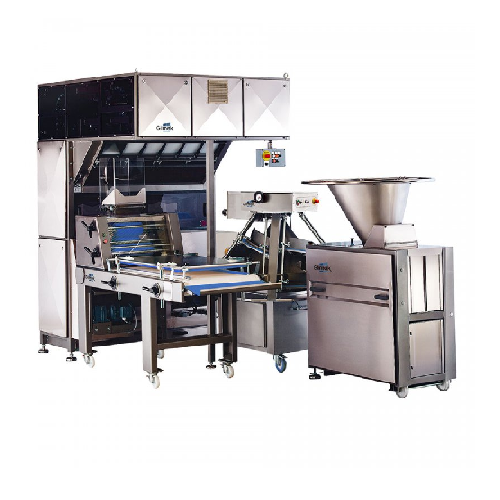
Flexible continuous dough processing line for bakeries
For bakeries aiming to streamline operations, this highly adaptabl...
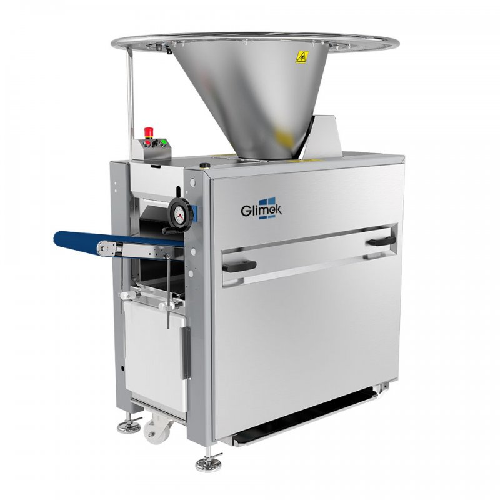
Automated dough divider for high accuracy dough handling
Ensure precision in dough portioning with this solution, designe...
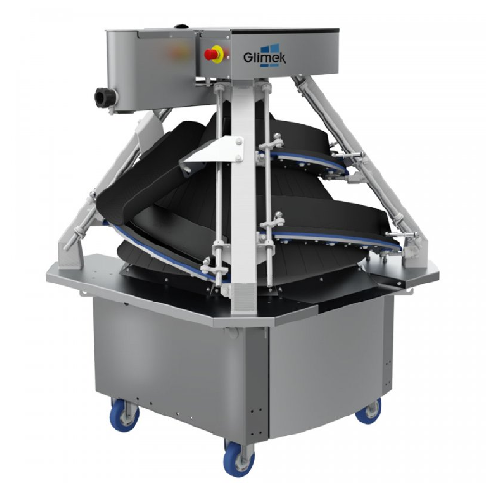
Conical dough rounder for perfectly round dough balls
Achieve impeccable dough rounding with precision-engineered technol...
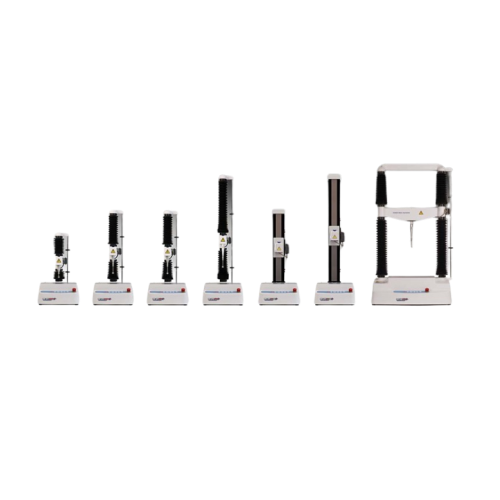
Portable texture analysis for low force applications
Easily perform precision texture measurements on low-force applicati...
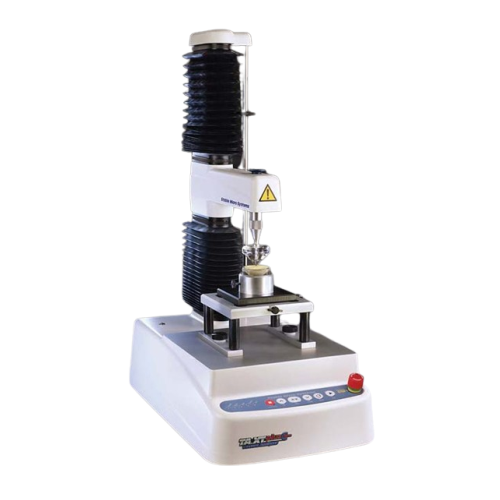
Texture analyser for food and cosmetics testing
Ensuring consistent product quality across diverse food and cosmetic appli...
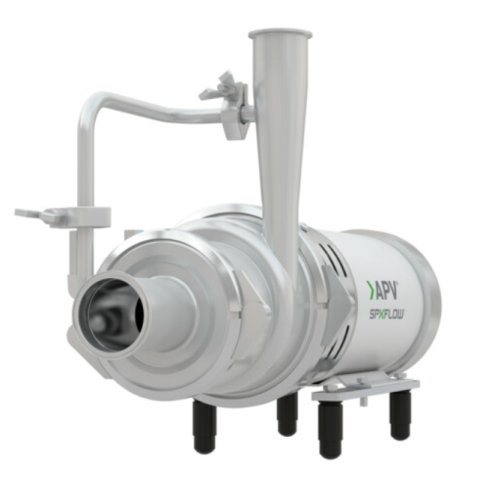
Self-priming centrifugal pump for entrained air handling
Effortlessly manage entrained air and foam in fluid processing w...
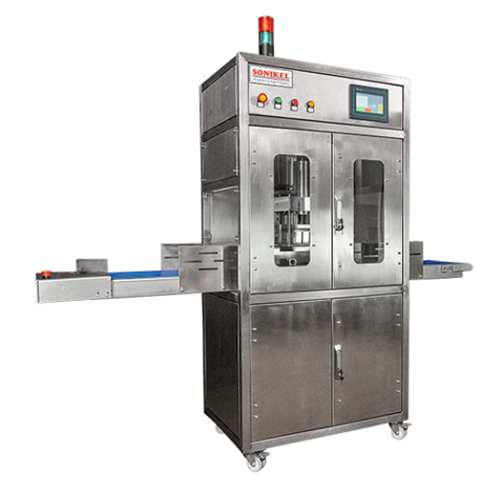
Ultrasonic food cutting equipment
Experience precise and efficient ultrasonic cutting of various food products, optimizing ...
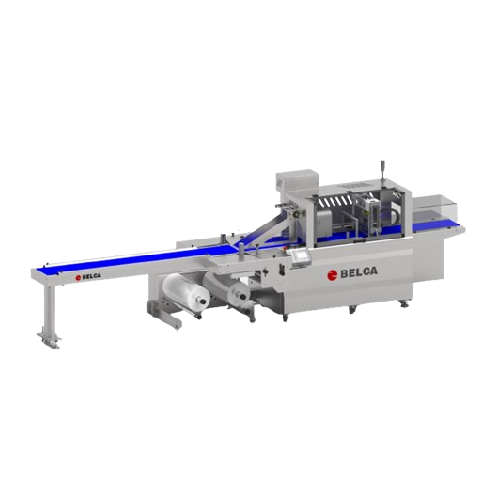
Flowpacker for packaging products
Achieve seamless packaging with high-speed, automated flowpacking that enhances product p...
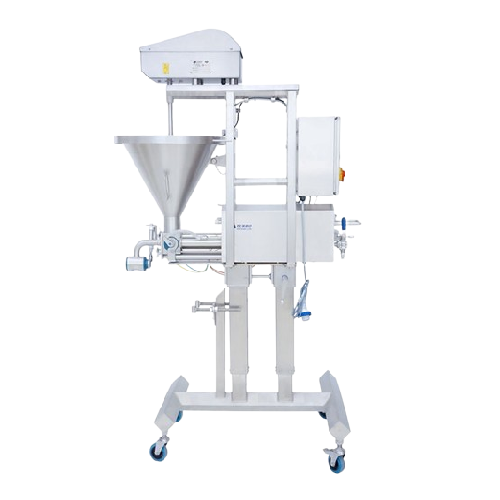
Dosing system for bakery and convenience food
Achieve precise dosing and filling of liquids and slurries with this versati...
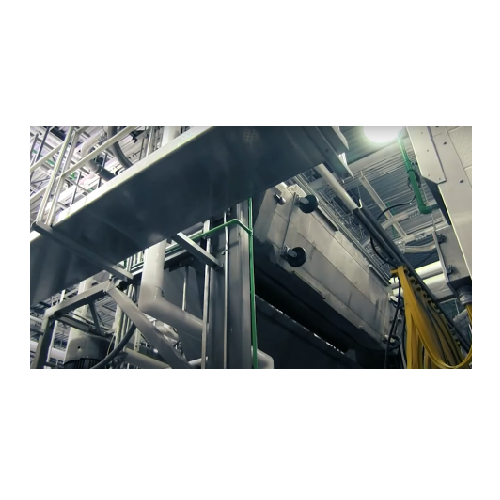
Refrigeration jacket for triple roller bar mixers
Enhance dough mixing performance by efficiently managing temperature co...
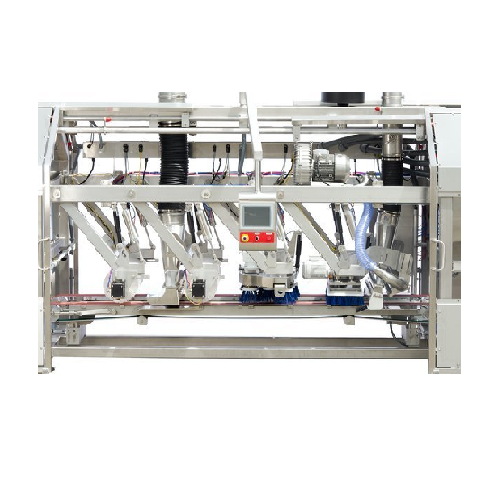
Continuous pan cleaner for bakery pans
Efficiently clean and prepare baking pans with precision by leveraging continuous, h...
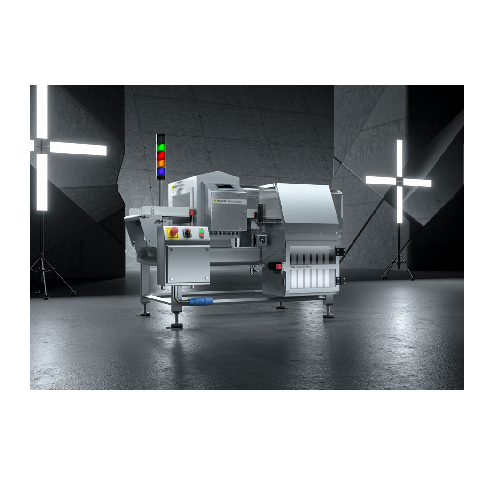
Conveyor belt metal detection system
Ensure seamless product safety with a system that detects and separates metallic conta...
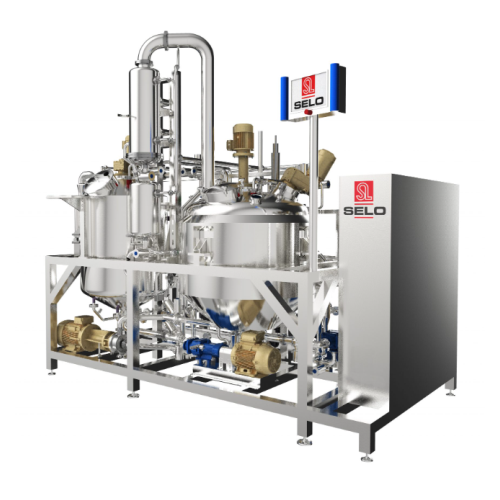
Efficient jam and marmalade production line
Optimize your fruit and bakery product lines with equipment designed for high-...
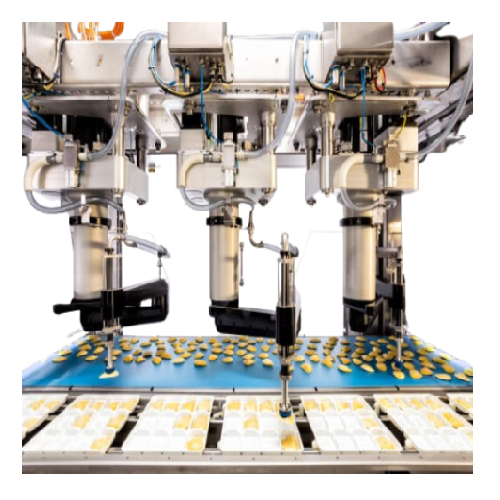
Pick & place vision system for packaging quality control
Ensure flawless product packaging with a vision system that enha...
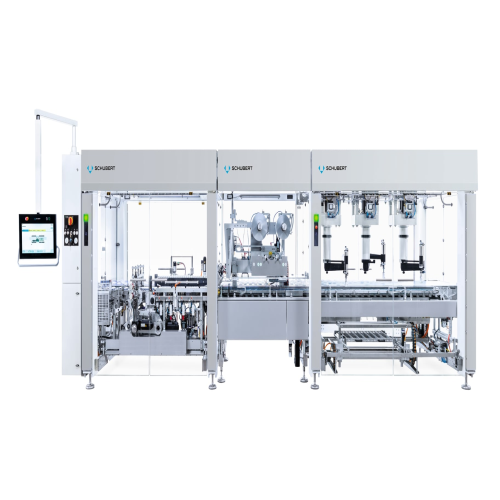
Flowpacker for packaging products in flowpacks
Optimize your flowpack packaging line with a preconfigured solution that ac...
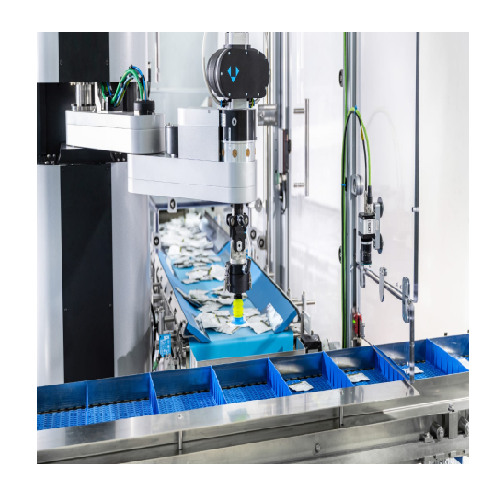
Automated pick and place cobot for packaging
Overcome packaging bottlenecks with an advanced cobot designed for high-speed...
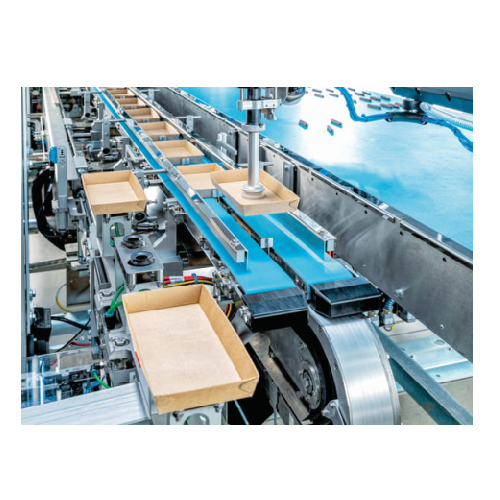
Flow wrapper with quick format change
Streamline your packaging operations with a machine that offers rapid format changeov...
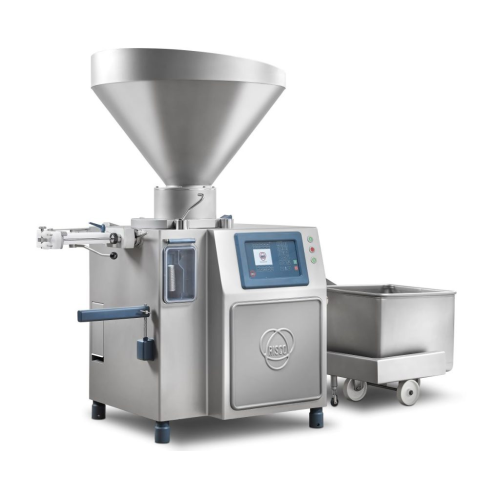
Industrial vacuum filler for large-scale food production
Enhance your production efficiency by integrating a vacuum fille...
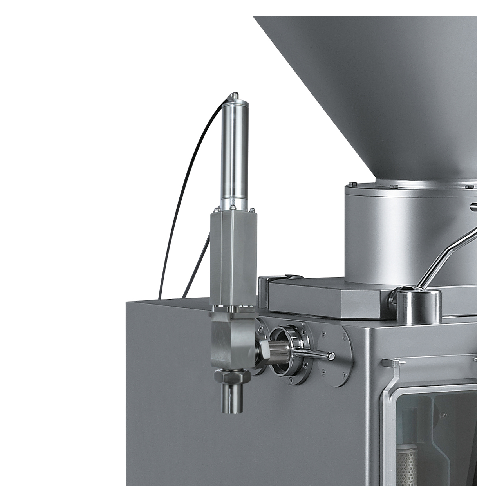
Vertical dosing valve for accurate food portioning
Ensure precision in portioning liquid and semi-liquid food products wi...
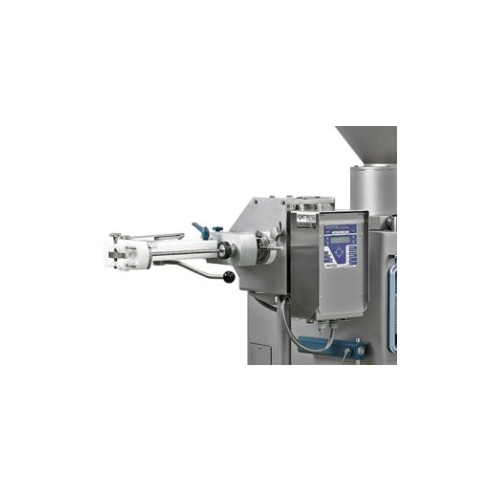
Metal detection system for twisted sausages production
Ensure the safety of your twisted sausage production line by detec...
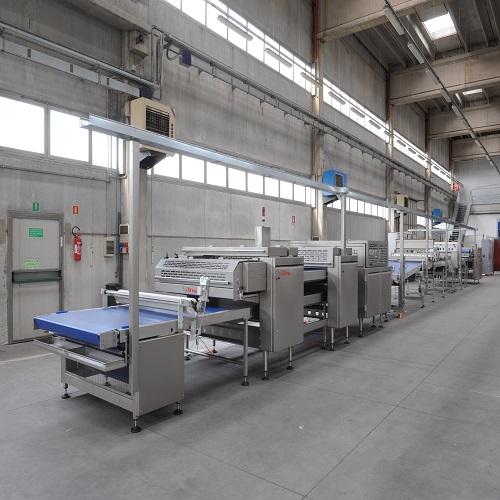
Moulding machine for croissant
Croissants are a popular line in commercial bakeries and are sold in high volumes. An automat...
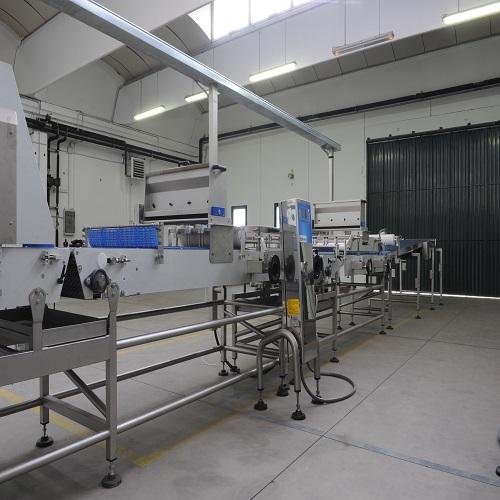
Moulding machine for rolled bread
As great snacks and accompaniments to meals rolled bread is a staple product in commercia...
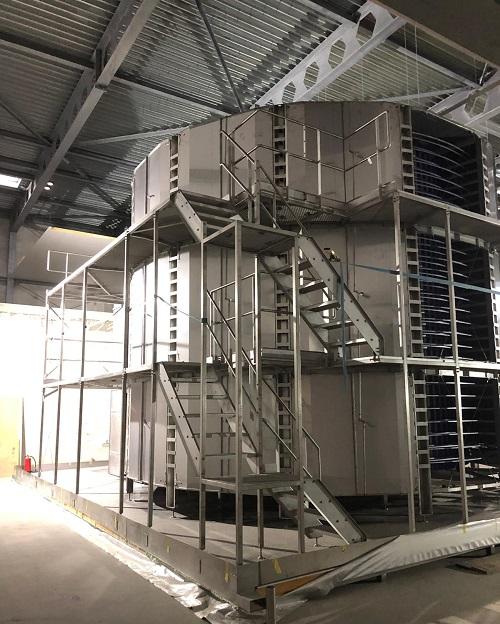
High capacity freezer for food
Freezing is one of the most important industrial methods for the long-term preservation of fo...
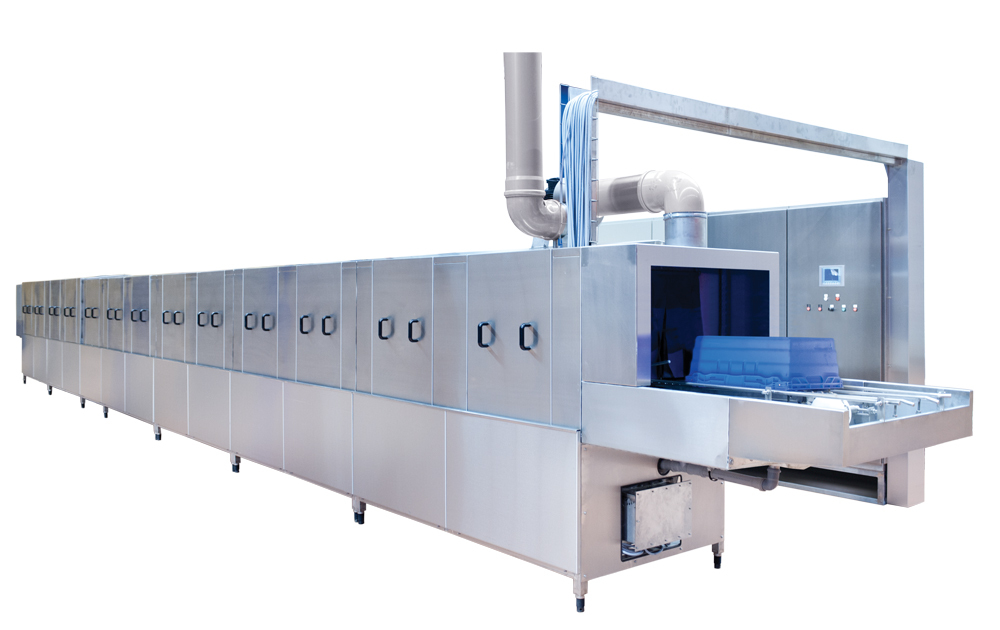
Industrial washer for plastic crates
In the food production sector, hygiene regulations are getting stringent by the day. E...
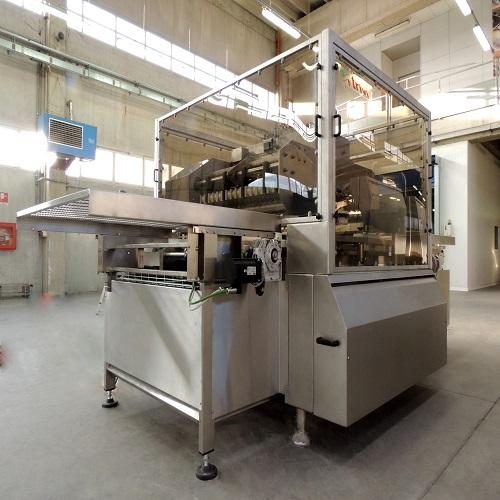
Cream filling machine for bakery industry
Cream and other fillings in bakery products must be injected in the right volume...
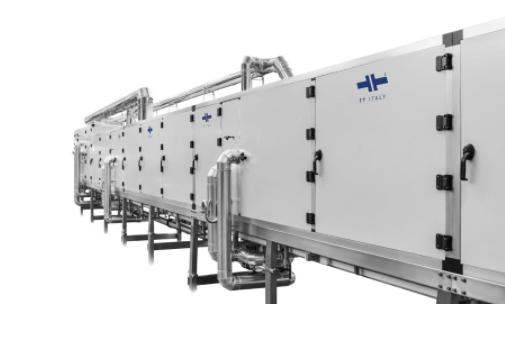
Sponge cake cooling tunnel
Exposed baked goods can develop bacteria from the circulating air in an area if left in the open ...
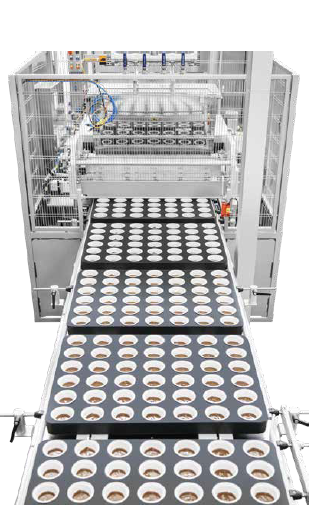
Cake batter and cream depositing machine
Whether you’re making muffins or cupcakes, you need just the right amount of...
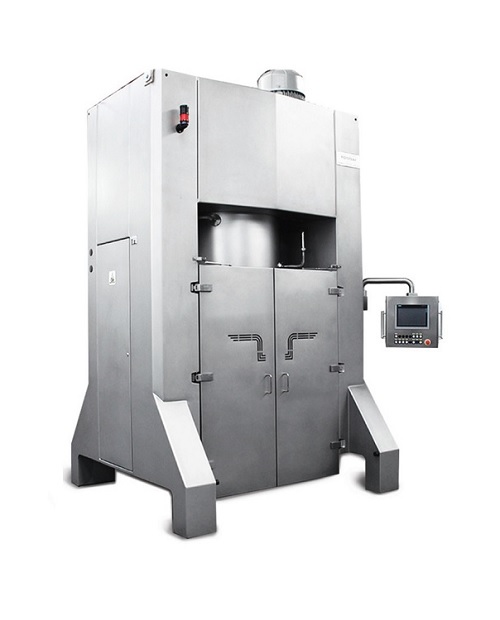
Planetary mixer for confectionery and bakery production
For the best quality confectionary and bakery products, controlla...
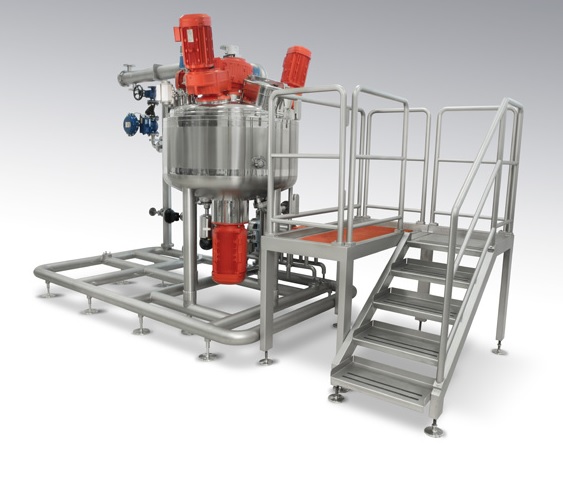
Temperature-treatment mixer for bakery & gastronomy
The production of creams, sauces, ragouts, ready-to-bake, and sim...
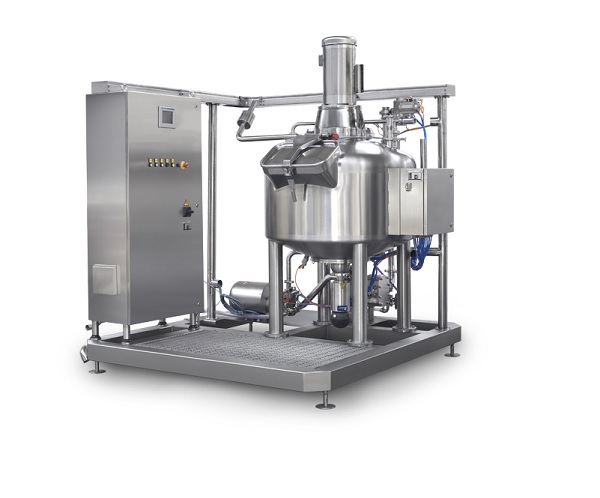
Centrifugal mixer for batters and creams
Batters, creams and other delicate sauces and emulsions take time to mix, reducing...
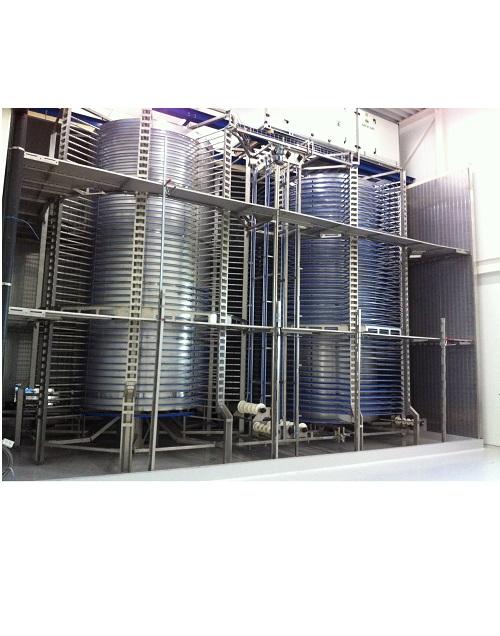
High capacity spiral proofer for pastry
Proofing is a phase in the baking production line that can’t be rushed. It’s an ess...
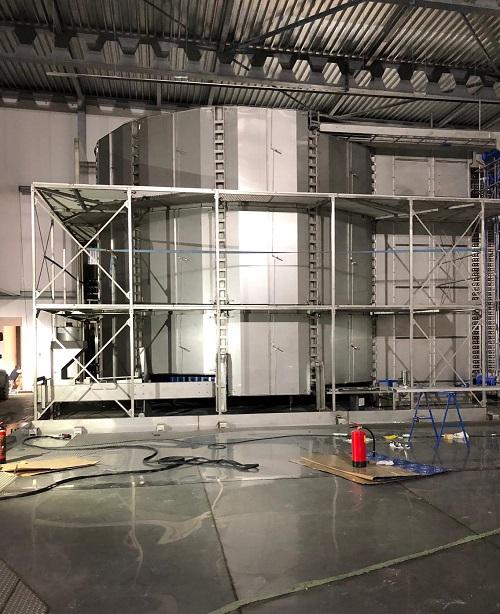
Hygienic and fully-welded spiral freezer for food
Food freezers are often the last step in the food production chain. The...
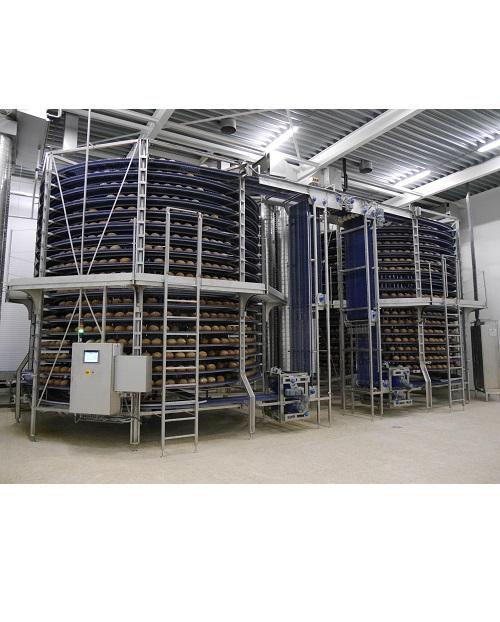
High capacity spiral cooler for food
Cooling baked goods and food products can be problematic for sliced baked goods. A cru...
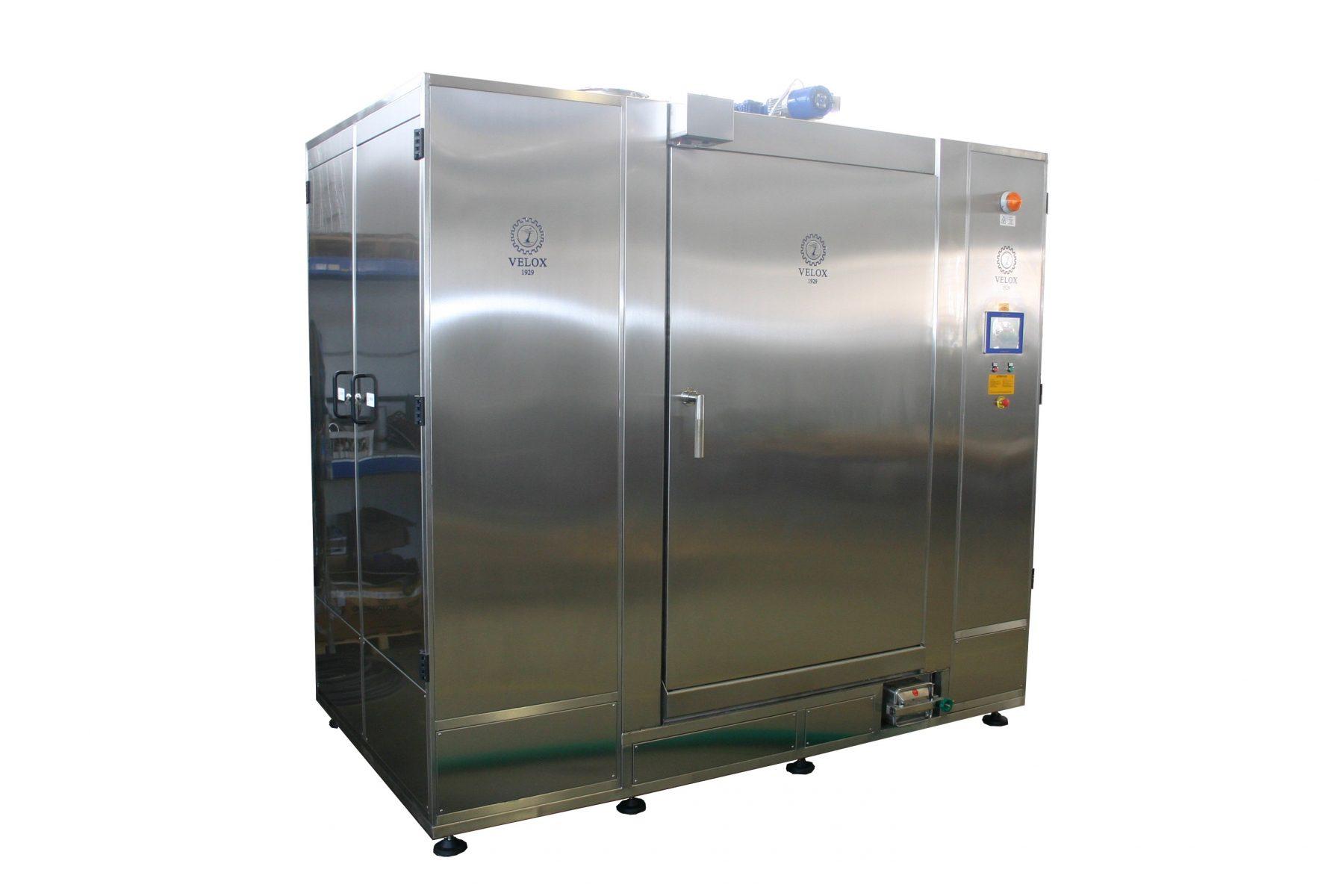
Washing cabinet for trolleys
Food manufacturing facilities, bakeries, or restaurants are ridden with efficiency-related issu...
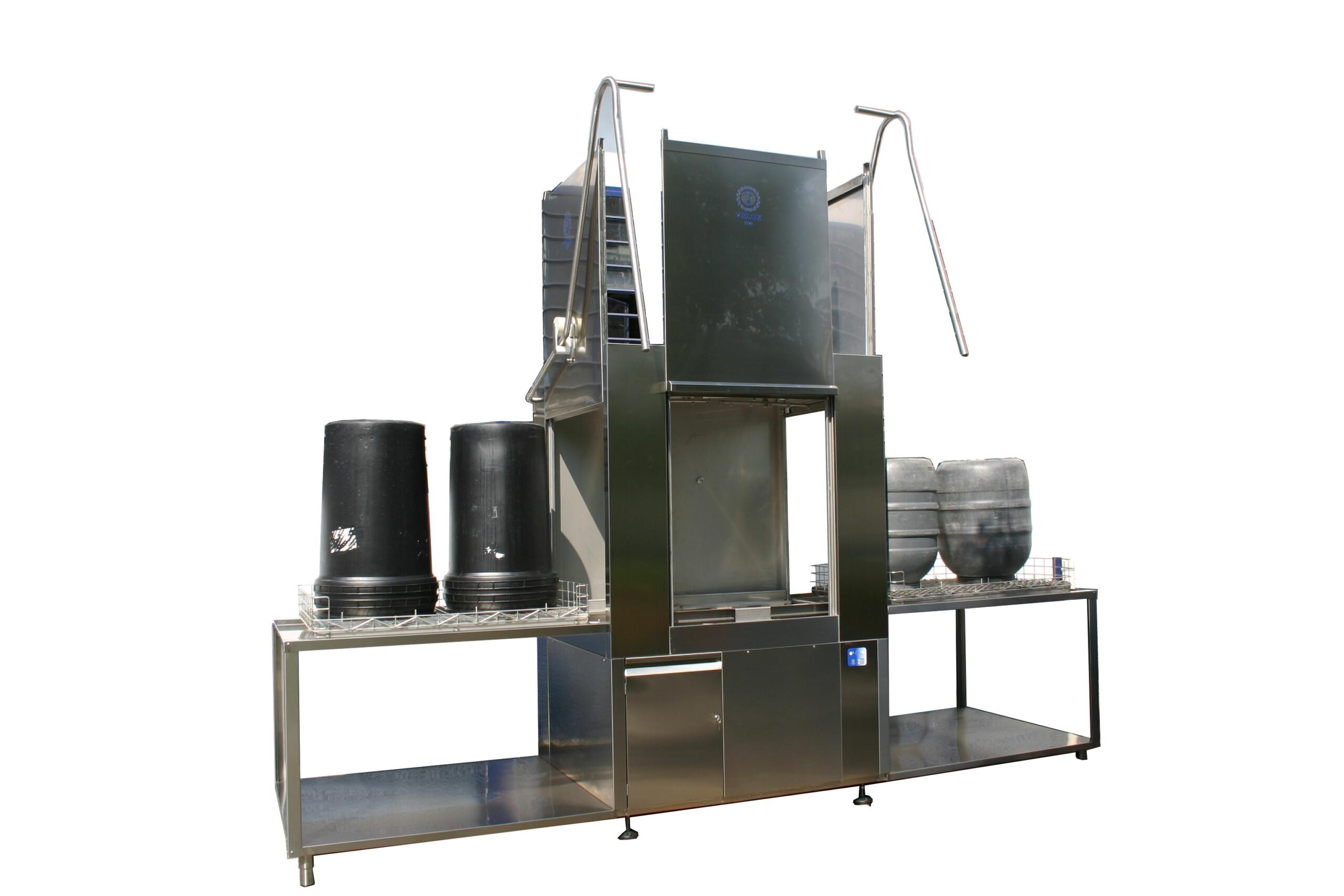
Washing cabinet for food bulk containers
With an ever-increasing demand for output and stricter hygiene regulations for foo...
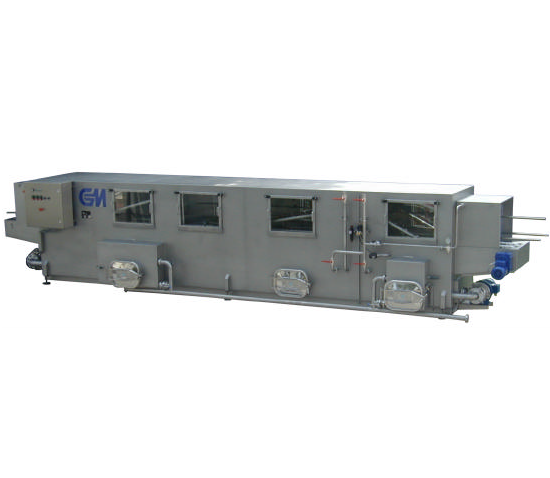
Industrial crate washing machine
In order to meet the increasing demand of the beverage industry, it’s essential to find a c...
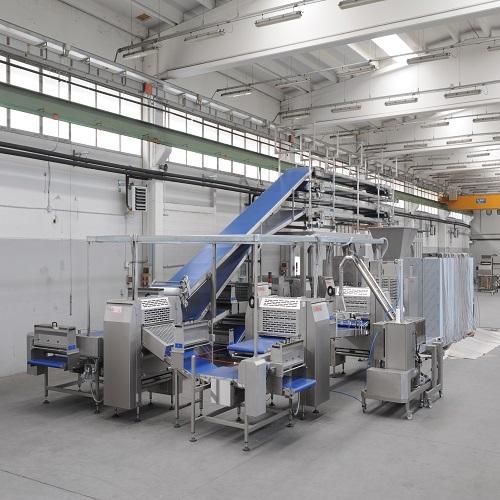
Automatic pastry dough sheeter
Industrial dough sheeters turn raw dough into sheets that match recipe thickness. This includ...
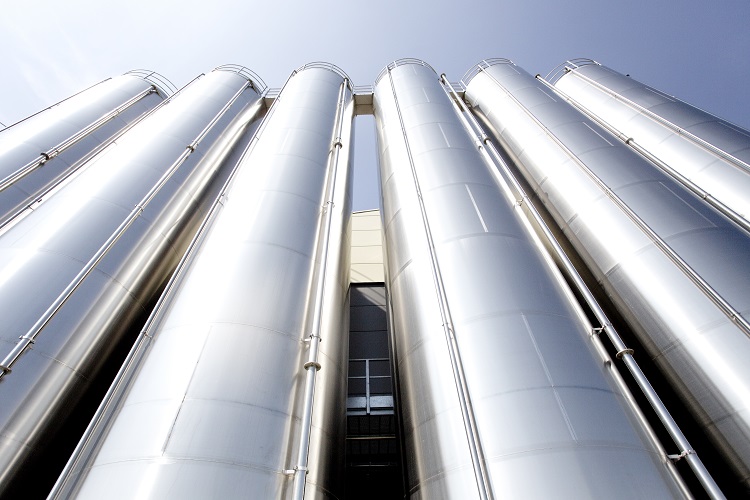
ATEX confirmed outdoor silo for flour
Bulk outdoor storage of flour, dry milk and other powder ingredients for the bakery i...
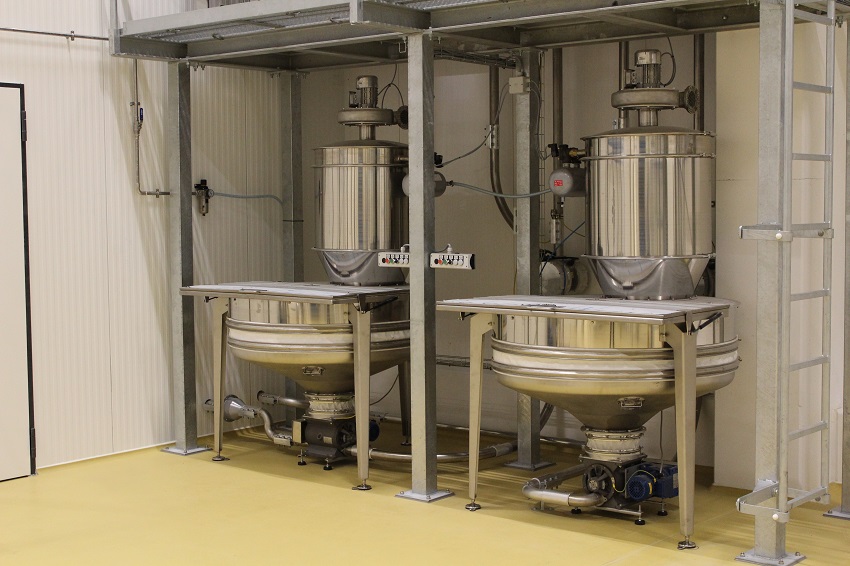
Manual bag discharger for bakery industry
Many minor and intermediate ingredients for bakery products are delivered in bag...
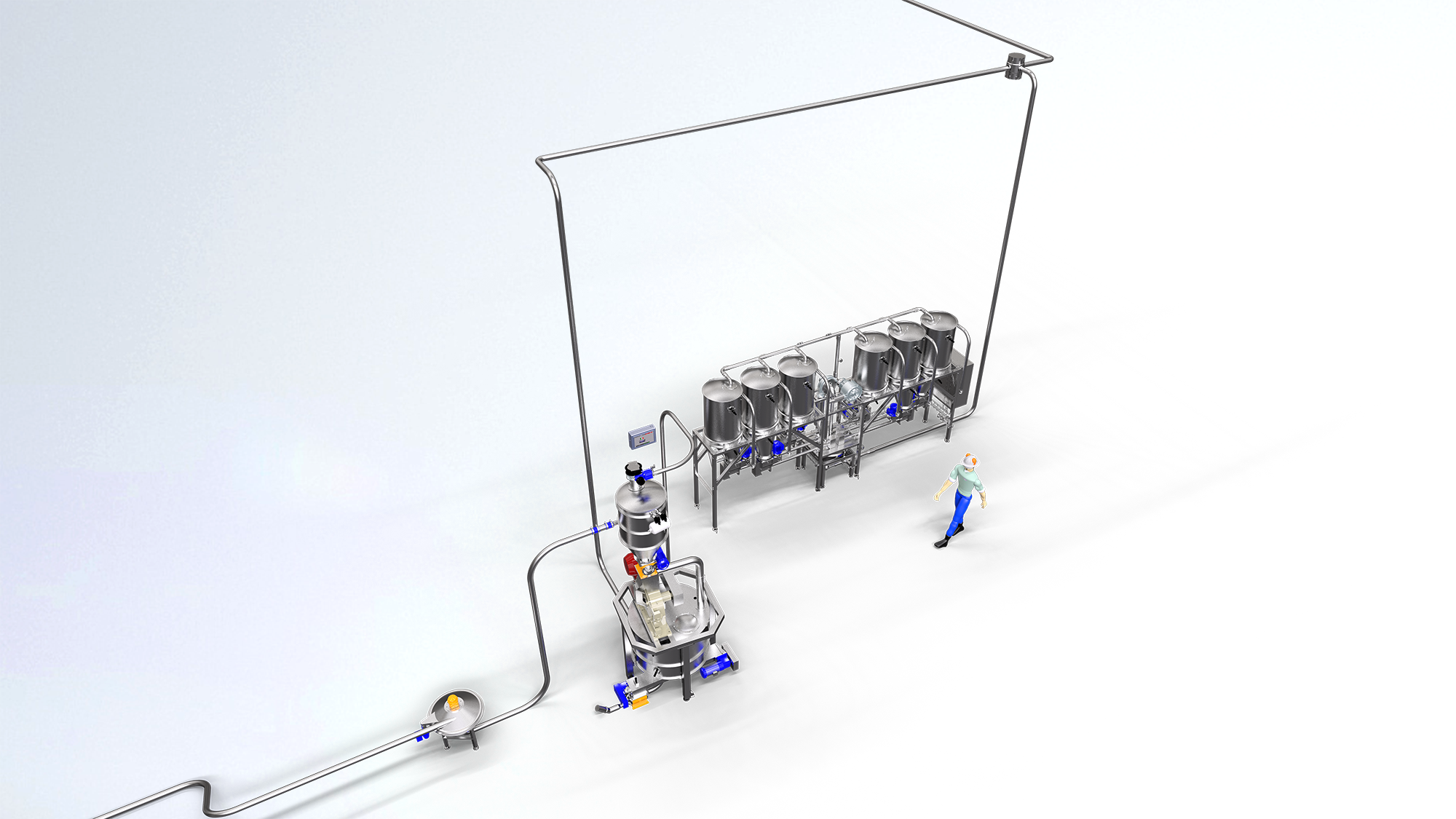
Microdosing system for bakery industry
Storage and dosing of powdered minor ingredients such as flavourings, colours and si...
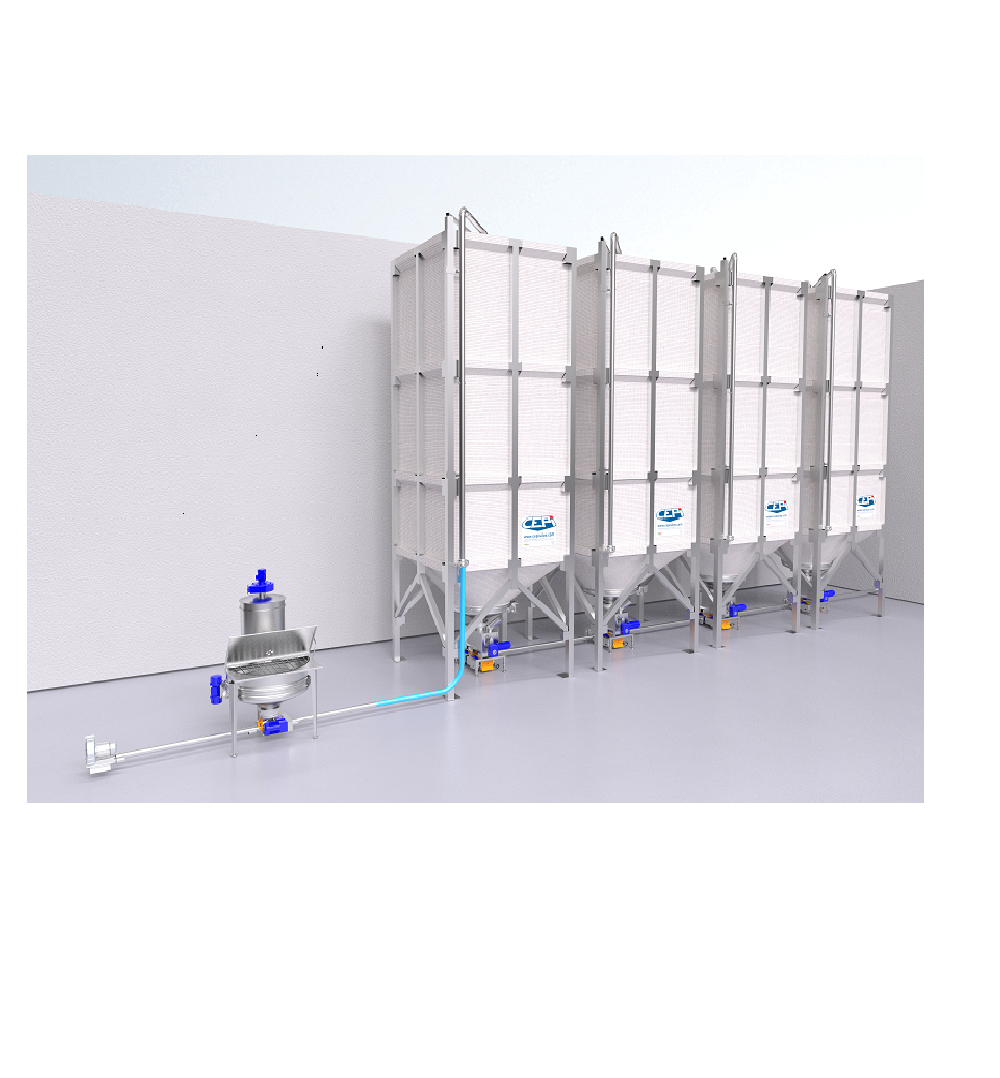
ATEX Indoor silo for sugar and flour
Storing granulated or powdered materials such as sugar and flour prior to processing r...

